People and Places in Cinderella City, Linden

Sunday, March 12, 2023



Sunday, March 12, 2023

IT didn’t matter to young Juanita Murray-Henry that she was poor and hadn’t any financial support to pursue a better life for herself. Nothing could’ve convinced her that an educated life was out of her reach. So, even when she had to leave Onderneeming on the Essequibo Coast to work as a domestic on the Corentyne, she knew that this would just be for a time.
Growing up in a single-parent home, things were rough. Her mom had all of the family responsibilities to shoulder,
and Juanita, now 55, and her four siblings would have to wake up early in the mornings to help sell the bread that Mrs Murray baked.
Eighteen-year-old Juanita fell in nicely with the Corentyne family she worked for. However, with the desire to elevate herself still burning within, she told them that she had to leave after about two years of work so that she could perhaps begin pursuing some classes.
“I was 18 when I started domestic work. I had no other choice. I knew to myself I had the brains, but I hadn’t the opportunity. I hadn’t the financial support, so I just had to do what I had to do,” she told Pepperpot Magazine a few days ago.

Moving in with an aunt on the East Coast, at Beterverwagting (BV), Juanita again picked up some domestic work in Bel Air, but this time things were going to be different; she would be able to do some evening classes.
The woman with whom she worked, a Mrs George, was very helpful and encouraging to Juanita. She even helped her to find suitable evening classes. To begin with, Juanita thought that she’d pursue courses in Maths and English. And even though feeling a bit awkward going back to school a bit older than usual, the thing that motivated her most was her performance-how well she was doing in the courses.
Juanita, with her two subjects in hand, then began what was known as the ‘foundation classes’ at the Cyril Potter College of Education (CPCE) and also did well with these before moving on to the regular training programme that went on for two years at that time. Kicking
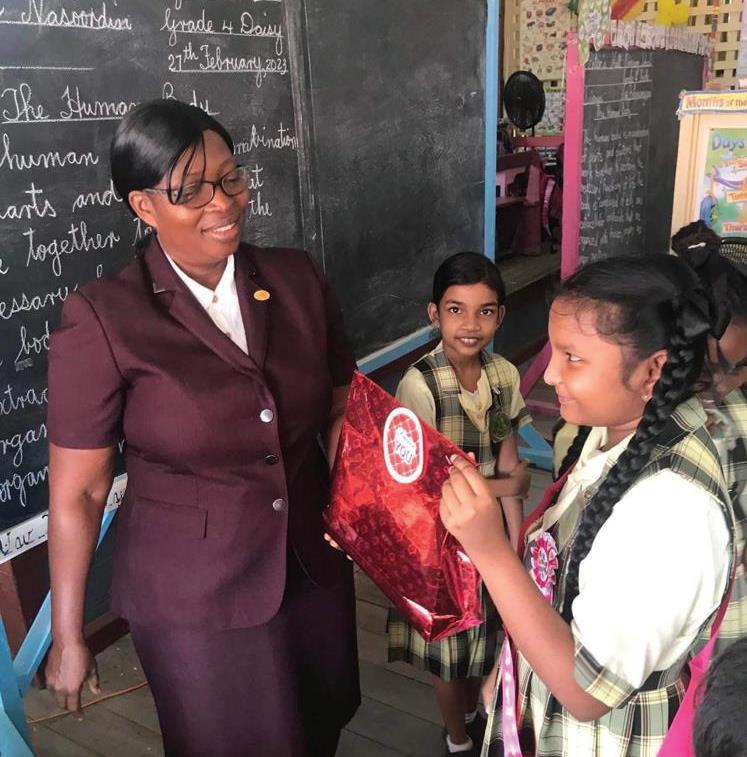
off her teaching profession in October 1990, she started as an acting teacher at Quamina Primary in BV. Until she retired lately, she served at Peter’s Hall Primary on the East Bank of Demerara. Also, she spent some of her years at Paradise Primary, Graham’s Hall Primary and Clonbrook Primary. She couldn’t tell if being a teacher was what she had always wanted, but she remembers her childhood days when she’d ‘play teacher’ with some mango leaves and would discipline each of them that couldn’t answer her questions. So perhaps, she now feels, her life was moving her toward becoming a teacher from way back when.

Still unsatisfied with her additional training at CPCE, Juanita pressed on to the University of Guyana where she would spend the next four years of her life. Returning to the teaching profession afterwards,
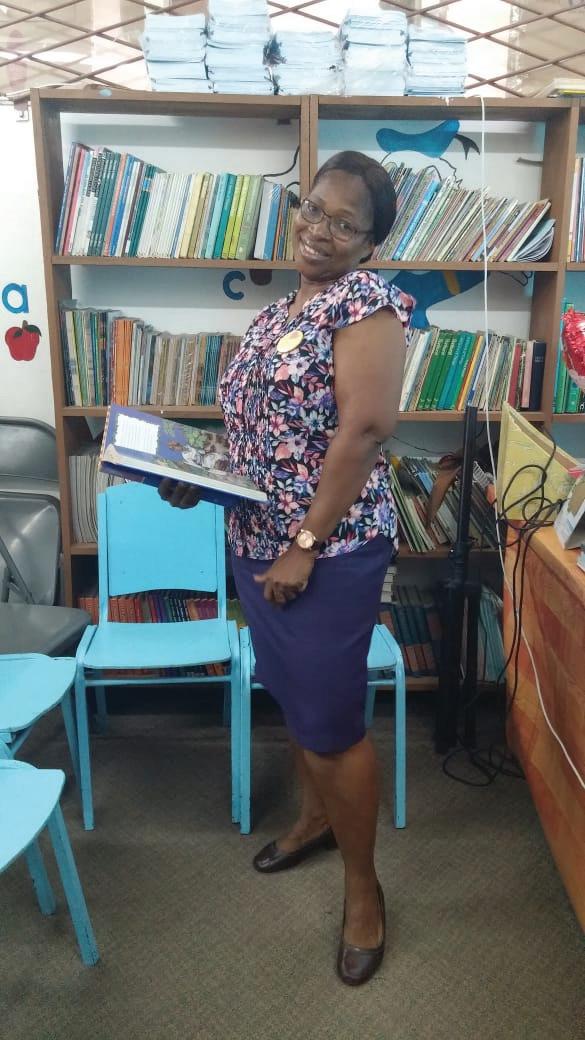
FROM the daughter of a cane-cutter to a self-published author, Janet Dorie has managed to defy the odds and come out on top.
Dorie’s most recent self-published book, “360 Pieces of Diamond” which was launched on February 22, welcomed the support of many, including her former student, Minister of Public Works, Bishop Juan Edghill.

After years of travelling and interacting with people from all walks of life, Dorie was able to put pen to paper, reflect on her spiritual journey, and share her teachings on how one can live a prosperous and peaceful life.
Deeming her writing as an escape from the struggles her family faced because of colonialism, Dorie aimed to reach for the stars.
Recapping her journey, the author stated that, at the tender age of four, her father took her brother and her to the canefield to watch him work.
When Dorie questioned her dad as to why he had to work in the scorching sun, she recalled him stating that because they were descendants from India, they did not have the privilege of knowing how to “read and write” and thus, the only way “to put food on the table” was to work in the sun.

To this day, Dorie said that her heart still ache thinking about her family’s struggles and how they shaped her into the woman she is today.
A “diamond-like life”
With the life motto: “always have an honest heart, a clean mind and a humble nature” Dorie based her book on spiritual teachings that she can attest to.
Describing her most recent book as a “diamond-like” life, the author, in an exclusive interview with the Pepperpot Magazine shared how anyone can be a diamond.
Using a philosophical approach, Dorie tackled the true value of a diamond, from its “rough cut” phase straight to the polished stage.
Comparing humans to diamonds, with lines like “the colours depict its various qualities”, the author uses subtle metaphors to illustrate how one can shine in any dark room, just like a diamond.
Moreover, she stated that the book, which contains 360 daily reminders, can help anyone become a “flawless diamond.”
Additionally, tackling the gloomy state that many go through in their everyday lives with what one would consider ‘stressful’ tasks, Dorie asserted that if one does one’s actions with God in one’s mind and heart, many of one’s daily activities would become easy.
Promising lessons that will shape one into an “extraordinary valuable being” Minister Edghill stated at the book launch as he commended the works of Dorie.
Feeling “overjoyed” to be present at the book launch, the Minister was thrilled with the accomplishments of his former physical education teacher.
“Those who are associated with this national library…will be able to tell you there was a period in Guyana when nothing

was written and nothing was published,” he said.
More so, he labelled the book launch as an indication that the “creative spirit of Guyanese is still alive.”
In a dark and hopeless period in Guyana, Minister Edghill described the will and spirit of the people as “depressed”, where creativity was lost and they were in despair.
Hence, he took the time to not only acknowledge but also celebrate the work of Guyanese contributors, in this case, Dorie.
“As a country, we should be proud of all of our artistes. We should be proud of all of our poets. We should be proud of all of our historians,” he noted.
THROUGHOUT our local history, joinery has had a prominent position and place in the lives of Guyanese, and today, it seems that many young people are filled with renewed energy and eagerness for the craft.
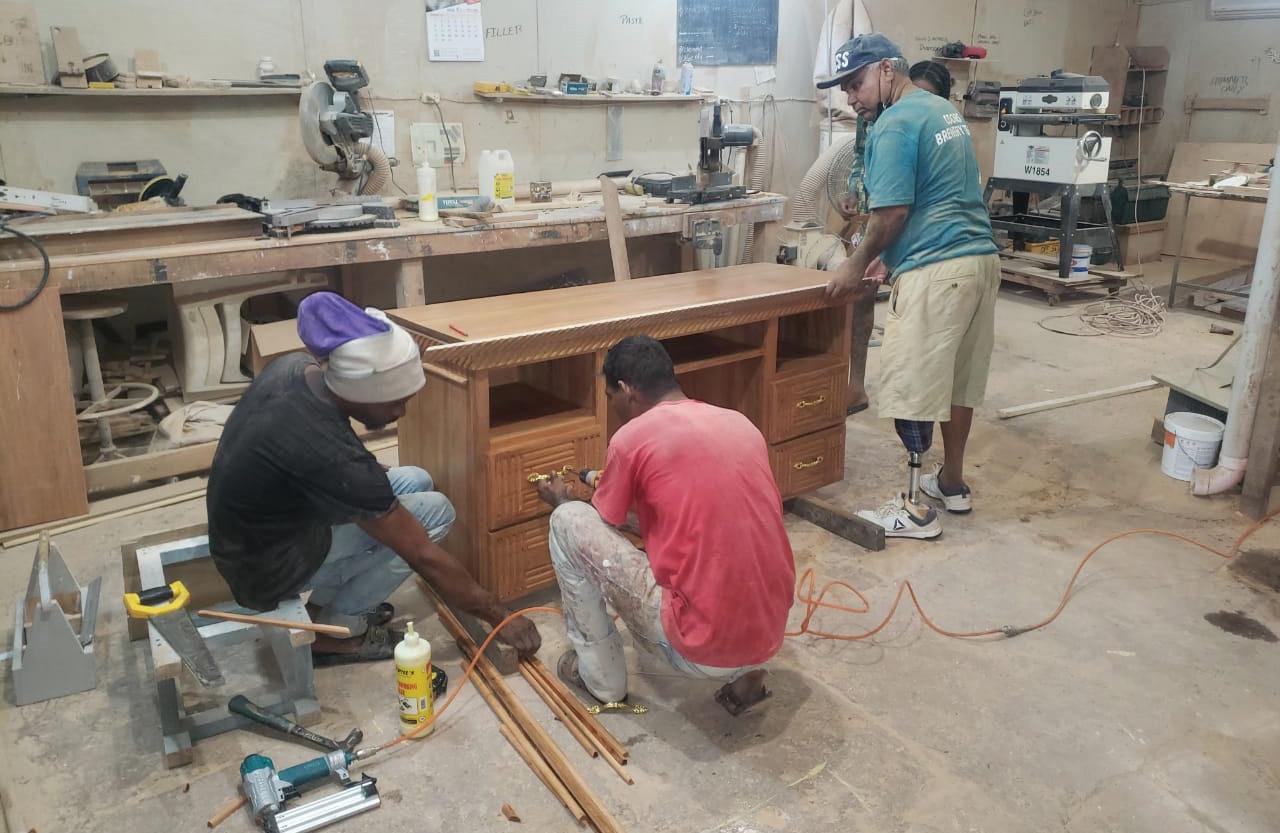
For the owner of a small business, Clarity, Transparency and Originality Guaranteed Designs (CTXOG), joinery is an art, and they are committed to ensuring their customers get the best quality wood products.
The Pepperpot Magazine sat down with CTXOG’s founder and Managing Director, Sean ‘JJ’ Griffith, who explained his company’s goals and objectives.
Since it is being recognised that joinery is a dying profession, Sean plans to train particularly young people to have a passion for the skill.
“As a company, we are going to start bringing youths and train them, thus giving them the skills they require to move forward,” Griffith said.

He noted during his interview that there are a few persons
the company has directly impacted since its training sessions have started.
Griffith said the company’s products are unique in design and quality, and can be found nowhere else in the country.
Griffith also said that despite the challenges that come with the execution of the trade, two persons with disabilities were able to find employment with the company.

“We have one young guy who is disabled, and we have another person who lost one of his legs due to diabetes, and therefore cannot move as agile as he used to, but the knowledge he has is irreplaceable. He serves in an advisory position,“ Griffith said.
He noted that both men are able to meet the challenges that come with the job, and they both absolutely love their craft and their jobs. So, for them, they don’t see it as hard work.
Griffith said his company has plans to expand from its current location in Guyhoc Park.
According to Griffith, there are also plans to train more young people in the craft of joinery.
“Challenges have been quite a few, but mainly not being able to meet customers‘ deadline, joiners leave, someone hasn’t showed up at work…Finances was another issue if we had a budget to work with, we would have gone much further along,” Griffith noted during his interview.
What makes our company distinguishable?
“Customers makes us distinguishable, particularly customers who would have dealt with someone before and they would have had to come to us and after we would explain certain things, then they would have recognised what they wanted correctly,” Griffith explained.
On their facebook page, Griffith noted that a number of persons have testified their satisfaction with the service received.
Griffith began his operation during the pandemic period and is looking to expand his operations to other parts of the country, and as he expressed anywhere he can get land to build his warehouse facility.
Griffith also expressed that a love, passion for the craft of joinery.
JAMICIA
Mc Calmon-Nel-son is a young, up and coming Guyanese poet who recently won the National Poetry Slam as part of the Guyana Prize for Literature Literary Festival 2023. The Pepperpot Magazine sat down with Jamicia to talk about her life and her journey through her poetic career.

“As it relates to poetry in particular, I remember writing my first poem at the time of the Trinidad & Tobago political upheaval. I remember my older sister who introduced me to poetry. She sent me a spoken word titled, ‘That Girl’ and the poem truly resonated with me,” Nelson told us in an interview.
From there, Nelson shared that she started becoming deeply involved in a spoken word group in the twin Island Republic, which dealt with critical issues.

She recalled that her poetry life took off when she was given numerous opportunities to display her poetry skills at her church’s youth group.
She noted that she was also given the opportunities to recite poems for international events, including events hosted by the United Nations.
Nelson described some of her challenges as sometimes doubting herself and her ability. As one of her challenges, she highlighted the lack of resources available to young creatives that will aid in harnessing the skills..
“One of the things that I have been advocating for is a writer’s guild. Growing up in Trinidad and Tobago, I was introduced to a writer’s guild by one of my mentors, but my exposure to such a thing was shortlived, but if I was exposed to this feature a long time ago, probably by now, I would have been a prolific writer,” Nelson told the Pepperpot Magazine.
She is, however, advocating for a Guyana’s writers guild that would mentor Guyanese writers and poets, particularly the young ones.
However, she believes that her ability and the experience she has garnered so far, has allowed her to mentor mostly young people
in poetry.
Following her win at the recently held Poetry Slam, Jamicia is currently preparing her mind for the Guyana Prize for Literature Short Story and Poems Competition.
Therefore, she noted that she is channelling all her energies and focus in that direction by ensuring she has her catalogue of poems and short stories together.
The young poet noted that some of her mentors include her ‘mom’, a poet in her church community who goes by the name of Tandika Austin, Marissa Stuart, who now resides in Jamaica, and Shondell France.
She is also beginning to connect herself with other people in the same field who are willing to mentor her and cause her to develop her craft to the highest calibre.
According to her, her pieces whenever she writes poetry are often inspired by social and personal issues.
She also attributes her inspiration to her spiritual walk with God as well as things that are happening in her country, and also things
that are occurring in her personal life.
Jamicia continues to
advocate for more Guyanese writers to be given more opportunities to build

their craft, in terms of poetry and short story writing.
FROM PAGE II
she continued until she retired recently, securing some 33 years in the profession!
Looking back over the course of her life so far, Juanita, a Grade Six teacher for the most part, couldn’t be prouder of herself and the diligent effort she made to improve her lot in life. “I’m extremely proud of myself because my upbringing, my economic status…hadn’t I have a mother who was ex-
tremely strict and god-fearing, I could have been on another track; I could have been doing things differently. Despite our poverty, my mother (Olive Murray, now 81) never allowed us to settle for mediocrity. She was always pushing us.”
Highlight
Having retired, Juanita is taking a well-deserved break, but
she doesn’t plan to give up the profession entirely. She wants to be able to spend some time helping children learn to read. “What I have in mind is to do a little reading class at home to assist those weak children, and even make some contributions to my school.”
Helping the weaker ones has always been a top priority for her. “The highlight of my teaching is being able to see a child move from nothing to something. When you can move a child who is very weak -- that’s a teacher! Any teacher can teach a brilliant child, but when you can see the weak ones move…. that’s one of my greatest joys as a teacher.”
Something that she never fails to impress on her teachers is that it’s necessary for them to love the children they teach as if they were their own. “I say this all this time. Treat each child that sits before you as your own child. Everything that you do to a child, ask yourself if you would want a teacher to do that to your child. If you treat each child as your own, you are going to give that child your best; you want the best for your child, so give it to somebody else’s child,” she advised.
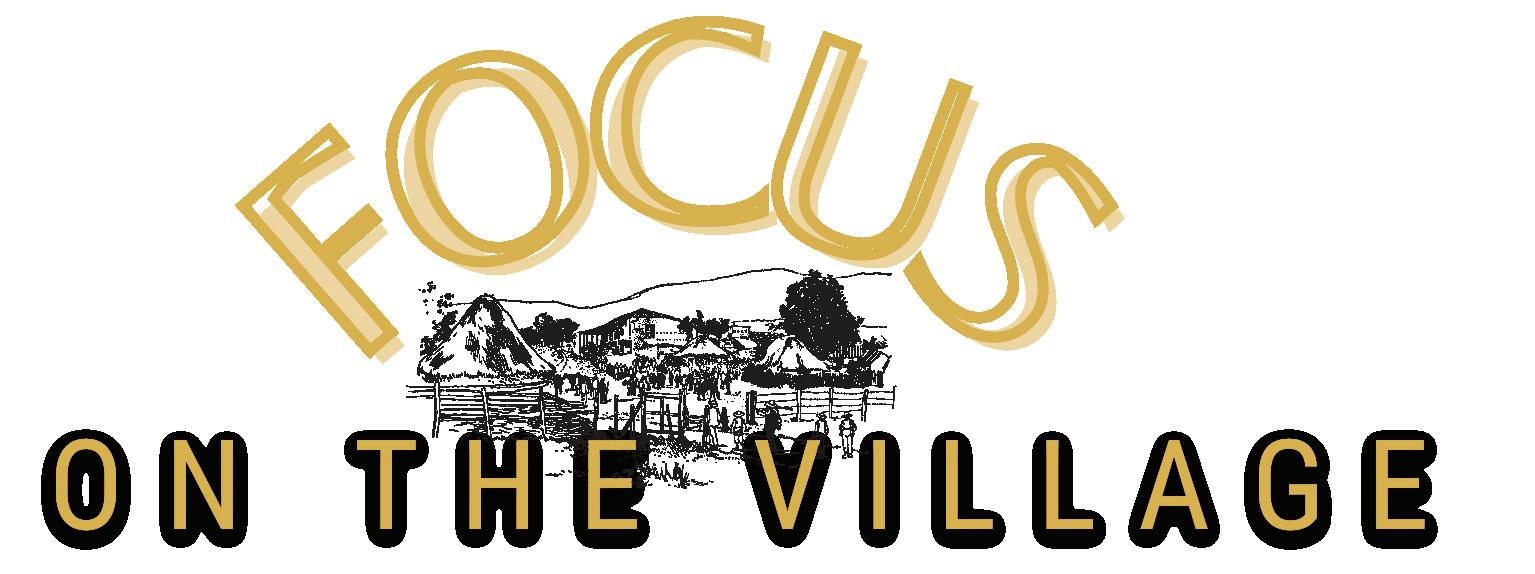
LAST week the Pepperpot Magazine visited a section of Amelia’s Ward, Linden, called Cinderella City which can be found aback Lover’s Lane. This community sits comfortably on a hill with a picturesque view.
Amelia’s Ward, Linden, is said to be one of the largest housing schemes in Guyana,

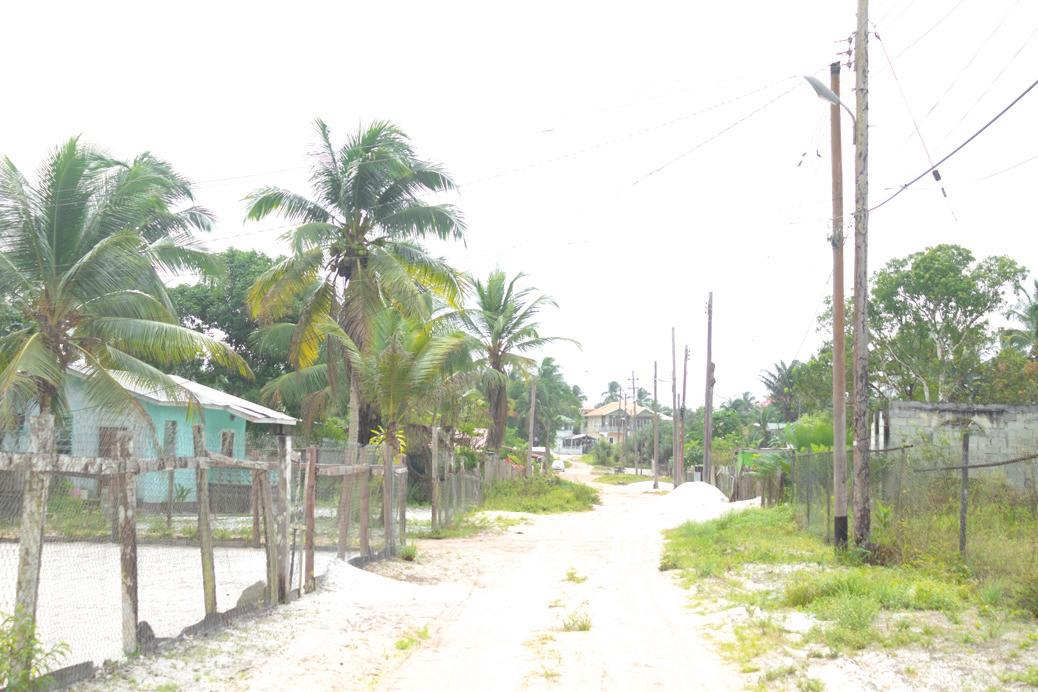
and it is home to people from all walks of life.
Amelia’s Ward is a large community which runs very deep and has various sections. It is reported that the village got its name when the late President, Linden Forbes Burnham, visited the village and met a woman named Amelia and her children,
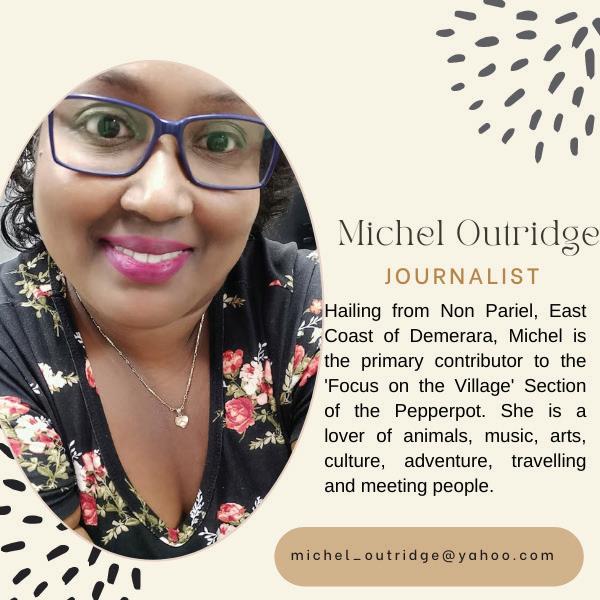
then later named the village after her.
To get to Cinderella City, there are three access points: Lover’s Lane, Main Street, and Graham corner. Cinderella City is a neat little village that has a few shops, lots of dwelling houses and like-minded people who have been there all their lives.
Gladwin Webster
Gladwin Webster, a stayat-home poultry farmer, is among the first people to occupy the village when it was still in a jungle-like state.
The 66-year-old told the Pepperpot Magazine that Amelia’s Ward is the biggest housing scheme which started in 1969 with two phases because of its size.
Webster and a handful of folk were the only occupants who settled in the rear of the village after clearing sections of the land.
He stated that the two phases are Vrezina Scheme and the Self-Help Scheme, and the village began to develop after the highway was opened in 1968.
Webster disclosed that, today, the area has developed and has been regularised. Residents benefit from all the basic amenities such as electricity, potable water, internet, landline phones and cell phone services.
The villager reported that the Self-Help Scheme was developed partly by the bauxite company. Locals who worked with the company had to put in a certain number of hours and the materials were provided for the construction of their houses.





The father of 12 stated that he has been residing in Cinderella City for the past 42 years, and when he moved
to the area, a few families were already there when it was a squatting area.
Webster stated that they have more than 70 families residing in Cinderella City to date, and it is a close-knit community where there are some newcomers.
He is a poultry farmer who is rearing more than
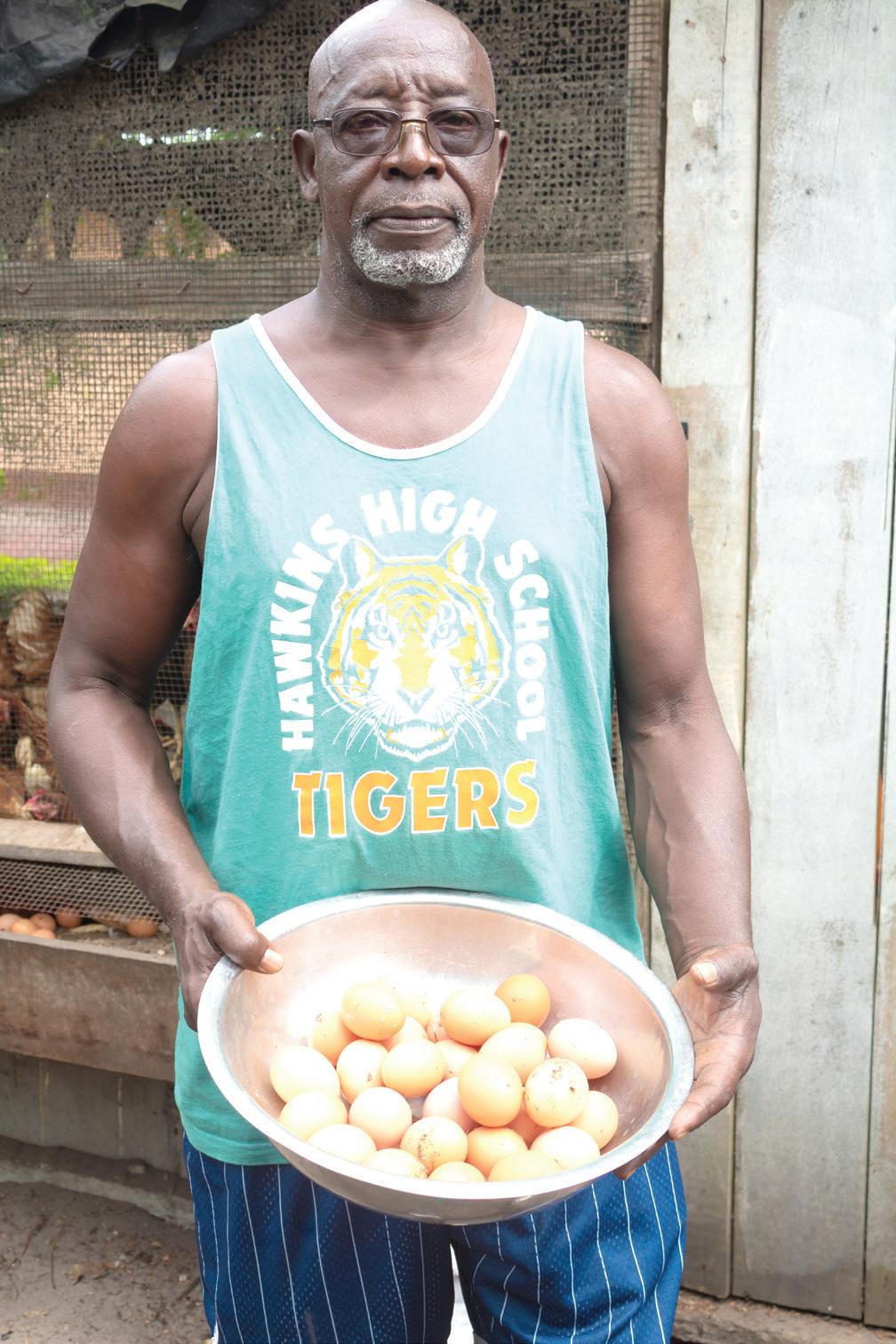
LINDON Jones, better known as “Blackie”, is a resident of Cinderella City and he is among the first settlers of the community.
The 58-year-old told the Pepperpot Magazine that his parents moved to squat in the village when he was a small child and they are originally from Beterverwagting, East Coast Demerara.
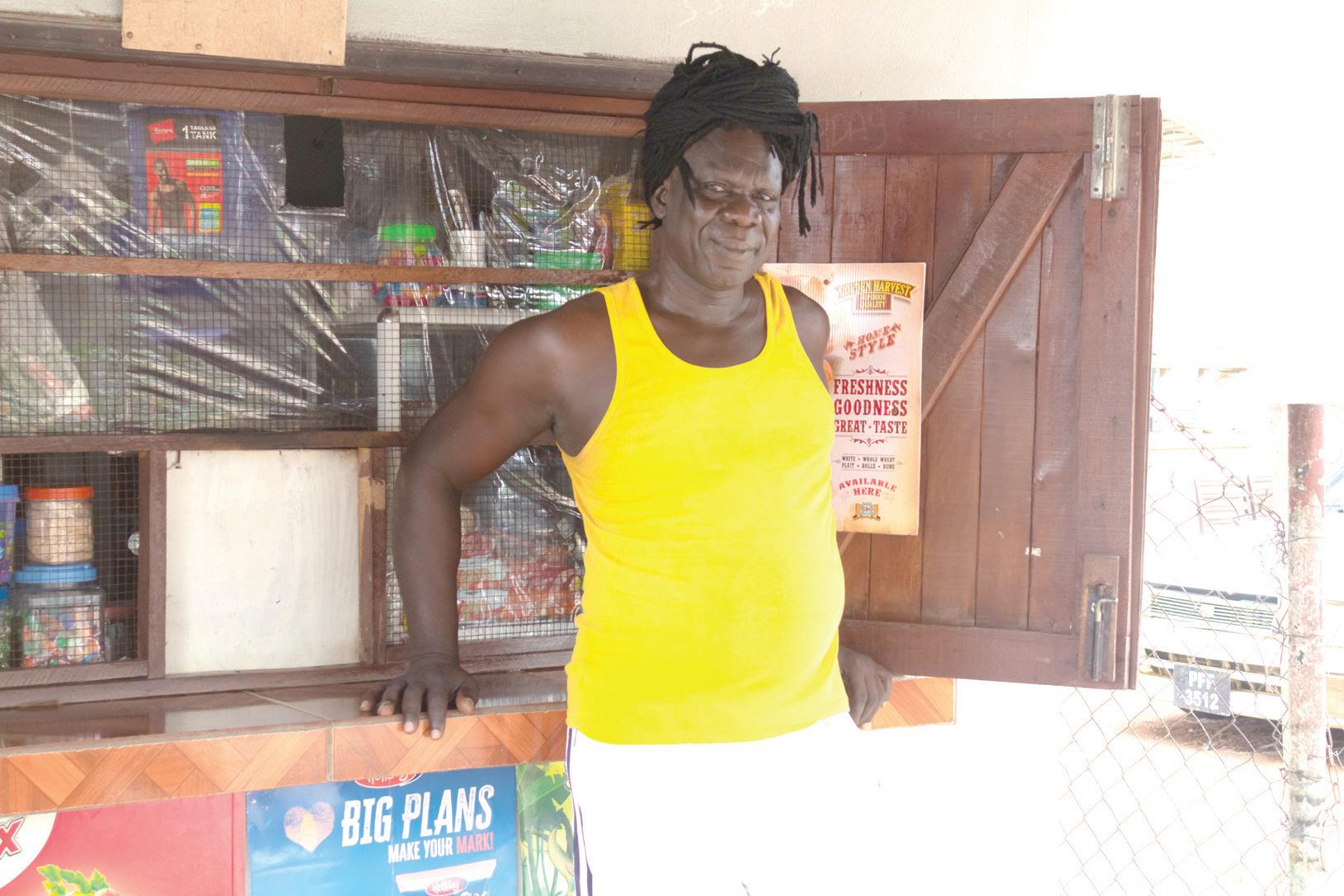
Jones added that in 1967, when they relocated to Cin-
derella City, it was a jungle with nothing but big trees and his parents, with a few other families such as the Fiedtkous, the Alleynes, Flemings and the Harrys began clearing the land.
He explained that back then, the men used the wood to bake charcoal in manmade pits and sold it to earn.
Only Peter Harry and Edward Fiedtkou are still alive and living in the village while the others, including his parents, who first occupied the
land, have since passed on, but their descendants are also residing in the community.
Jones explained that his father was a carpenter and a very skilled one, too who built most of the houses in the village.
His father passed away about seven years ago and his mother died earlier. He has five siblings and he has his own plot of land where he has established a small business, a shop.
Jones told the Pepperpot
Magazine that they had occupied a spot at the rear of the village just above the valley in those days. He remembered the Sun Chapman vessel which they referred to as the Harriage Carr transported passengers and goods from Georgetown to Linden via the Demerara River before the Soesdyke-Linden Highway was constructed in 1966.
The Cinderella City resident stated that he used to work in the interior and as he matured, he realised he wanted to be close to home and three years ago, he opened a shop in front of his house.
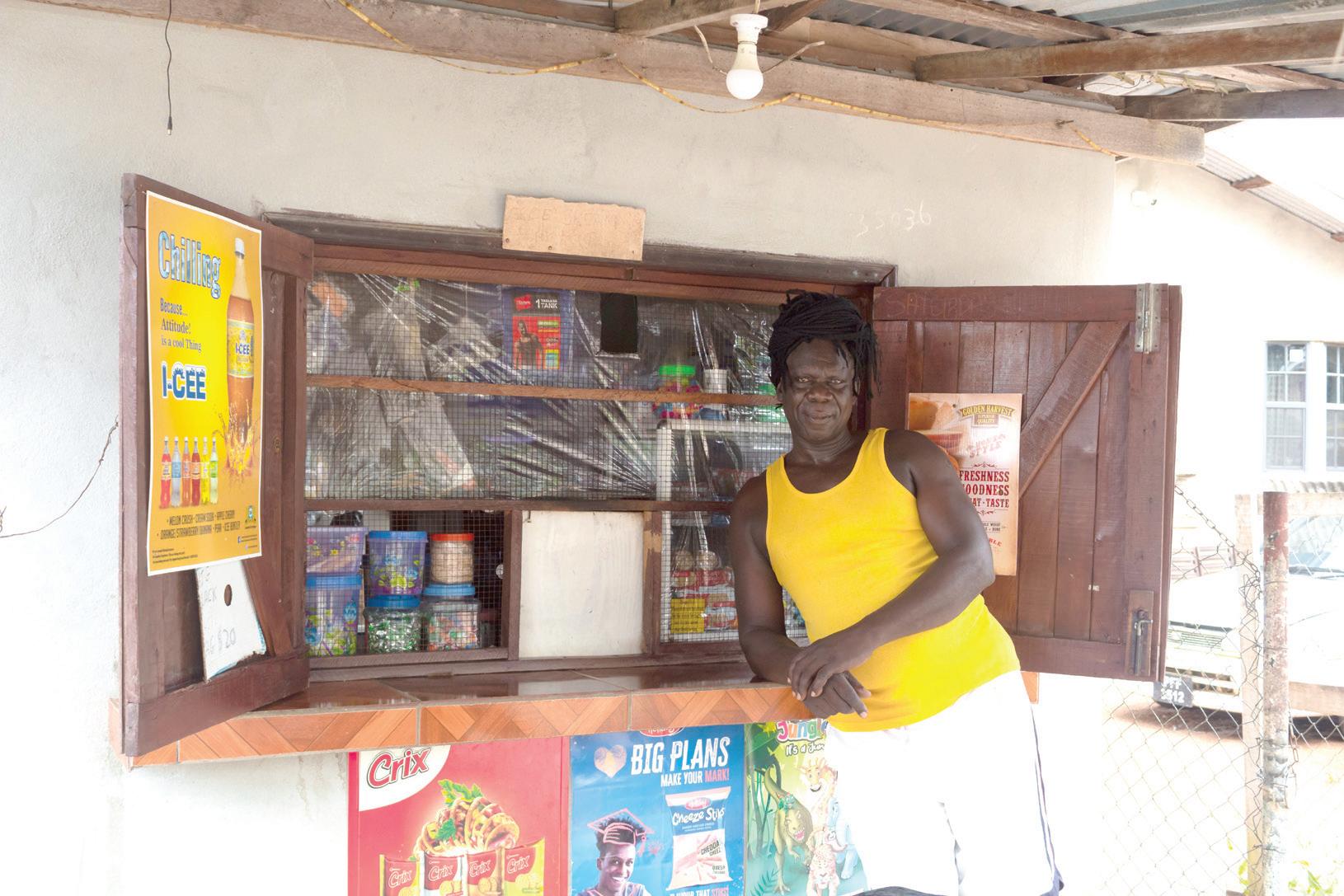
Jones was in the army in the 1990s before he began working in the hinterland and he had a farm of ground provisions.
He disclosed that he was told that the village got its name from the late Minister Shirley Field-Ridley, who had visited the village and they wanted to participate in

recreational games, and they could not enrol without a village name.
Jones added that the then-minister asked for their advice on naming the village and they agreed that Cinderella City was appropriate; thus the name derived and it was in the 1980s.
Presently, the village has a playground at the community entrance but no facilities such as a community centre for the children and youths.
“I try to live life to the fullest. I like the freedom here, I grew up here and I have a family and a small business and it is comfortable despite some challenges, but it is home for me,” he said.
Jones explained that he relocated to Cinderella City when he was just two years old and when his parents were out, the neighbours, Mr. Alleyne and his wife would take care of him until his folks were back.
He stated that the early settlers did all the work in clearing the land for occupancy and there weren’t many. Still, they worked tirelessly to bring the place to an acceptable standard to become a safe habitat from its former jungle-like state.
Jones said it would be nice to benefit from a resource centre or a community centre, especially for the youths and children who are plentiful in the village, for them to have a safe space for recreational activities and skills training since they have the land for that.

He noted that there is a lot of unemployment among the youths who have become idle.
Jones told the Pepperpot magazine that Cinderella City is a safe place to live and he has no desire to relocate.
IT was with great determination and dedication that Dr. Allan Outridge equipped himself with to become a heart specialist. He was once a journalist, and today he aspires to fulfil all his medical dreams, including going to Russia to pursue studies.
These days, the good doctor is aiming high as the sky, where there is no limit to educating and qualifying himself.

His medical journey started when he had a stint at National Telecommunications Network (NCN) as a reporter between 2004 and 2005.
Dr. Outridge told the Pepperpot Magazine that one day he was at work when he saw an advertisement for possible candidates to study medicine abroad, which was a scholarship and knowing he wasn’t financially capable of doing it on his own, he grabbed the opportunity by applying.
He penned his application and with his qualifications, he was shortlisted for the medical programme in Havana, Cuba, in 2006.
Dr. Outridge reported
that he spent seven years and when he first arrived, it was a culture shock for him. The language barrier and the completely different lifestyle was all new to him.
He admitted within the first year, he called home and told his mother he wanted to quit, but she wouldn’t allow it even though he was homesick.
Dr. Outridge pressed on despite the challenges and he returned to Guyana in 2013 and was placed at the Georgetown Public Hospital Corporation (GPHC). After some time, he requested to be transferred to his hometown of Linden.
He worked at all the hospitals in the mining town and after three years in the medical profession, he got another opportunity to do his Master’s in Medicine in China.
The doctor stated that he applied for the programme and out of 100 applicants, he was shortlisted as one of 10, then downsized to one of eight, after which he was accepted and left for China.
However, all wasn’t well for the doctor who could not cope with the technical method in China and asked to return to complete the
programme in Cuba, due to their more hands-on training approach.
Dr. Outridge explained that after a year in China, he returned to Cuba and spent three years and successfully attained his Master’s Degree in Medicine.
He added that he returned to Guyana and his vision bore fruit via the Empire Medical Centre Inc. with the support of the board of directors and a few individuals who came on board with him.


“I knew what I wanted to do and while I was studying, I had to quit my extravagant lifestyle and I sent back money to Guyana to finance the hospital to bring it to an acceptable standard,’ he said.
Dr. Outridge stated that it was a lot of self-sacrifices and he put pieces of himself into the hospital with the support of three individuals, an aviator, a lawyer and a board member of St. Joseph Mercy Hospital.
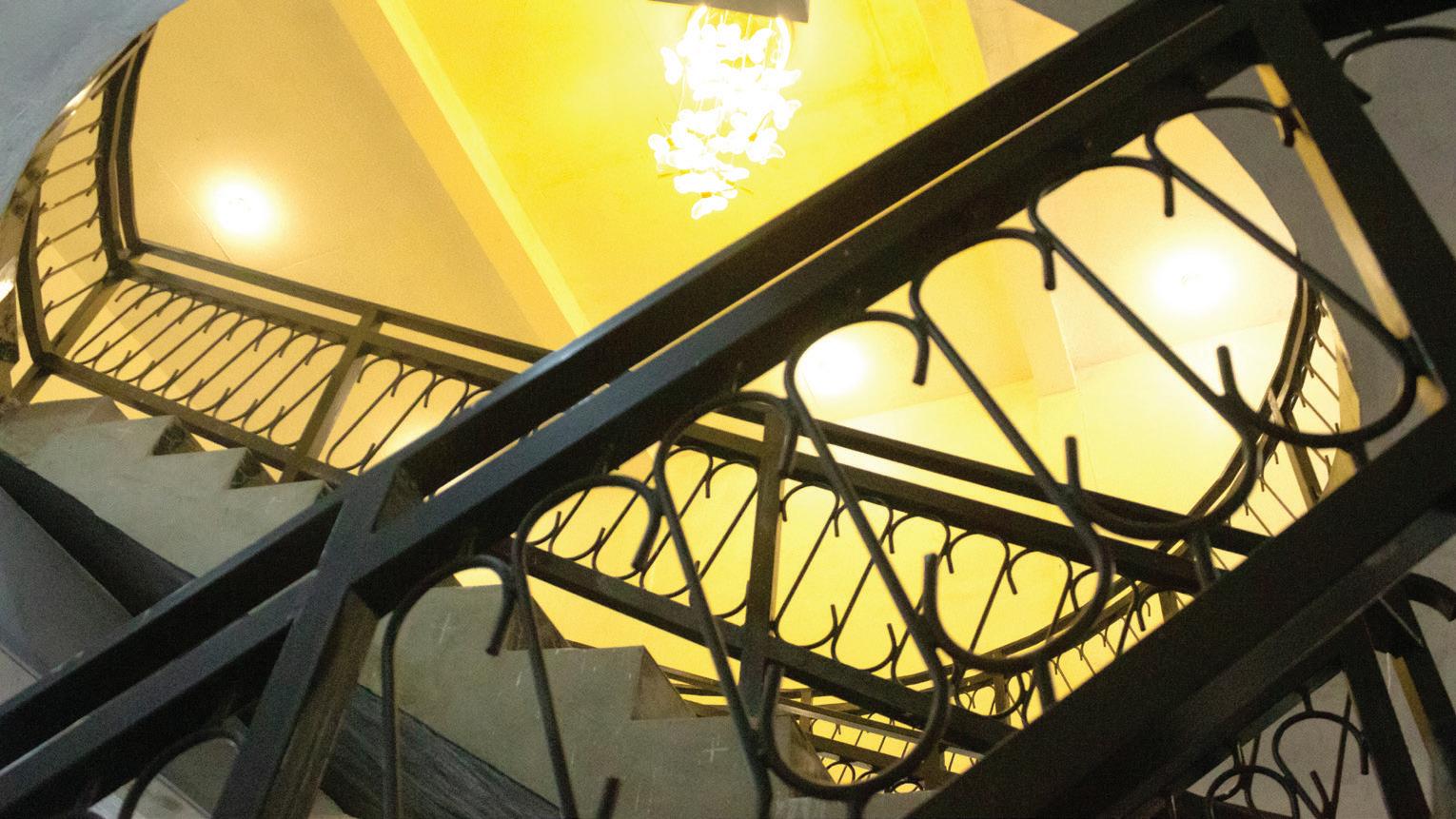
The Cardiologist told the Pepperpot Magazine that the private hospital is fully equipped and adequately staffed with various specialists to provide a reliable, professional service to both
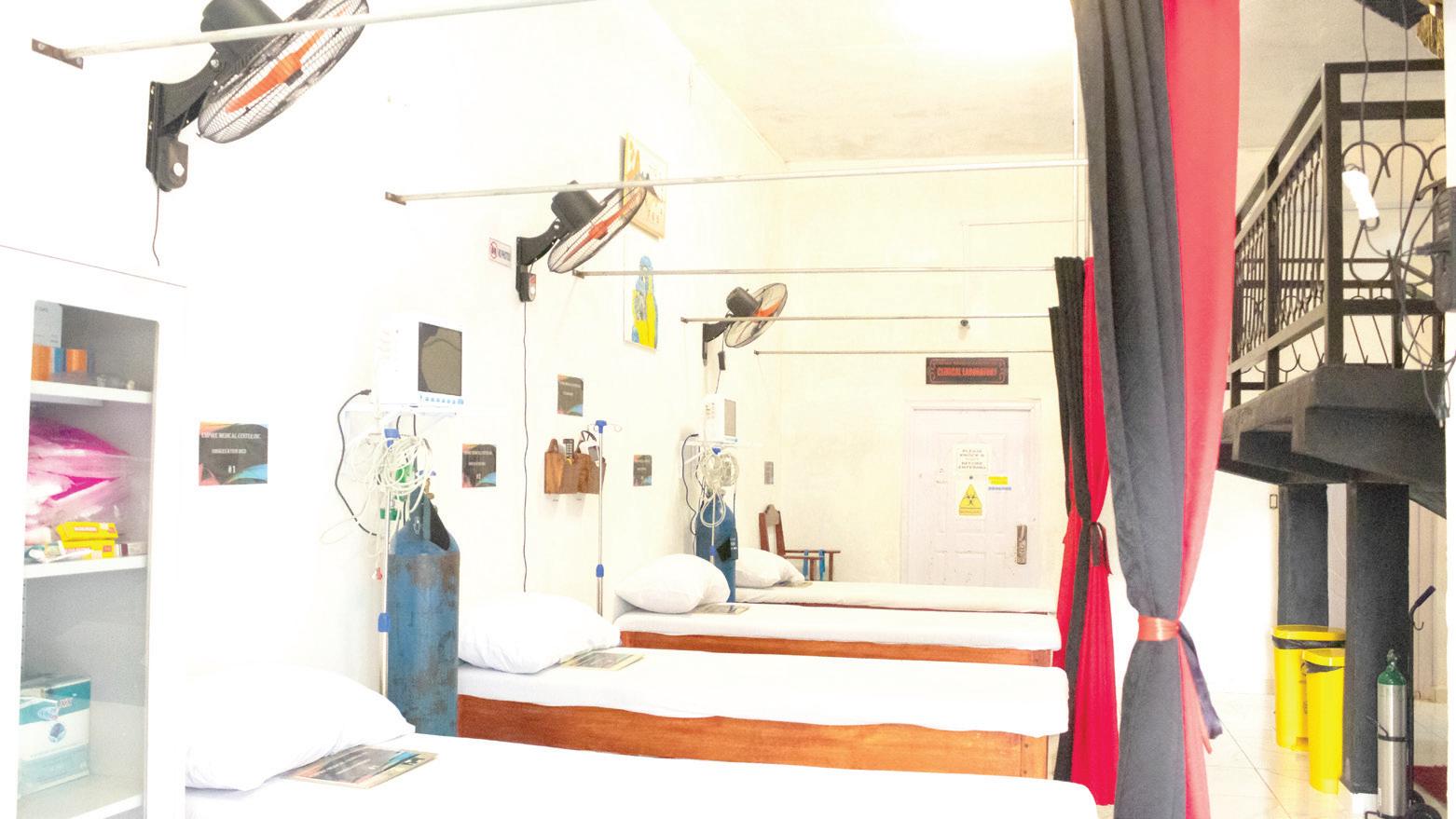
SEE PAGE XXIII
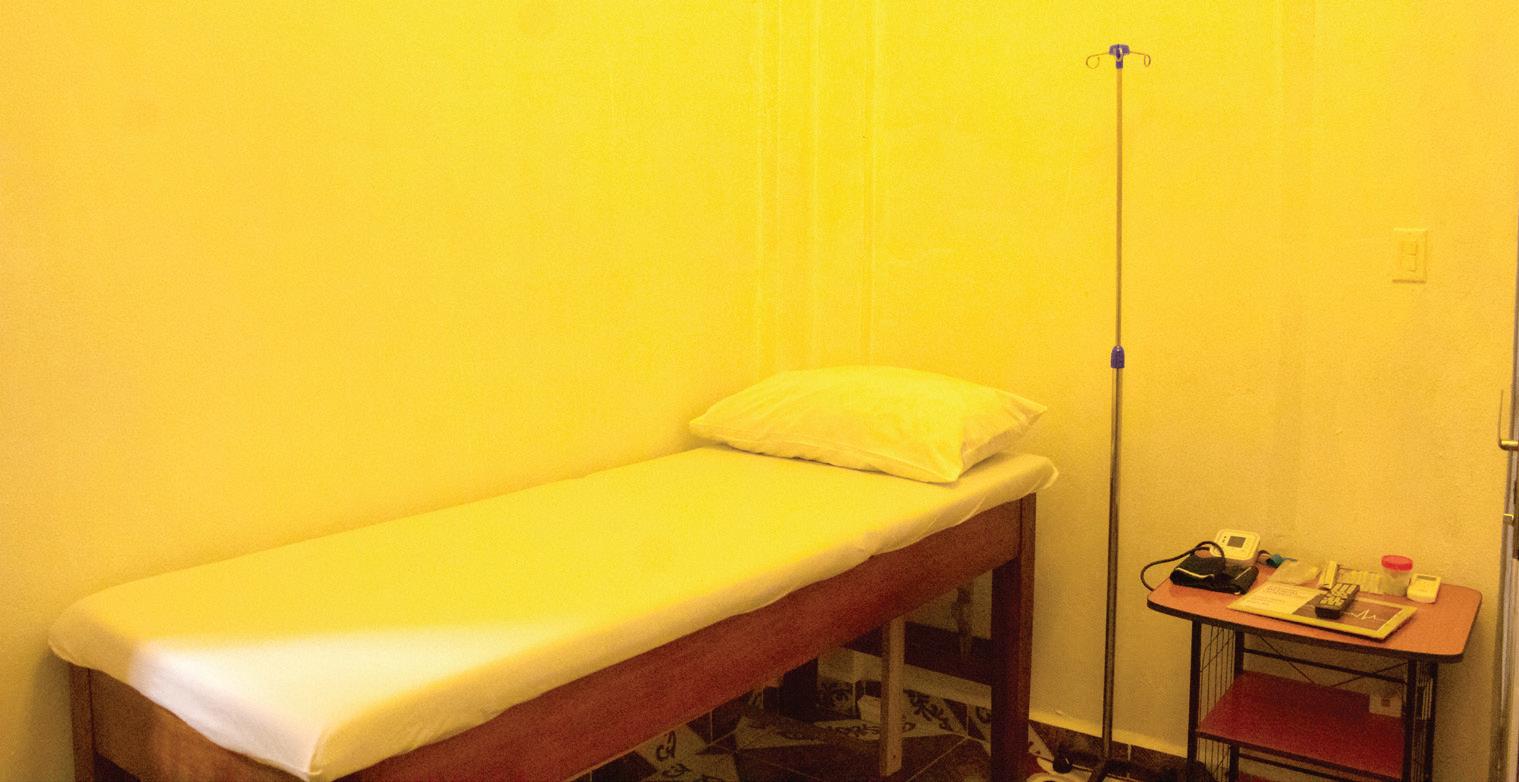

EDWARD Fiedtkou is one of the first settlers of Cinderella City, Amelia’s Ward, Linden who is still alive and is faring quite well despite challenges with his eyesight at age 89 years old.
When the Pepperpot Magazine visited his home, he was reclining comfortably in his rocking chair on the verandah with his caregiver, his daughter, Shawn Fiedtkou, who resides in the Cayman Islands but is here to care for her elderly dad.




The father of 13 reported that he has seven girls and six boys. One of the boys passed away and most of his other children reside overseas.
He is the grandfather of 21 and great-grandfather of 14.
Fiedtkou told the Pepperpot Magazine that he left his
home village of Friendship in the 1960s and relocated to Cinderella City.
He gained employment with the then Demerara Bauxite Company (DEMBA). There, he held the position of leading hand (belt line) at the huge wheeler machine and was in charge of a shift as a supervisor.
Fiedtkou reported that he served 34 years with the company before retiring as a foreman.
He disclosed that when he came to live in Cinderella City, the place was a forest and he had to clear a part of the land to build a modest house and there were only four other residents then.
ported that he also did some farming to earn and, as time went by, more people began occupying the lands until there was none left.
“This village has come a long way from then to now and we have a lot to be thankful for. It is a developing community, although we don’t have everything yet and I like it here. The quietness and the peace appeal to me the most,’ he said.

Fiedtkou explained that the few people living before him in the village came together, developed the place, and assisted each other to build houses. They have been living together since then with no issues.
place to live and he would not trade it for another village.
Fiedtkou is basking in his old age and enjoying every
aspect of it, including being pampered with nothing to do and all the time to do it.
Oral De Young, the
man with the unusual house in Cinderella City At first glance the sight
Fiedtkou stated that he began living in the village in 1965 and was one of the men who cut the trees to bake the wood to make charcoal to sell.
The elder resident re -
He revealed that some of the street lights are not working and should be fixed since the place is unusually dark at night.
The resident added that Cinderella City is a safe
AVIS Isaacs is a talented individual who wears many hats. He has inculcated the very habit in his eight children, who are leading good careers and making strides in society as productive citizens.
He is a resident of Cinderella City, Amelia’s Ward,
Linden and a politician who aims to make a difference in the lives of his fellow Guyanese.
Isaacs told the Pepperpot Magazine that he has been living in the village since 1998 and he is originally from Canal #1 Polder, West Bank Demerara.
He related that when his mother passed away, he was
14 years old, and he ended up in Linden with an uncle to learn skills training and used to reside in One Mile, Wismar, Linden.
The father of eight stated that his father was a boat builder and as a boy he learned the trade and had knowledge of construction and wanted to broaden his scope in that field to become
self-employed.
Over the years, he has mastered the art of construction and began doing different things to earn, including bee and chicken rearing, farming and politics.
At his home, he has some chicken pens rearing meat birds and layers. He also does some construction from home; when the team visited, he was making some bee hives.
Isaacs has a farm at Bamia, Soesdyke/Linden Highway, where he has his coconut cultivation and a farm at Moblissa for an apiary and six hives for his bees.
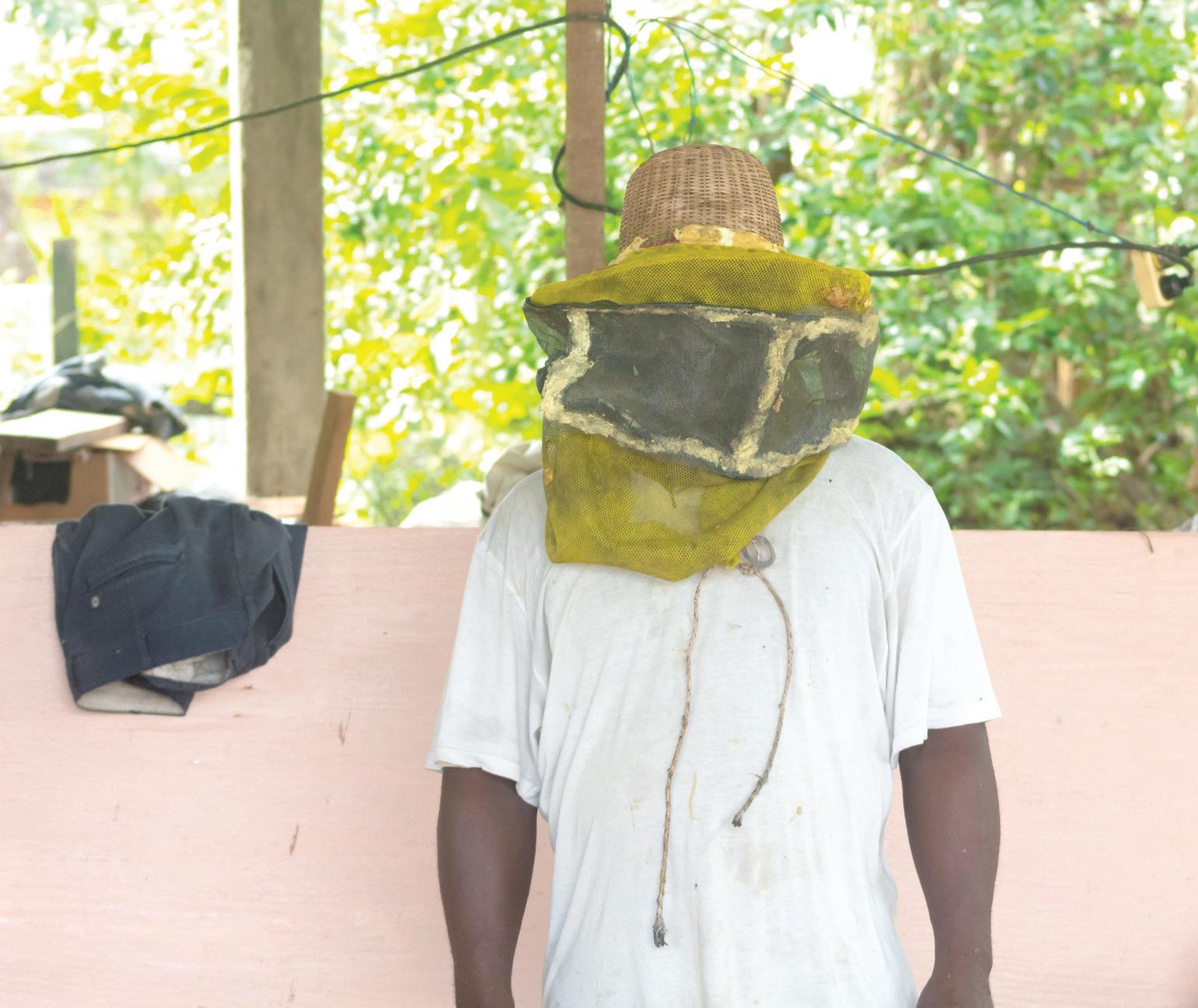
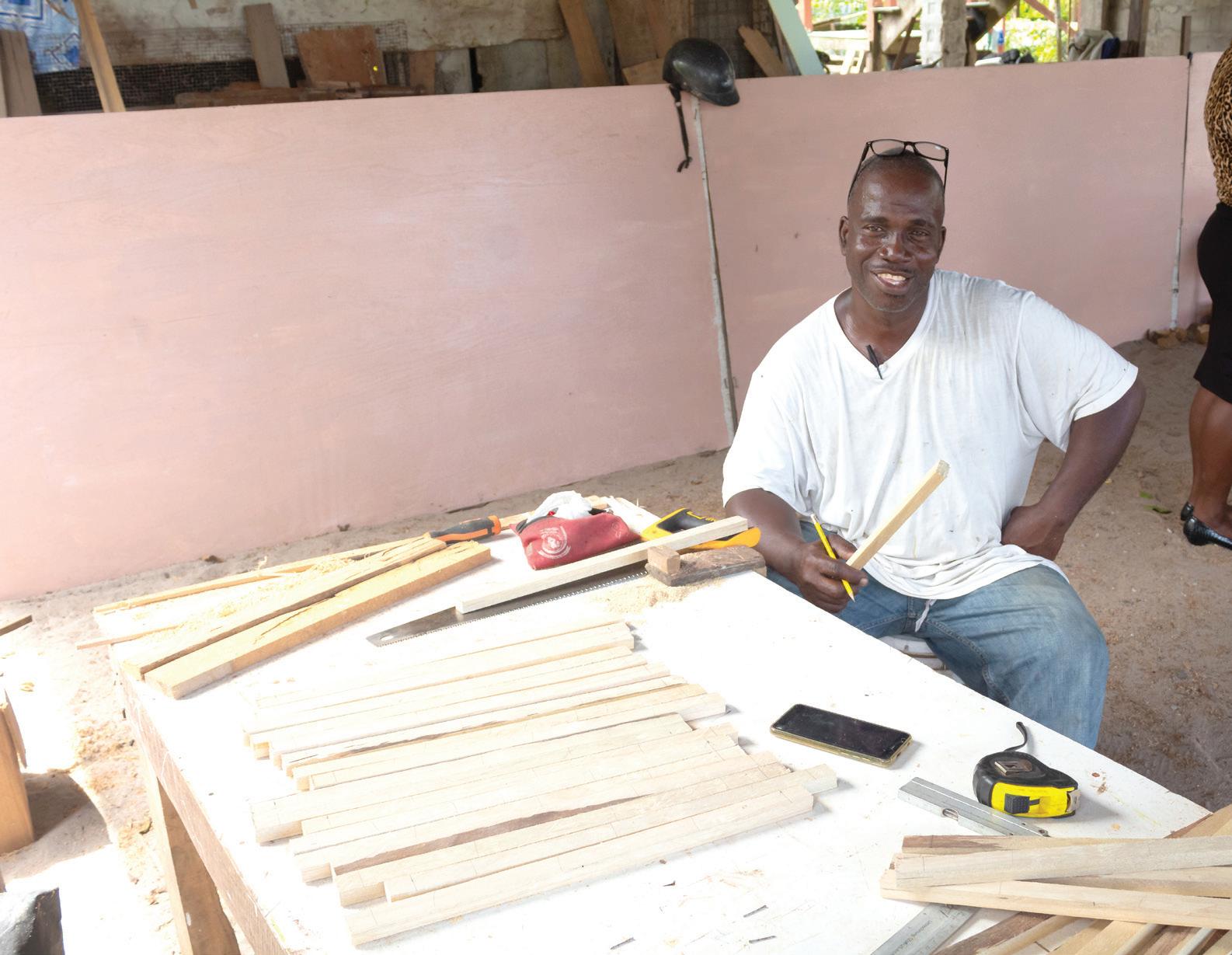

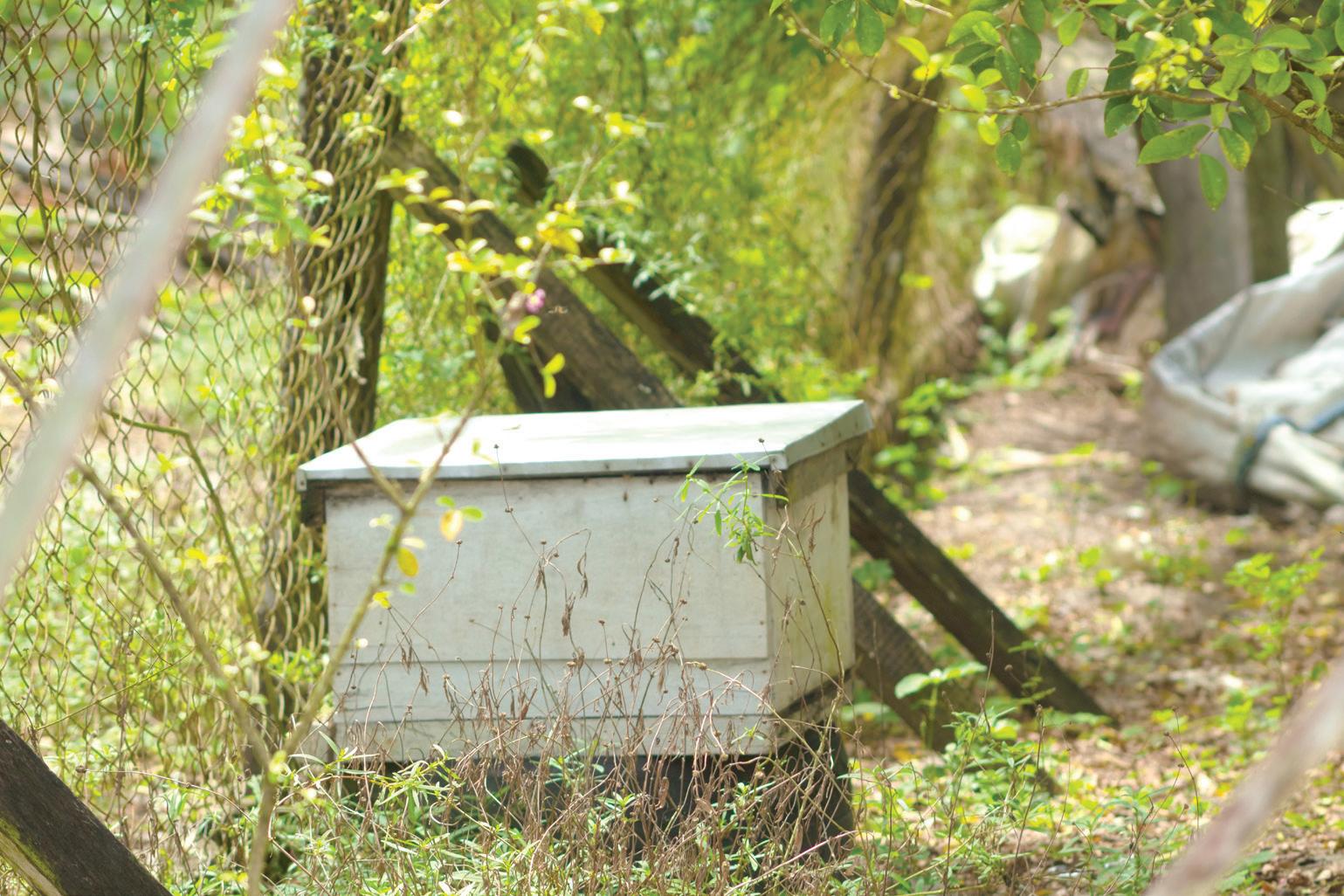
The honey harvested is bottled and sold to shops in the community for retail purposes with his own brand name, Avis and Troy Honey Produce.

Isaacs told the Pepperpot Magazine that he keeps going
because he is aware of his purpose and is now bouncing back from mourning following the sudden death of his wife in February this year.
He added that he would sell his chickens to wholesale suppliers in the community and he formed his own political party, New Horizon Movement in 2012.
Isaacs also serves as a counsellor in his community. He often gives advice and moral support to just about anyone in need and may be experiencing many difficulties in life.
His aim in the political arena is to become the mayor and lead the community and people toward development.
“In this life you have to make yourself marketable and I have engrained that in my children and they are doing the most of academics.
I have two sons, a Captain
and a Corporal in the army, another son, who is an educator in Barbados, a daughter, who is geologist, another daughter, who is a doctor in Mabaruma, another girl, a teacher in Linden,” he said. He stated that all his children compete to become all they can be career-wise and he is proud of them and their achievements.
Gen Isaacs, the young teacher
Gen Isaacs, a young teacher attached to Blueberry Hill Nursery School, told the Pepperpot Magazine that becoming a teacher wasn’t her first career choice. Still, it was her motivation for children that led her down that path.
She disclosed that she wanted to become an Opti-

RECENTLY, there was some negative comment on removing mangroves in the process of constructing the Gas to Shore project in the Wales Estate area, although the project will be strengthening the coastal and riverine areas from which the Mangrove had been removed against soil erosion and flooding. Such a comment was obviously not made from an environmentalist perspective. The consumer community has always advocated the protection and cultivation of Mangroves and today we are revisiting the subject.
Mangroves are among the planet’s most important ecosystems and are unlike other trees in many important respects. They grow in low-oxygen coastal areas and they are the only trees that can grow in and tolerate salt water and rid themselves of excess salt through their leaves. Part of their sturdy roots is always above ground, and fisherfolk often use them as poles. Because of their high salt tolerance, they are among the first species of plants which colonise mud and sand banks flooded by seawater. Accordingly, they grow on coasts and riverbanks. Sometimes they could grow into forests, as is the case of the Sundarbans in the Bay of Bengal, which tigers and other wildlife inhabit.
Mangroves are strictly subtropical and tropical plants and are never found in colder climates. Most Guyanese know of and can distinguish only three species - black, white and red Mangroves and may be surprised to learn that there are approximately 80 species.

When the Dutch colonists first came to Guyana, they were believed to have found thick mangrove forests all along the coast from the Mora Passage in the Northwest District to Canje. These protected the low lying coast from flooding and erosion for centuries. Accordingly, the continental shelf was much wider than today. As human habitation progressed, the mangroves were cut down and cleared, and it was only at the beginning of the 20th century when coastal communities suffered flooding and land erosion, that the value of Mangroves came to be fully recognised by the government and people.
It should be mentioned that Mangroves not only offer protection against flooding and erosion, but as importantly, they
afford protection against high tides and tidal waves which could come upon countries without warning in the present milieu of Climate Change. Tamil Nadu, a state in India, had never before been affected by Tsunami but was recently so affected. The areas where the Mangroves had been cut down suffered physical destruction and deaths, while the areas protected by Mangroves escaped comparatively unscathed.
Mangroves have other social and environmental impacts: They protect corals and provide nurseries, habitats and, spawning grounds and nutrients for a variety of fish, shellfish, migratory birds, insects as well as for many endangered mammals, reptiles and amphibians and help to conserve the rich biodiversity of the country. Mangrove honey is one of the most valued honeys in Guyana.
Mangroves are a carbon sink and combat Climate Change and, together with the forests, add to the carbon credits of the country. Since carbon credits are a saleable commodity, Mangroves now have a measurable financial value. Though some individuals and communities still misuse and cut down Mangroves, the Government and the population as a whole have now become aware of the value and importance of Mangroves.
In Guyana, there are several non-governmental organisations (NGOs) which continue to raise the awareness of the


population as to the importance of Mangroves. They have enlisted the help of the Educational System and have been executing programmes and projects promoting the sustainable use of the plant.
The Ministry of Agriculture, through its Mangrove Department, has also been doing comprehensive work on the preservation and extension of Mangrove areas. They have undertaken some replanting which has been successful despite the danger of livestock like goats feeding on the young plants. Finally, the importance of Mangroves has now been recognised at the highest levels when the government has included them in the updated Low Carbon Development Strategy (LCDS) for 2030.
ON March 22, Guyana will join the rest of the world in observing the International Day of Forests under the theme “Forests and Health”. This international observance intends to raise awareness of the importance of all types of forests and to promote solutions for issues related to the management of forests.
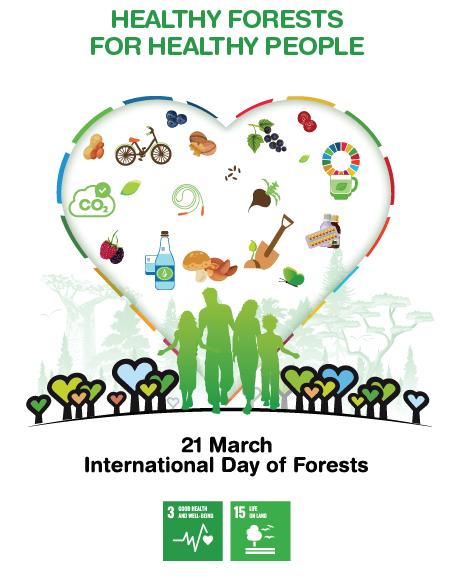
The World Health Organization defines health as “a state of complete physical, mental and social well-being and not merely the absence of disease or infirmity”. Forests provide, directly or indirectly, important health benefits for all people – not only those whose lives are closely intertwined with forest ecosystems, but also people far from forests, including urban populations – from the provision of food, medicinal plants, and clean water, to protection from the elements (high winds and waves), and naturally cooling urban
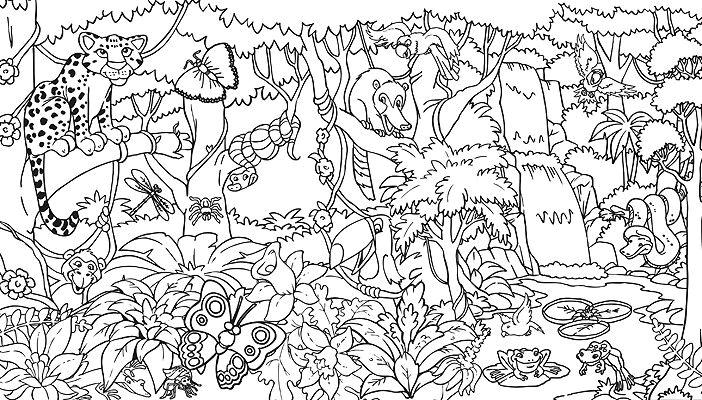
spaces. Numerous studies have shown that contact with nature positively influences our mental and physical well-being - spending time around trees helps boost our immune system, lowers blood pressure, and promotes relaxation.

Forests filter water and air
By filtering pollutants from air and water, forests help reduce the threats of pollution-related infectious diseases and non-communicable diseases, including diarrheal disease, cancers, and respiratory diseases. Research demonstrates that upstream tree cover is associated with a lower prevalence of diarrheal disease (linked to water pollution) in children downstream. A 30 percent increase in upstream tree cover is linked to a 4 percent reduction in the probability of diarrheal disease—similar to the effects of an improved sanitation facility.

Forests provide us with medicines
Many of the medicines
SEE PAGE XIX
SHADOWS deepen as wolves cry; night in supreme reign over the earth.
The distant, deep-throttled hum of engines from the outskirts of the city, through streets and avenues, like a calling, drew closer and closer. One cue, they burst into the city’s main square with hell-raising sounds, fire on their wheels. The big bikes, metallic demons, fearsome and brutal, the roads can say, and their riders wild and fearless as night after night, they played games with death.
‘Wild Things’ they called themselves, the roads their playground for daredevil stunts and acts; a wildlife to live and to die if may, no regrets, no tears. The angels from above watched bemused, for how many hadn’t they guided home over the years as their loved ones cried and prayed for their souls.
Rebels of today and tomorrow who cared less how sacred and priceless life was, and as the wild things of the night continued to flirt with death, in another part of the country, in a hospital bed, prayers courted life as a young girl battled to stay alive.
A defect in her heart could not guarantee her long life, and as it grew weaker, her days became numbered. Her name was on the donor’s list for a long time, waiting as the minutes ticked away, day by day. Her eyes became dull, her lips paled, yet she could still smile a little, holding on to faith as time drew closer. She heard the Christmas songs and jingling of bells, knowing she may not see the dawn of the new year.
The irony of life, a revelation, stunning in its extreme; a young girl nurturing a dream to become a doctor, to make a worthy contribution to humanity, a girl in whose belief life was as unique as the stars, sun and moon, was, by an act of fate, being denied a chance to live.
“It’s God’s will, mom,” she said with her precious breath, “Don’t cry.”
“How can I not cry, my child?” her mother asked, a tremor in her voice, “You’re my heart and soul.” She squeezed her mother’s hand. “The angels from Heaven watching the scene of life on earth whispered, “It’s almost time.”
As the angel set to descend, a young biker performed her last daring stunt as her bike skid out of control and crashed. Doctors on call rushed the accident victim to the theatre. She was a donor, her heart the exact match to the young, aspiring doctor drawing on her last breath. The complexity of fate and a miracle bond by prayers.

In the dark of the night, the engines hummed and revved as ‘The Wild Things’ lit candles for their fallen friend. They will continue to ride a legacy of death and dare that must not die.
The girl who was the recipient from the donor sang songs of praise and thanks as she heralded in the New Year. A life to treasure as she continued her studies to follow her dreams, but sometimes it seemed hushed whispers interrupted her thoughts. It was something strange, and though she tried not to focus on it, the whispers continued as though someone close was trying to tell her something. She told no one about
her strange experience, knowing it was something she had to deal with on her own.
Who was trying to talk to her? And why?
Sarah always studied late into the night, and it was on one of those nights, months later, when the hushed whisper became soft, distinct words, “She wanted the best for me, but I followed the wrong path. Now I’m gone, and she’s all alone.”
Sarah said nothing, and the voice faded away. She wrote down the words and stared at it for a long time, not sure what to think. It was a young girl’s voice filled with regret for someone close to her. Sarah heard nothing more until a few days later.
“She’s so sad. She cries all the time. How could I not have known how much she loved me? I wish I could hold her now
and say ‘sorry’ but I can’t.”
The regret in the young girl’s voice was so deep, it touched Sarah’s heart, and she asked quietly, “Who are you? And why are you talking to me?”
No answer, not for another few days. Then late, the third night, the girl spoke again, “She wanted me to be someone like you; smart, ambitious and disciplined.”
“What happened?” Sarah asked.
“I became a rebel, living wild. The night I died was the night you were given a chance to live.”
Sarah drew in her breath sharply, and put down her pen, understanding now why this was happening. The girl who had been speaking to her was the donor whose heart beat within her. Sarah stayed calm, praying in her mind, “Please, God, don’t let this be something bad for me.”
“Why,” she asked of the girl, “Are you telling me this?”
“I want you to take care of my mother, be the person I couldn’t be to her, and let her know how sorry I am, and that I loved her so that I can move on.”
Sarah travelled to the city the next day to the girl’s home, as directed, but the mother was neither there nor at the church. She found her at the cemetery, kneeling at her daughter’s grave – a sad, broken woman. Sarah touched her on the shoulders lightly and said, “Mrs. James, I’m sorry for your loss. Christine was an old school friend.”
The woman turned to look at Sarah and tried to smile, just a hint, and shook her head.
“She was my baby, my only child.”
She broke into tears and Sarah hugged her, trying to give her some comfort.
“Let prayers heal and comfort you, for in your heart you know she’s in a better place, and she wouldn’t want to see you sad.”
“I wish it were that simple,” Christine’s mother said as she continued to cry, “If only she had listened to me.”

“I’m sure if she could say sorry now, she would.”
Sarah helped the girl’s mother to her feet and said, “Come on, I’ll help you find comfort and closure. Together we will pray and I will spend time with you for Christine was a special friend.”
A soft, cool breeze touched Sarah and only she heard Christine’s voice.
“Thank you. Now I can leave, for my mother is in very good hands.”
Sarah smiled, “Thank you too, for your precious gift.”
And as the angels guided Christine home, ‘The Wild Things’ continued to ride – a culture, a legacy.





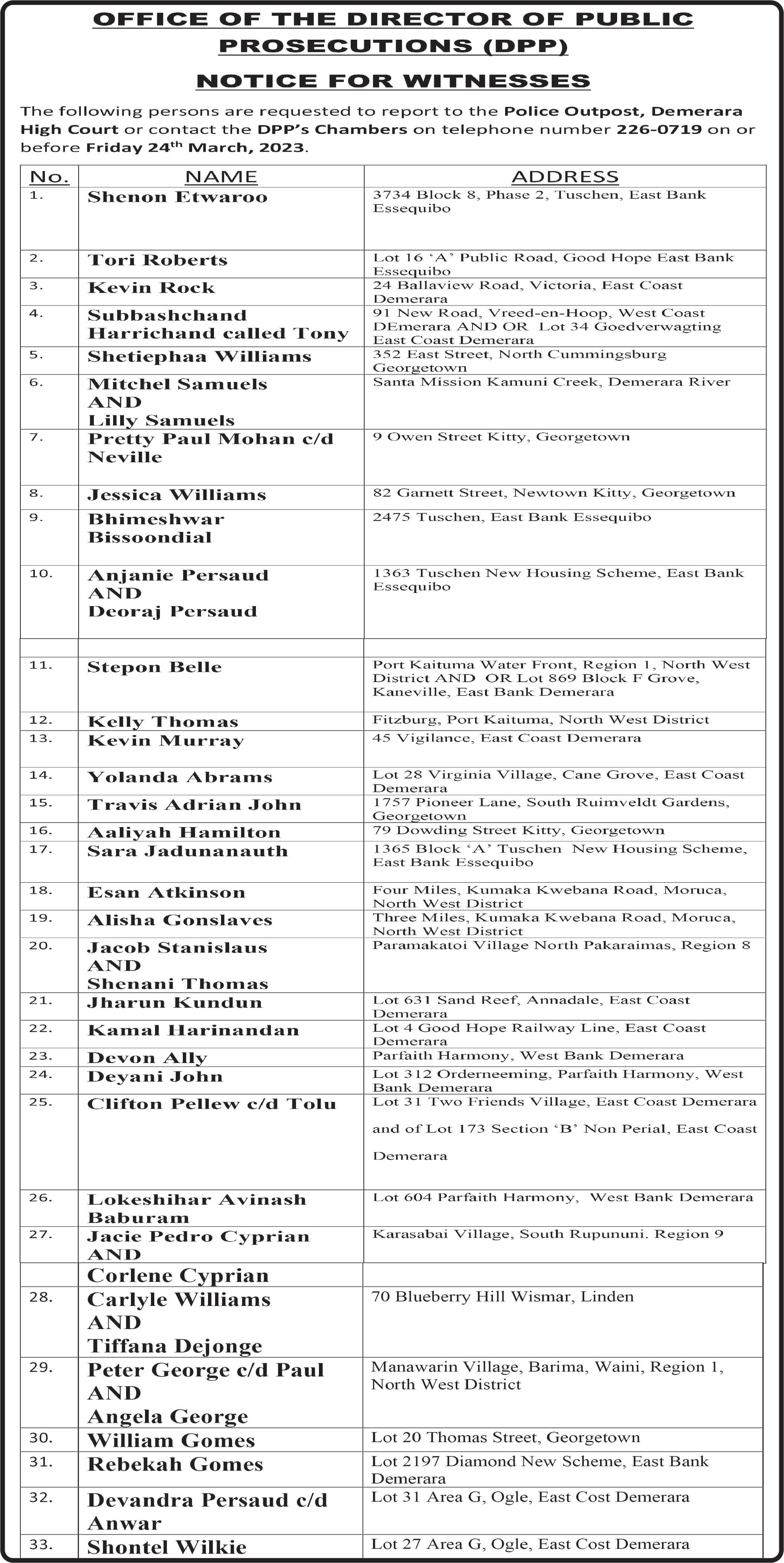



THE question is of significant importance. For instance, what if some level of reparations is identified to be paid to Guyanese of Afro-descent, who can identify with a lineage that survived chattel slavery? Then, how will such an act commence towards justified realisation, void of what exists as treats, existing in ‘shut-button authorities’ and self-serving ‘goodwill’ cartels?
So far, there are no suggestions to stem the metamorphosis across the now-dangerous modern distance we have travelled since purchasing the villages back in the 1840s, such as the development of a political class, a middle and professional class, etcetera.
And now, we have a Republican status of nationhood. But there is an order of accountability that can facilitate as a guide towards evolving with definitions towards real needs and people. This requires reaching back to Pre-Colonial Africa, and the Old World to the construct of the ‘GUILDS’.
The reality is that whether reparations materialise into small droplets, or with impressive figures or not, we still need to know where people are, what they are doing, their challenges and their needs towards effectiveness, and what the prospectus of their specific interests contain.
What are guilds? Though the term may be new to some readers, these were talent and skills-driven organisations over a thousand years ago, and even today, with current terms like associations, which, as with most things in our age, has dual meanings that are at times deceptive. A guild, back then, meant skills and talent, and was strictly meritocracy in content, be it “drum makers, cloth weav-
ing, religious dancers and costumes- metallurgy and metalwork towards arms, tools and casting of statues; farmers and livestock custodians and more.”
They did not waste time; they planned and executed what was necessary and innovative, without most of the tools we now have, and the technology. Nothing that was proven useful was left behind. Across the human world, they traded, improvised and sometimes created local interpretations.
The suggestion of the ‘Guilds’ revolves around a vacuum in Guyana. Not too long ago, the guilds were alive, perhaps not as registered entities, but they knew each other through a code of trust; recommended each other, and existed by rules. Breaking some rules could have ruled you out of the game, unlike today, with one look at some current Real Estate activities. I recently saw a young man’s house being sold by persons unknown, unbeknownst to him, three times.
And, only last year, I saw the home of a retired GDF officer being put up for sale without her permission. Those examples and others, including the recent incidents in Beterverwagting, point to a cultural deterioration, or desperation, that requires urgent systems of correction and accountability. The question may well be, how can this be executed? The answer lies with those resources we know. For example, in the Arts, I can, with a few helpful minds, point to who is real in certain disciplines, even identifying what their needs are. The same can be recorded and cross-checked. Therefore, it is sensible to assemble a register of professionals in various disciplines under the category of Guilds to help ascertain where their
expertise rests; their resume, and what their major development concerns are. This would also help the general public survive the numerous mediocrity hordes in so many areas that have manifested themselves as if from another dimension.
In closing, the murder of six million Jews over five
yars by the Nazis in the Final Solution cost Germany 86.8 billion dollars in reparations. Over 100,000,000 Africans perished during the Atlantic Slave Trade that lasted over 400 years, as well as during the raids in Africa, at sea, on the plantations, and in British Guiana after Emancipation, due to the neglect of village
drainage. Thus, reparations are not an unreasonable expectation.
Thus, if a meagre $100000 is paid by an old lady from a plantation-owning family, every cent must be accounted for directly to the Guilds of most needed. As for you folks who think that
Braithwaite and Brathwaite amount to differences, it’s all the same. Folks from some plantations in Barbados, some bought their freedom, manumitted, some were possibly deported for actions against ‘De Plantation’; nah worry, same name. Google it!
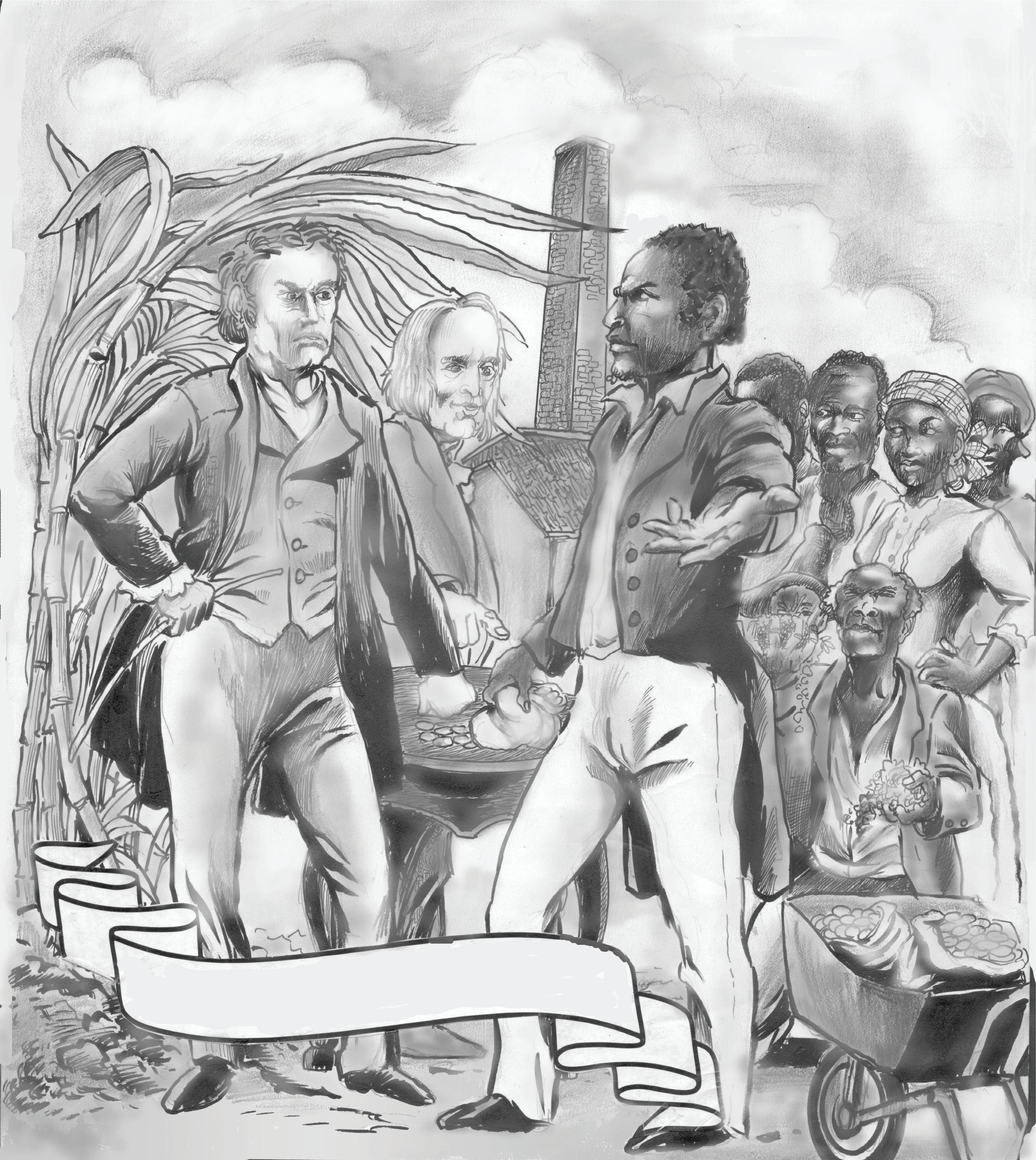
we rely on today come from forests. Twenty-five percent of medicinal drugs used in developed countries are plant-based, while it can be as much as 80 percent in developing countries. Forests also provide essential health products such as hygiene and sanitary items like toilet paper, paper towels, tissues, and ethanol for sanitisers.

The masks and protective clothing that frontline medical workers depend on are created from forest products like wood pulp and soluble cellulose fibre.
Forests shield us against future pandemics
Currently, 60 percent of all infectious diseases and 75 percent of all emerging infectious diseases are zoonotic. These diseases originate from the transfer of pathogens from animals to humans, and they usually occur when natural landscapes, such are forests, are being cleared.
Forests are also good for our mental health
Scientific evidence shows that exposure to forests can reduce human stress levels, lower blood pressure, boost our immune system, help us recover from attentional fatigue, and generally improve our overall mood. Spending time in green spaces has also been thought to mitigate the effects of attention deficit/hyperactivity disorder.
Forests Facts – Guyana
* Guyana’s rainforests cover approximately 85 percent of the country’s land mass; approximately 20 percent of the world’s remaining tropical forests are found in countries like Guyana, with high forest cover and very low deforestation rates. This high forest cover ranks Guyana among the top 10 countries globally.
* Forests in Guyana can be classified as rainforests (36 percent), montane forests (35 percent), swamp and marsh (15 percent), dry evergreen (7 percent), seasonal forests (6 percent), and mangrove forests (1 percent).
* The biodiversity of Guyana’s rainforests is rich, and our forests are home to many endemic species (plants and animals found only in Guyana) and ‘giants’ of the Amazon such as the giant river otter and jaguar. The forests are also home to our indigenous people.
* Guyana’s plan to preserve its mangroves and rainforests can be found in the Low Carbon Development Strategy 2030. This document sets out Guyana’s plan to forge a low-carbon economy, which ultimately seeks to lessen the impacts of climate change, given the country’s vast forest cover and extremely low deforestation rate.
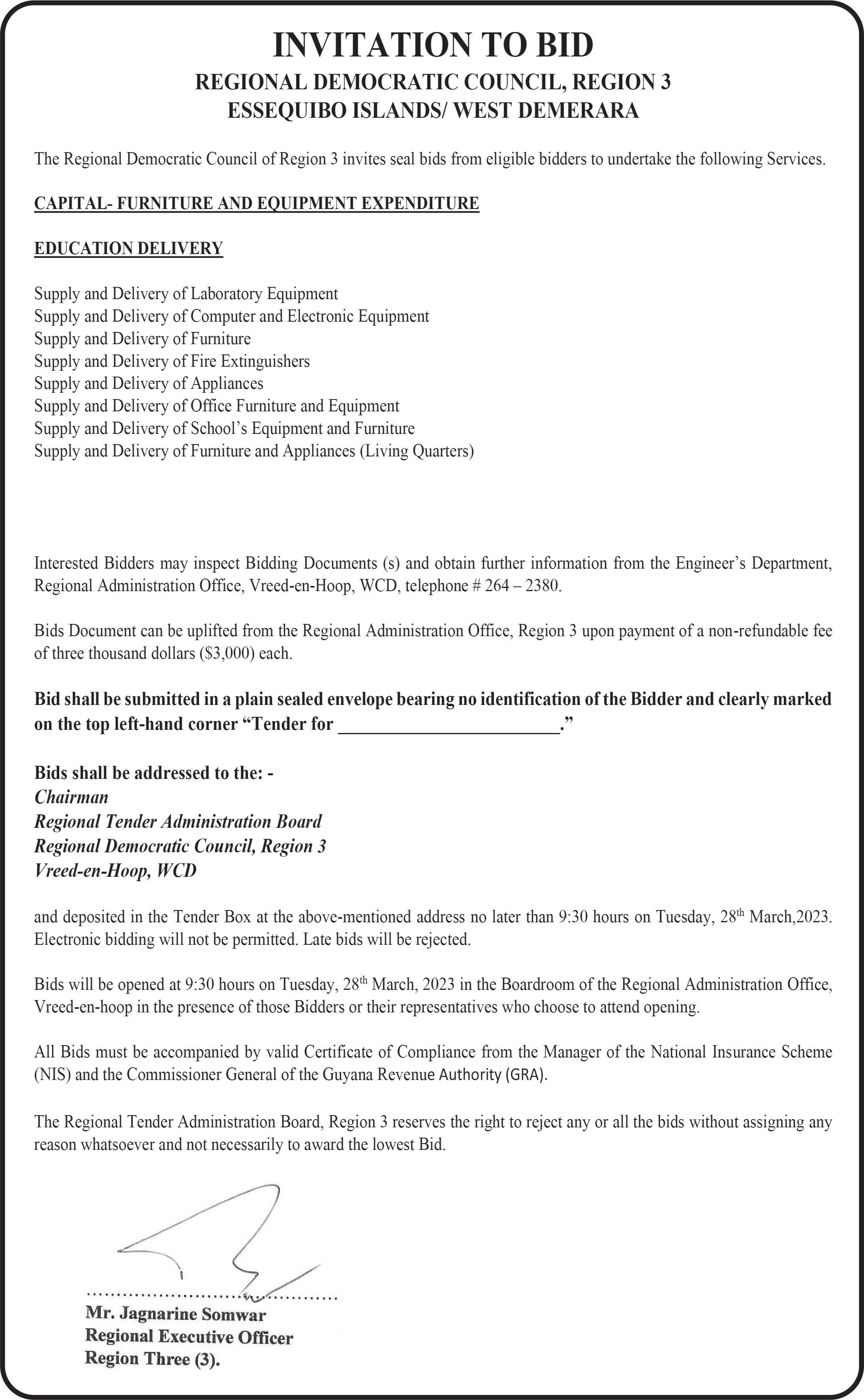
You can share your ideas and questions by sending letters to: “Our Earth, Our Environment”, C/O Communications Department, Environmental Protection Agency, Ganges Street, Sophia, GEORGETOWN, or email us at: eit.epaguyana@gmail.com. Follow us on Facebook and Instagram and subscribe to our YouTube channel.
FROM PAGE XIII



marriage, where he settled to start a family.
“As a young man who was now starting out life with a wife, I didn’t want to live with family, so I decided to go and occupy a plot of land in Cinderella city, which was overrun by big trees and a lot of bushes and it had only a small track to walk,” he said.
He tied the knot in 1981, had a small cottage, and later relocated to another section of the village where he now resides.
Webster was a Constable with the security section of
the Linden mayor and Town Council. He moved on and became an insurance agent, also called a “life under-writer” after which he was a vendor selling vegetables and ground provisions and all groceries except salted goods.
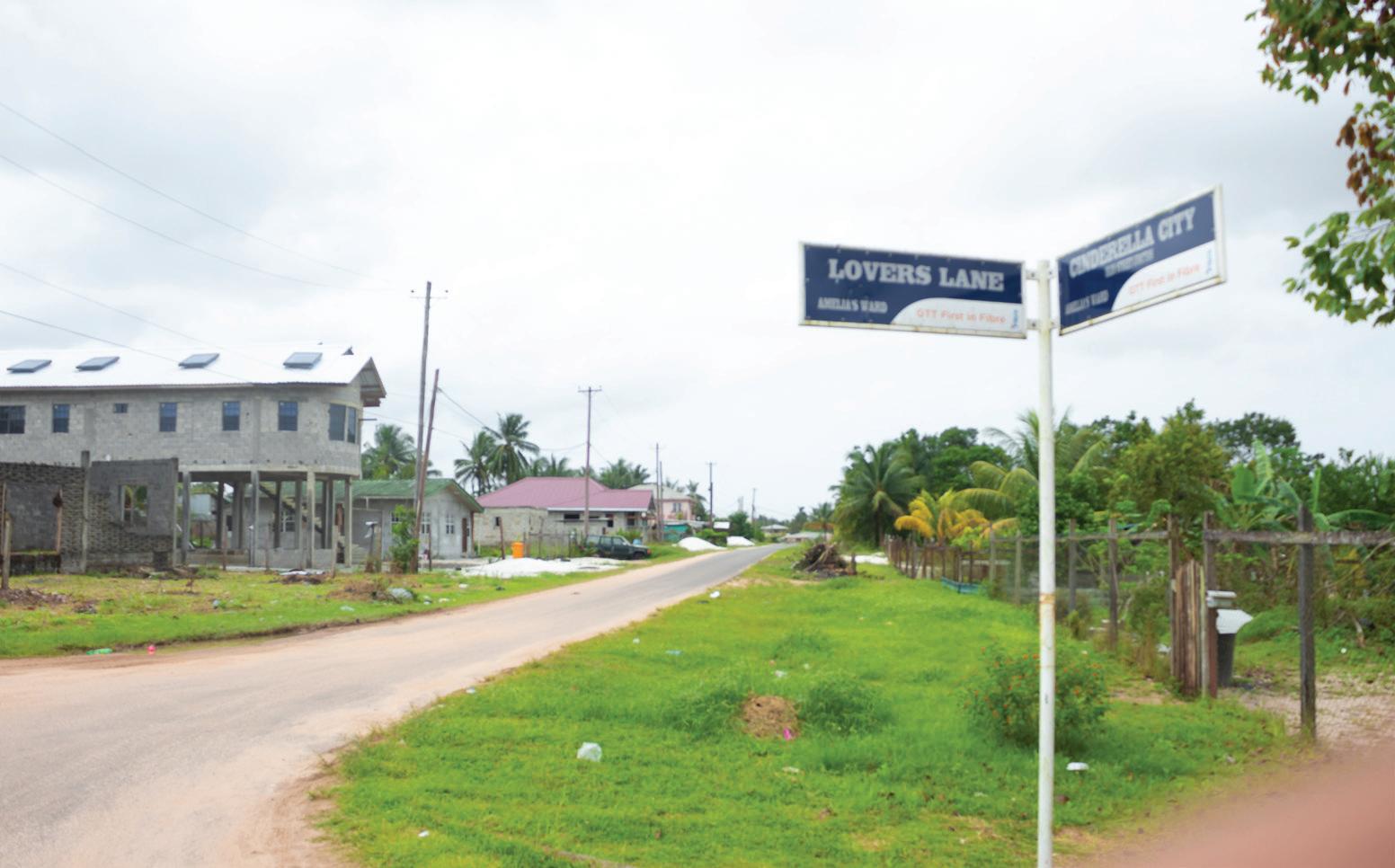
He told the Pepperpot Magazine that in 2015 he decided to call it quits and it was time for him to become an entrepreneur and start his own small business from home.
Webster became a selfstyled poultry farmer after 30 years of working with the
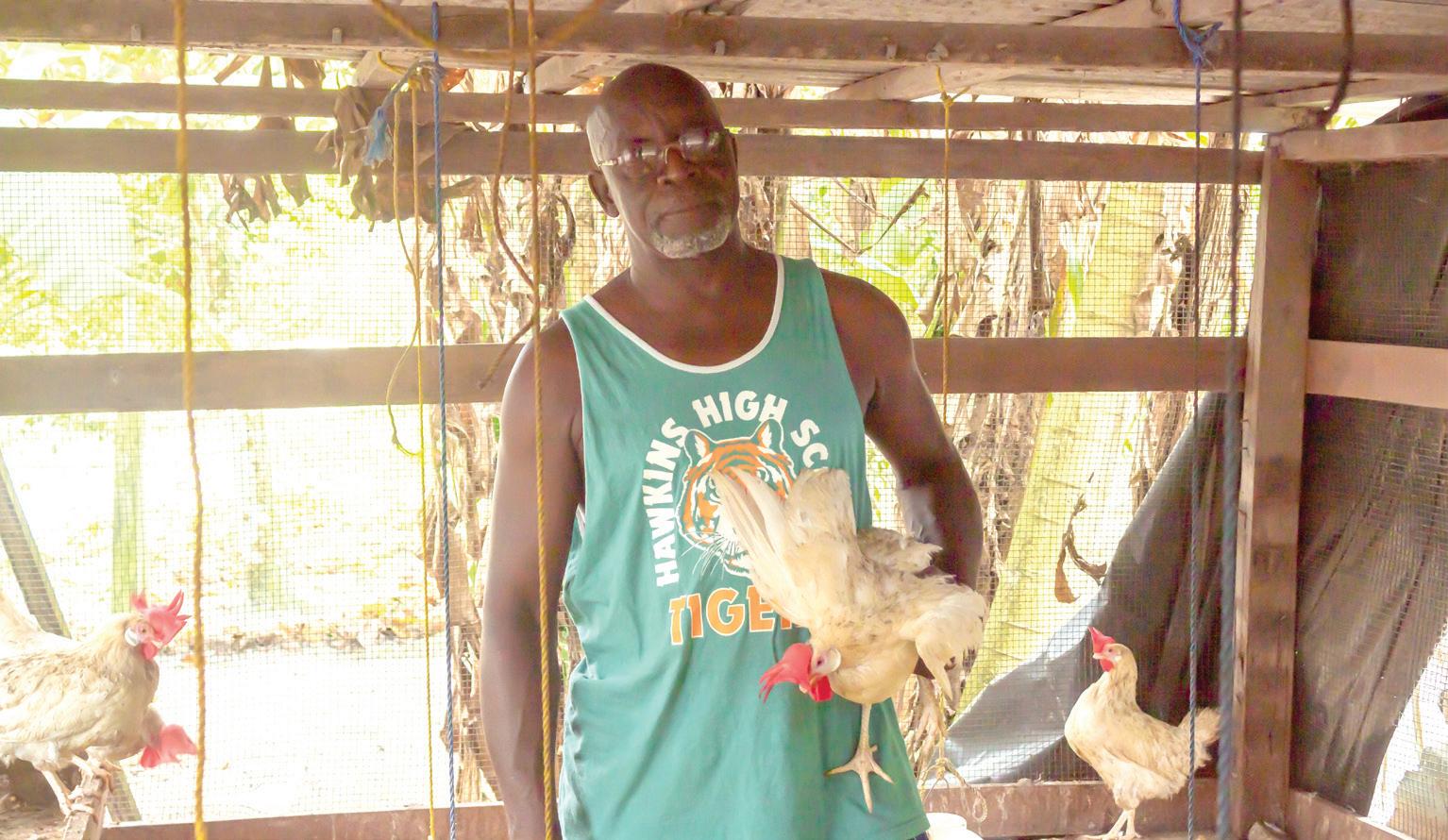
private and public sectors.

He used to rear pigs at first and then tried his hands at meat birds, which was a viable income garner.
Webster became disciplined and started his routine of feeding his chickens on time, between 07:00hrs to 08:00hrs and in the afternoons.
The poultry farmer would ensure his chickens have been administered their vitamins and medications for maximum production of eggs which would last for two years.
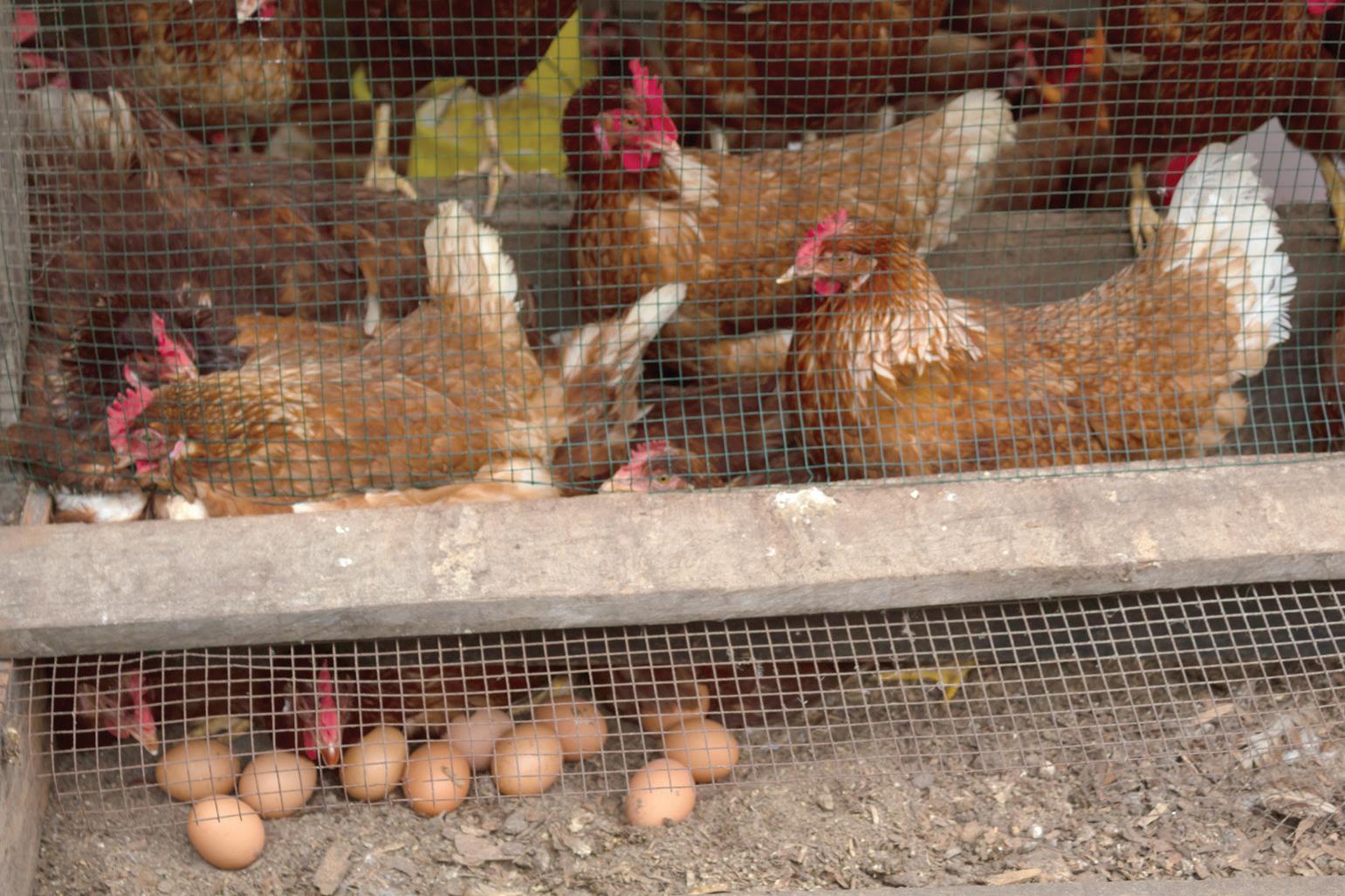
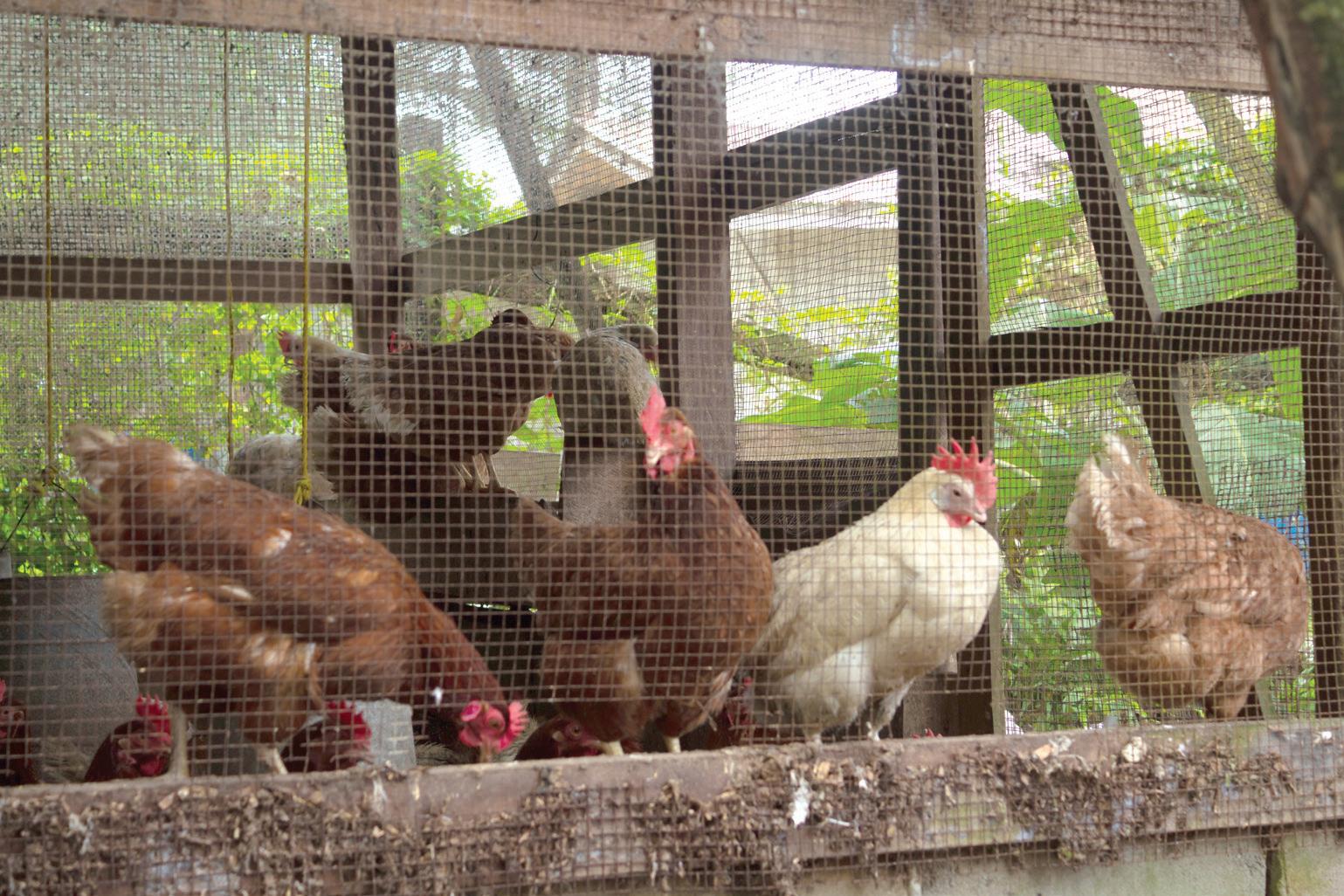

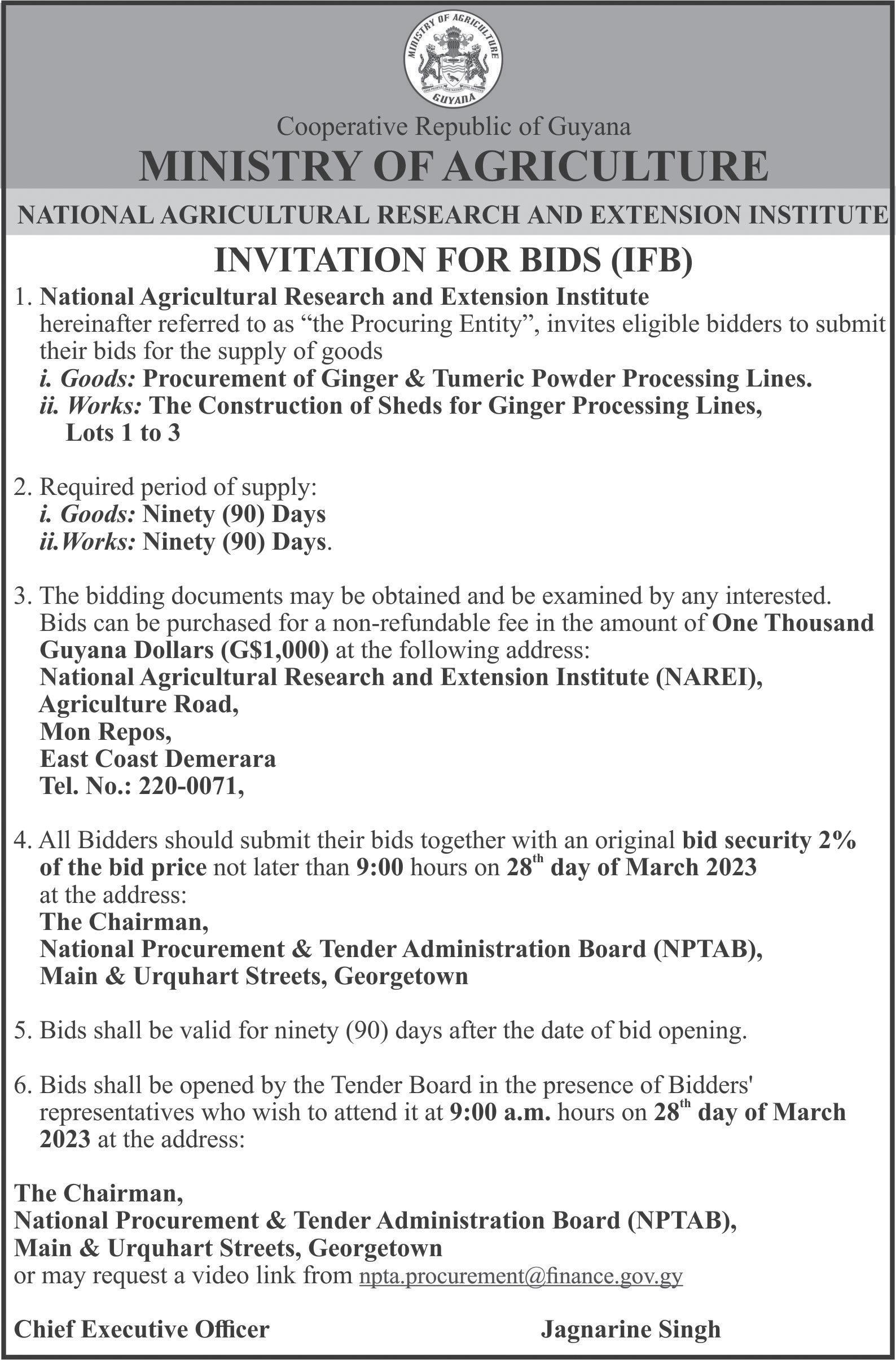


local and overseas patients.

He pointed out that they have had a lot of overseas patients, who keep returning for the service, which is quite pleasing.
Dr. Outridge has a suite on the top floor of the three-storey building, which houses the hospital that provides in-patient service and accommodation in Central Amelia’s Ward, Linden.

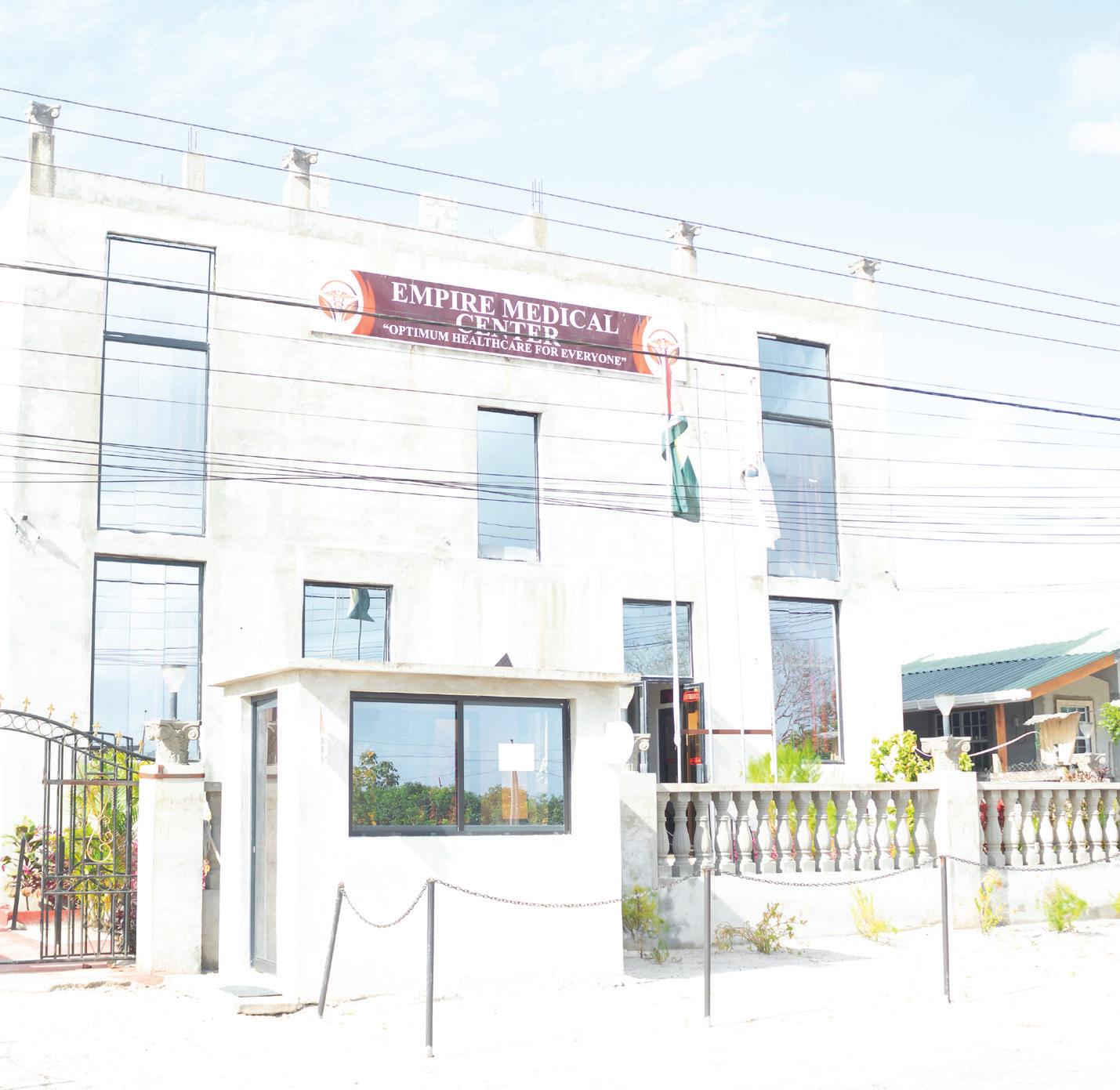
He is fluent in five languages and on June 7, 2021, he opened the Empire Medical Centre Inc. with just two rooms and a waiting area.

The physical building is only 70 percent completed and they have since met the requirements to become a full-fledged hospital offering various services.
Since establishing the hospital, Dr. Outridge reported that he hasn’t had a day off in two years and still has his eyes set on furthering his studies in Russia.

INTERNATIONAL Women’s Day (IWD) was celebrated last week. The global celebrations focused on innovation and technology as means of helping countries to achieve gender equality.
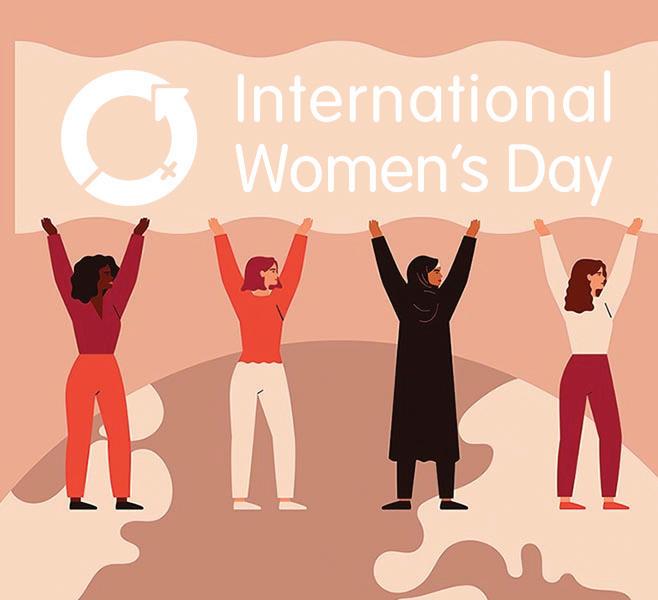
It is believed that focusing on innovation and technology helps to increase access to educational opportunities and allow women to access career opportunities that, perhaps, were previously unavailable to them. It is also believed that technology can facilitate more flexible work arrangements better suited to women (though this inherently speaks to women’s other- often unpaid- responsibilities).
Indeed, innovation and technology can be viewed as tools to help empower women and enhance their participation in economic life, but this is just one of the numerous matters that must be addressed to generate greater levels of
As the IWD message from the Secretary-General of the Caribbean Community (CARICOM) Dr. Carla Barnett, reminded me, women and girls (especially those living in developing countries like states in the Caribbean) grapple with issues of inequality in many spheres.
“... we must not lose sight of the many issues that stand in the way of achieving women’s equality, such as women’s political participation, unpaid care and domestic work, impact of climate change, and gender-based violence, which is a public health crisis in the Region,” Dr. Barnett said in her statement.
First, I think we should all be able to appreciate that issues are intersectional. Individuals and groups are affected by overlapping issues that affect them in varying, often increasingly disadvantageous, ways.
If we look at just one issue, violence against women and girls, there are overlapping factors to consider. Those include gender inequality, gender discrimination and an overarching system of patriarchy. Race and class are other factors that can contribute to violence against women.
Based on official figures, violence against women and girls in the Caribbean is a major concern. The SG further noted that one in three women has experienced physical and/
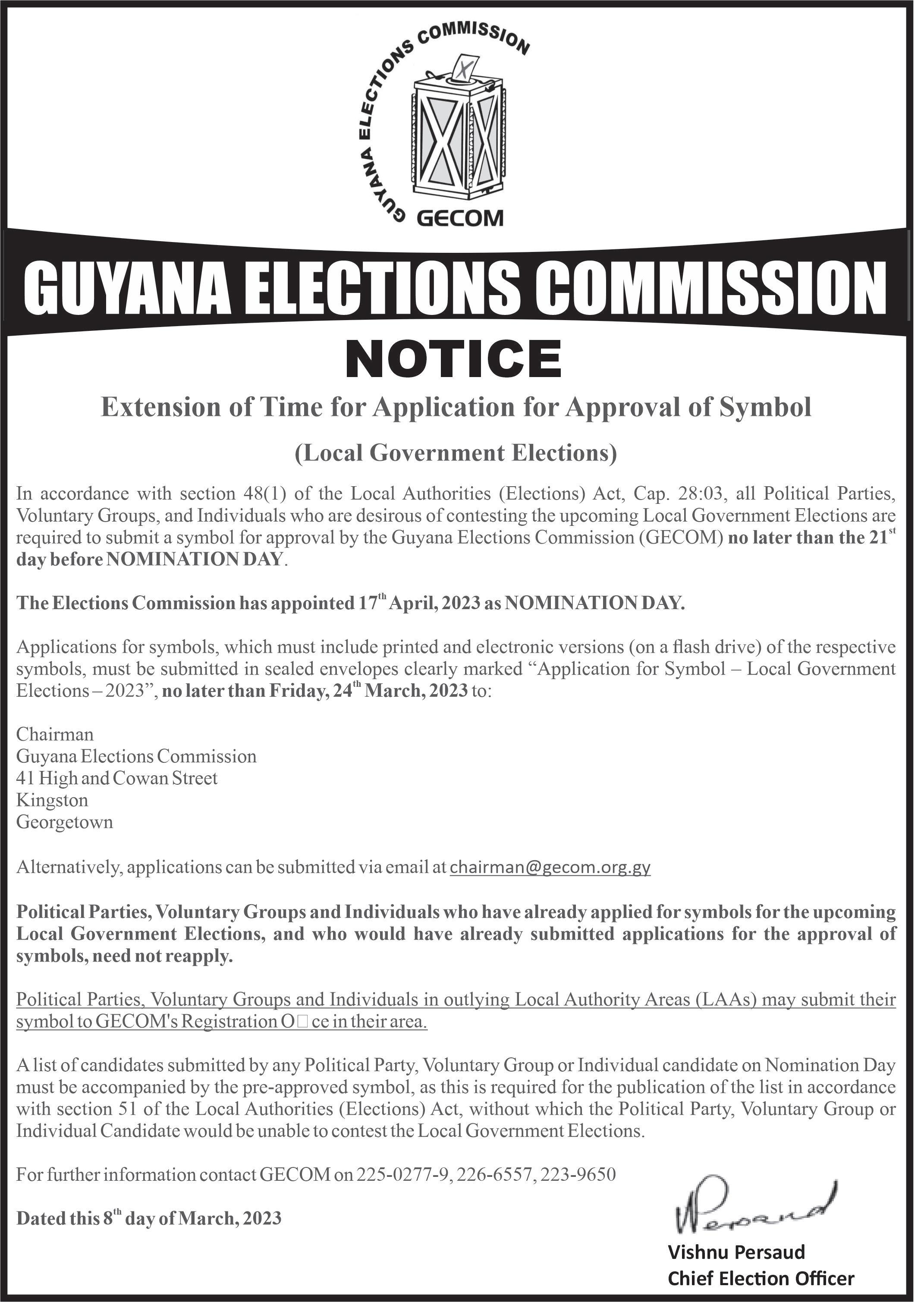
or sexual violence at some point in her lifetime, usually from an intimate partner, based on the global average.
She said prevalence surveys conducted between 2016 and 2018 in five Member States in the Caribbean region indicate incidence rates as high as one in two. Though I am unclear if she was referencing Guyana as one of those Member states, I know that in Guyana, it was found that every one in two women experiences violence.
Statistics help to easily describe how prevalent an issue is, but behind every statistic, is a woman who experiences violence. And doing right by each woman should be crucial.
What’s needed is an interrogation of what structures and norms continue to perpetuate or facilitate those factors that contribute to violence against women. That means recognising where prejudice, discrimination and inherent inequalities exist.


It also means addressing archaic laws and practices that are just not helpful, even if they aren’t enforced. And it requires new laws to provide better support to women and girls.
There are other things that are necessary. Education, for example, helps people to understand their rights and how they can access support. It also helps to empower women by supporting their agency. There is also economic empowerment which helps with achieving financial independence and poverty alleviation. In all of this, community support is fundamental.
Of course, it is super easy to acknowledge that focus on each area is necessary, but it is a much taller task to interrogate what exists, correct shortcomings and facilitate empowerment.
If you would like to discuss this column or any of my previous writings, please feel free to contact me via email: vish14ragobeer@gmail.com

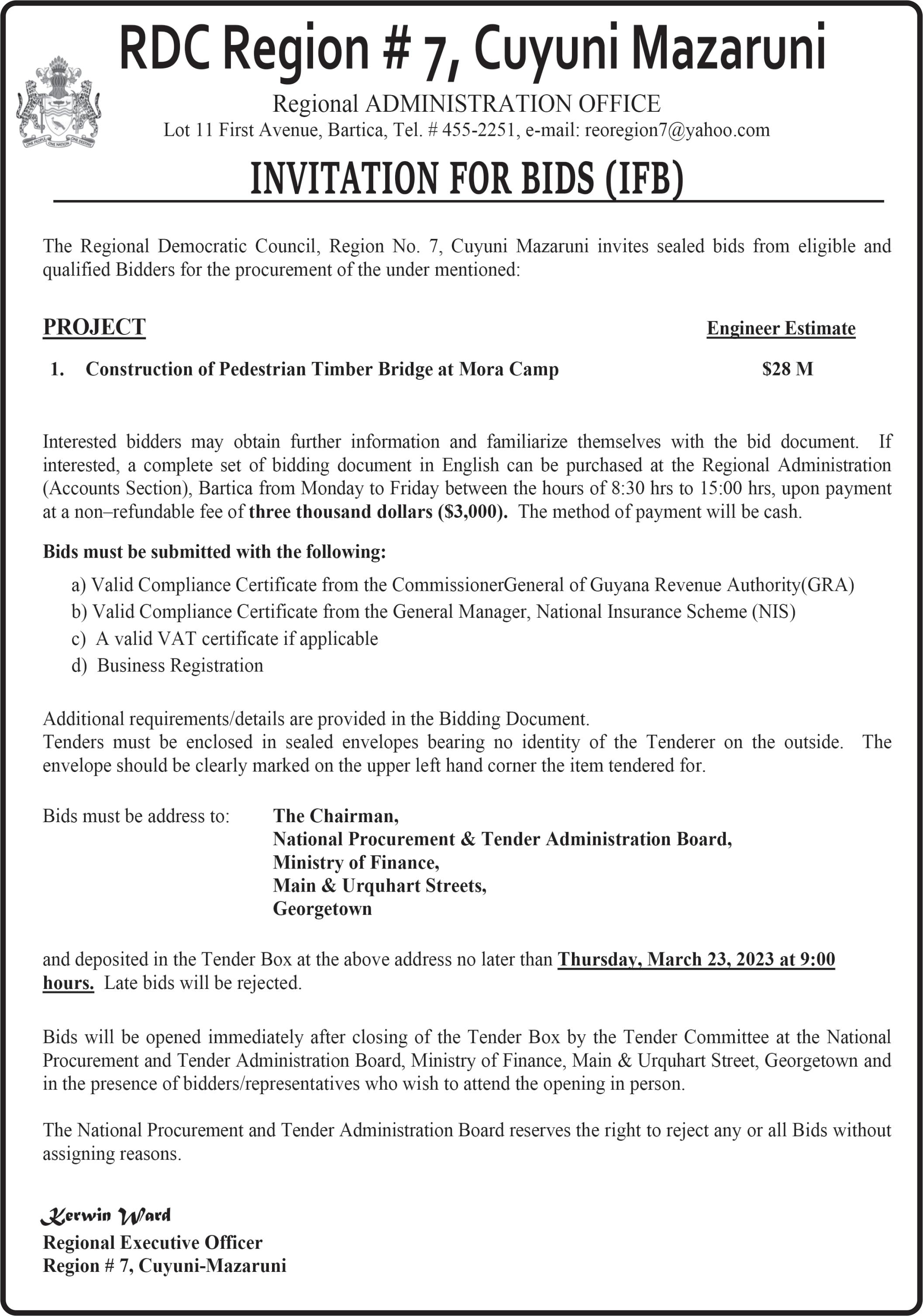
Many of his relatives, friends and former colleagues were overjoyed when Boston-based Guyanese, Hubert Williams, returned to Guyana for a visit after some years away. The reason being, Hubert is a person who can be described as very professional, verymuch travelled. He is a journalist of the highest standard, who, though away, still has Guyana close to his heart. Hubert also did a fair amount of travelling around his native land.
Before he migrated, he was one of the most revered jour-
nalists in the country and had a great following of dedicated readers of his articles and reports in the print media. After he migrated to Barbados, he had no plans to ever return to his native land. But that changed in a profound way. He travelled to Guyana for the funeral of his friend and colleague, Fr. Harold Wong, SJ. That’s not that long ago, it might be argued, but Hubert is very much a travelling person, and coming to Guyana this time aroundwas a happier one, and which needed some amount of planning. He was coming as
a tourist, one might say.
It was not a difficult decision for him to make. However, this recent return to the land of his birth was a joy both for him and those with whom he interacted. His first comment was about the Cheddi Jagan International Airport. “I thought it very superior to others in the Region,” he said. That statement is from a person who has had wide and regular travels all around the CARICOM Region and
Boston-based veteran Guyanese Journalist, Hubert Williams, enjoys a moment of light-hearted interaction with a youngster while on his recent visit to his homeland, Guyana

Hubert Williams has also worked and resided in Barbados for protracted periods for over four decadesof his professional life. As one of the great journalists of the Caribbean, he always receives a warm welcome wherever he goes. His being here in Guyana just recently was a geographical reawaking of sorts for Hubert Williams. “The journey from the Cheddi Jagan International Airport seemed like an eternity before reaching my former residence in Georgetown,” he said and reflected on the fact that Guyana is 500 times the size of Barbados.
He was very active while in Guyana and journeyed to several locations and communities away from Georgetown. “I went around, interacted with strangers,” he said and also enjoyed the sight of so many city and rural landmarks, such as the lighthouse and our famous Georgetown Seawalls.

While Hubert Williams is getting on in age, I can readily predict that this will not be his last visit to his homeland since there was so much joy in his being here. There was even dancing and laughter.


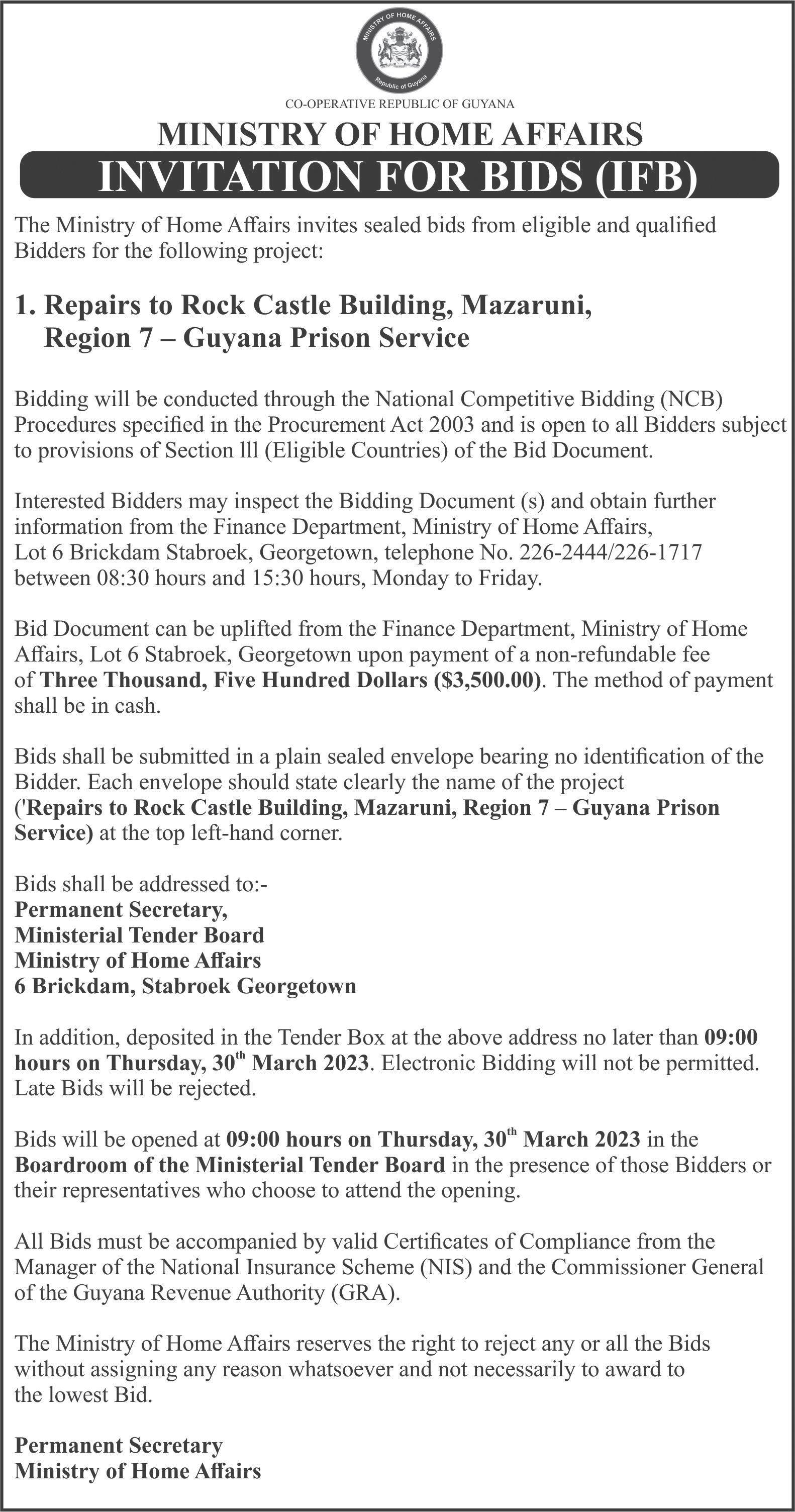



BECAUSE germs are so abundant under the gums and are so intermingled with sloughed-off epithelial cells from the gingival tissue wall of the sulcus, it is important to do what we can to keep this toxic mixture to a minimum. This will consequently reduce the chances of early-stage gum infections (gingivitis) or the more advanced stages of infection and destruction associated with periodontal disease (gum disease). Properly done, flossing can be very effective at dislodging accumulated plaque and cellular debris from the spaces between the teeth, allowing this plaque to be ultimately removed from the mouth, usually by expectoration (spitting it out).
Flossing delivers several important health-maintenance benefits. Since microorganisms (germs), both living and dead, build up between contacts where the teeth touch each other, flossing is important for reducing the possibility and inci-

dence of cavities between the teeth (“interproximal decay” in dentistry terms). Microorganisms at the contacts can process the foods we eat, such as carbohydrates and starches, and in this processing, can produce acids that dissolve enamel. So for those who are susceptible to these types of cavities, flossing is exceedingly important in helping to keep decay between the teeth under control. Additionally, for those who have had their fillings, or other types of dental restorations on tooth structure lost to decay between the teeth, it is imperative to effectively and frequently cleanse the surfaces between the teeth to reduce the incidence of new decay in these areas.
How do we floss properly? The first step is to choose a brand and type of floss that works for you, one you can and will use. There is a confusing array of waxed and unwaxed flosses, dental tape (wider than floss and easier on the fingers for those with tight contacts), flavoured flosses, and even floss in a handheld device that allows flossing to be done with one hand. Although dentists and hygienists have been known to draw swords over the relative merits of waxed versus unwaxed floss, the best floss is ultimately the one you will use daily. Start trying out various flosses until you find one you like. Do whatever self-motivation it takes to include flossing as an everyday component of your oral-cleansing activities. I’m sure I’d approve of your choice.
Besides all the health benefits of flossing, one further motivator could be that flossing makes breathing fresher. Fresh breath is difficult to achieve when loads of necrotic, stinking plaque are left under the gums and between the teeth for long periods. Since patients with bad breath seldom smell their halitosis, they may not even be aware their breath is
SEE PAGE XXXV


IN my experience, I’ve hardly ever seen or heard people mention the concept of eating disorders as a mental illness in Guyana. It’s either you eat too much, so you’re glutenous, or you eat too little, and you’re picky. Eating disorders have been recognised by the DSM (Diagnostic and Statistical Manual of Mental Disorders) since the 1980s. Right now, there are eight categories of feeding and eating disorders—Pica, Rumination Disorder, Bulimia Nervosa (BN), Anorexia Nervosa (AN), Avoidant/Restrictive Food Intake Disorder (ARFID), Binge Eating Disorder (BED), Other Specified Feeding or Eating Disorder (OSFED) and Unspecified Feeding or Eating Disorder (UFED).
Anorexia Nervosa is when someone tries to control their weight by not eating enough food or/and exercising too much. Bulimia is when someone loses control of their food intake and then takes drastic action to avoid excessive weight. Binge Eating Disorder is when someone eats large quantities of food until they feel uncomfortably full. Other Specified Feeding or Eating Disorder is when someone’s symptoms do not fit into a specified category of eating disorder, yet their eating patterns still disrupt their everyday lives. Avoidant/ Restrictive Food Intake Disorder is when someone avoids
nutrition in their body. In severe cases, the person affected by it may even be treated for hallucinations or depressive thoughts because how they see their body or sense of self is not the reality. Eating disorders can develop throughout childhood. When that child takes those very eating patterns into their teenage years, parents may pass it off as another “phase”. For young girls especially, not eating enough may be deemed as a teenage girl just looking to maintain her bodily appearance and physique. Or, a child may be blamed for overeating when it is the parent’s responsibility to ensure that child receives the help they need. It is something that

can be treated from an early age to help improve the lives of those very children without them having to grow up believing something is wrong with them for having an untreated mental illness that is blamed on them.
If you or anyone you know develop eating patterns that make you drastically lose weight, eating very slowly or very quickly, avoiding eating with others, have extreme exercising habits or lying about their food portion sizes— then you should seek professional help or advice from a doctor or therapist.
specific foods and/or limits how much they eat. There are eight recognised categories and yet still so many persons in Guyana are suffering daily within these various categories. They are unaware of it because there is little to no awareness to educate people on it.

Eating disorders affect 9 percent of the world’s population. According to experts, a person can also experience more than one category of disorders at a time. One can also experience a shift in their disorder, from one to the next, over time. Eating disorders are mental health conditions. Eating disorders can disrupt your physical, social or psychological functioning. It’s not just something you need to “get over” or something one can recover with just a lifestyle change. It is not a choice of vanity, either. It is a mental illness that is caused by deep, underlying genetic and biopsychosocial factors that occurred during childhood. Anyone living with an eating disorder needs to receive care and treatment from multiple professionals, such as -- a therapist/counsellor, medical doctor and nutritionist or dietitian.
It goes beyond eating too much or too little. Someone who is thought to be overweight may have indications of physical health issues such as hypertension or diabetes. Whereas someone who is underweight may have a lack of






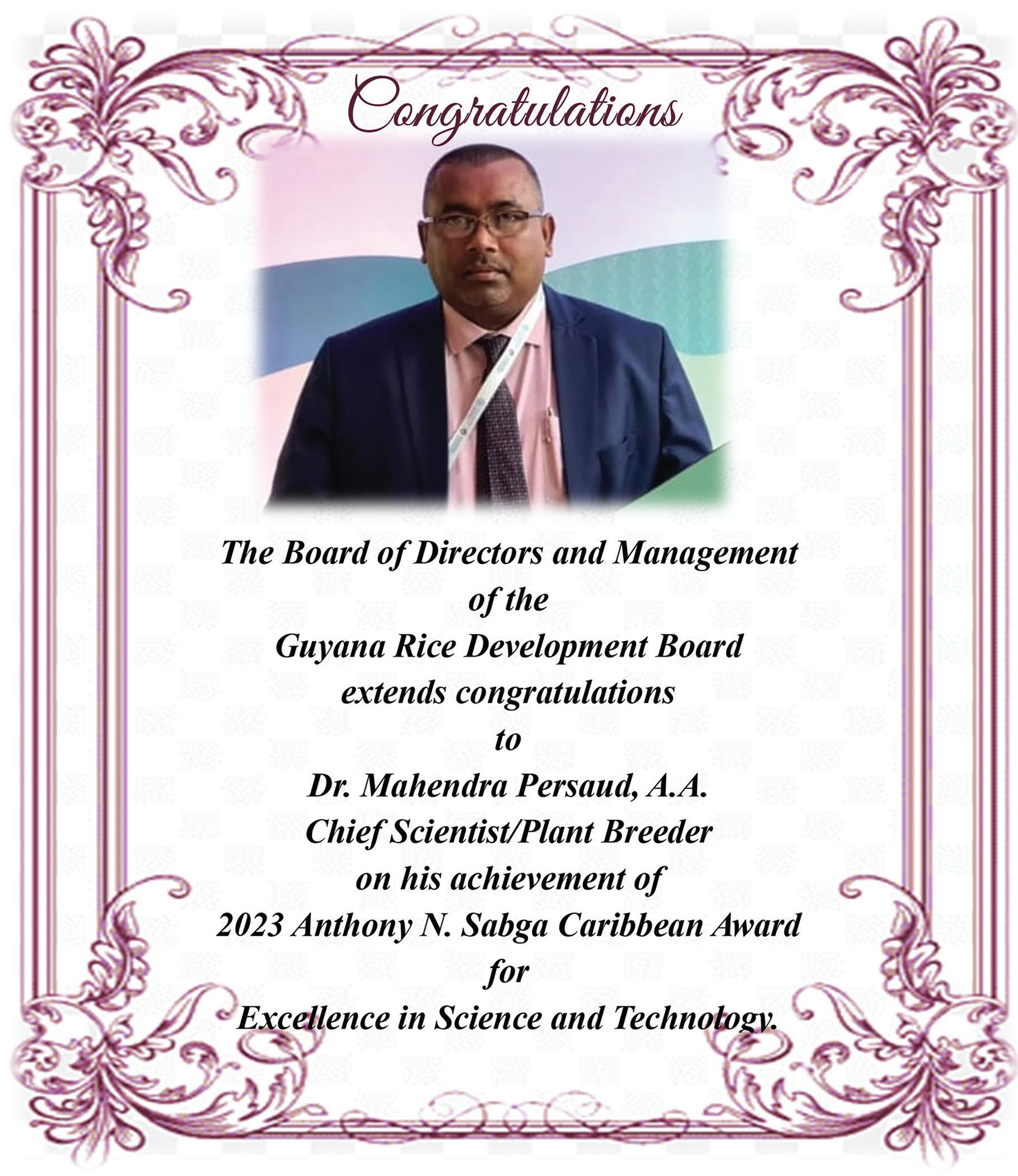


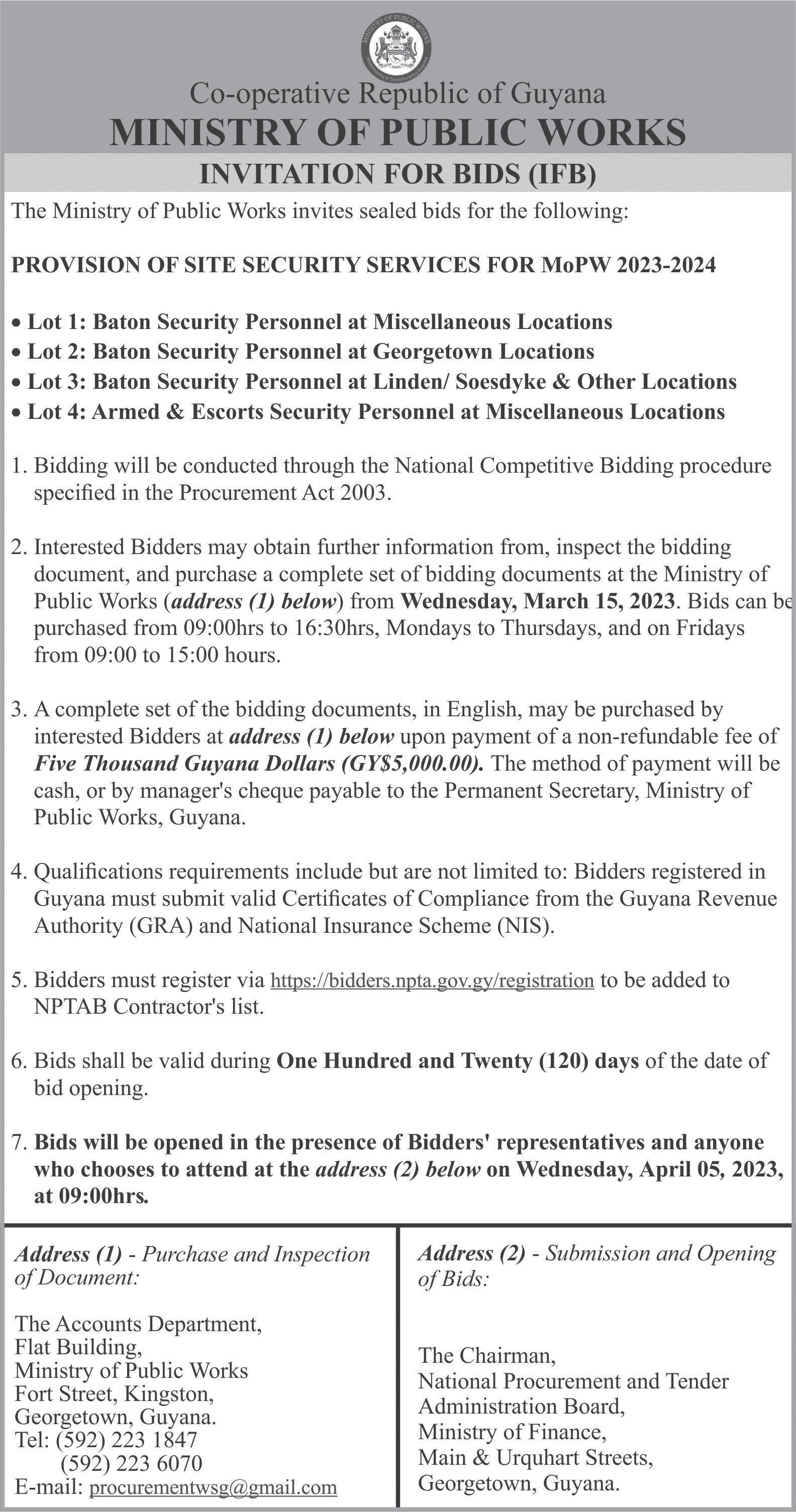




FROM PAGE XXVIII
offensive. A simple test to see if you have a problem is simply to floss, and then smell the floss. The odour, if present, will become worse as the plaque dries. One thing is for certain, flossing and fresh breath go hand in hand. If you floss and the material smells all right, you are on the right track. One has never had bad breath worsen by having a cleaner mouth.
If you still need encouragement to floss daily, consider this: the words floss and heart both have five letters. While this observation may seem silly, flossing can keep the inflammation caused by gum disease at lower, safer levels. So if you aren’t flossing for fresh breath and healthier gum tissue, or working to control your cavities and decay between your teeth, then floss for better heart health. Poor oral hygiene is associated with heart attacks.
How do you go about flossing safely, easily, and effectively? You’ve chosen your floss already, so the following is the same information I pass on to my patients. Hopefully, it will work for you. I instruct my patients to take a nine-inch section of floss and wind it around the middle fingers of each hand until the index fingers or the thumbs on each hand are close enough to touch. This allows the floss to be directed and controlled, by using both thumbs to direct the floss if flossing the upper teeth, by using both thumbs to direct the floss if flossing the upper teeth, or by using the index fingers when flossing the lower teeth (making sure to use only gentle
motions throughout the flossing).
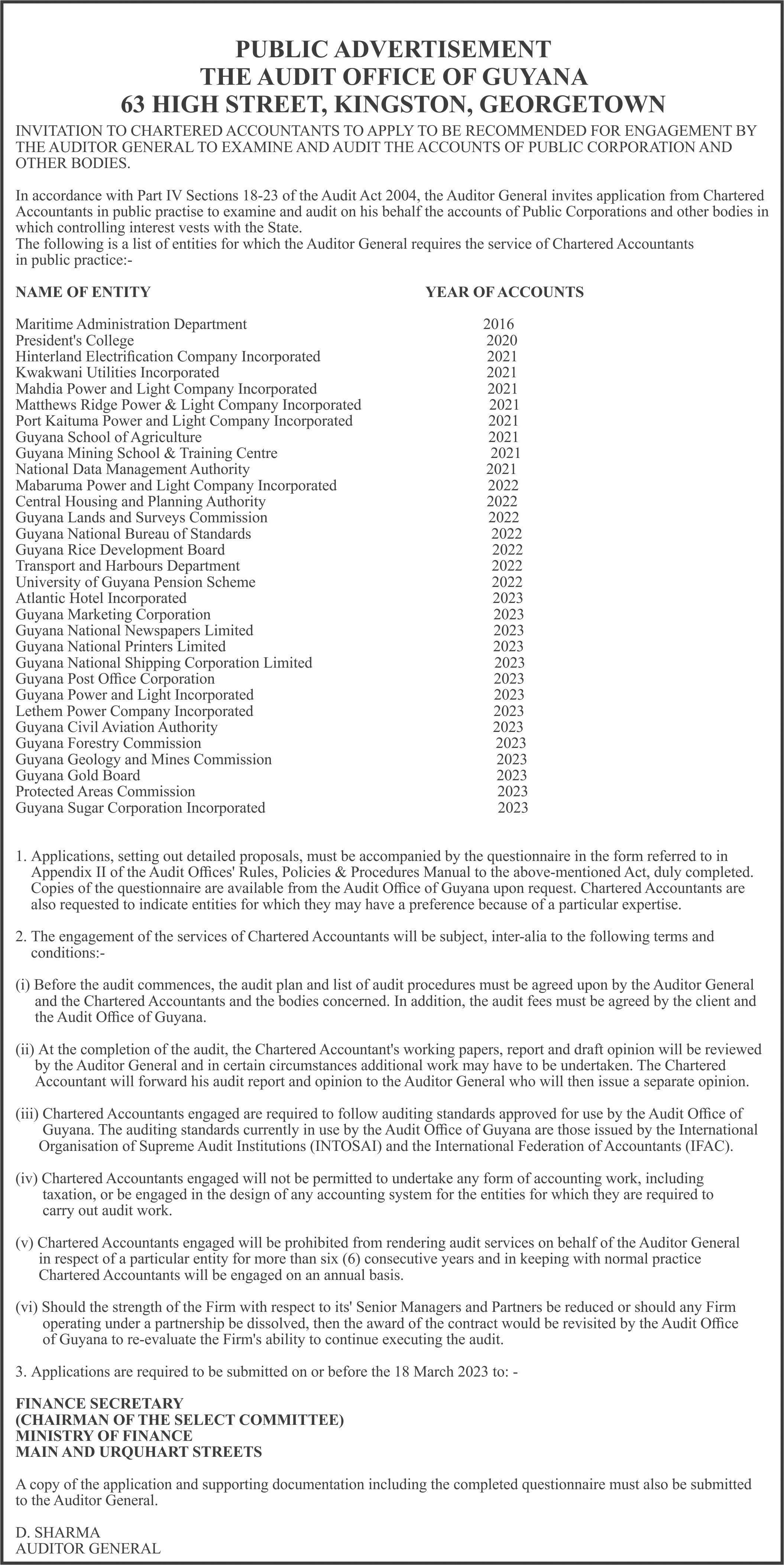
With one to two inches of floss in between, start by flossing the front of the last tooth on the upper right. Using a system, you won’t miss anything, and starting in the same place every time you floss, your flossing will become a habit. Keep the floss taut with your fingers and with your thumbs, direct it between your upper teeth, then guide it through the contact and scrub the front of the last tooth, up and down, with just a slight amount of rocking motion, until you feel the surface of the tooth is clean. You have just flossed the front of the tooth and cleansed the part of the sulcus at that tooth. The next step is to lift the floss over the gum tissue between the two teeth and floss the back of the next tooth, the one directly in front of the first one you flossed. Remove the floss from between the teeth and insert it into the next contact forward. Floss the front of one tooth and the back of the next tooth and move on to the next contact. Please remember you are not just cleaning the front of one tooth, but you are cleaning the back of the next one, as well as cleaning a bit of the sulcular debris from both sides of the gum tissue in between the teeth (the interdental papillae).

Then, move on to the lower teeth, again systematically flossing to ensure that no surfaces will be missed. You can floss effectively between the lower teeth by keeping the floss taut and directing it between the teeth using your index fingers. If the floss tears or frays from the effects of really tight contacts, rough fillings, or sharp edges between the teeth, just release one wind of floss from one middle finger and take up the slack by winding it onto the other middle finger.
Assuming you have a full complement of teeth, you can do a very effective job in about a minute and a half, so the potential reward in improved health will b a good enough reason to include flossing as an important part of your daily health maintenance regimen.




FROM PAGE X
cian, but financially, she could not pursue that career and decided to become a teacher until she could realise that dream.
The 27-year-old said she began assisting children in her village with their homework and became drawn to teaching.
Isaacs noted that she is a student at the University of
 Gen Isaacs, the young teacher
Gen Isaacs, the young teacher
Guyana (UG) reading for her Bachelor’s Degree in Education and, in the near future, she will become an eye doctor.


This young lady is optimistic about life and what it has to offer and will waste no opportunity in getting herself qualified.
“I am in charge of 17 small children and I enjoy it, playing my role as an educator and giving back to the community feels rewarding indeed,” she said.

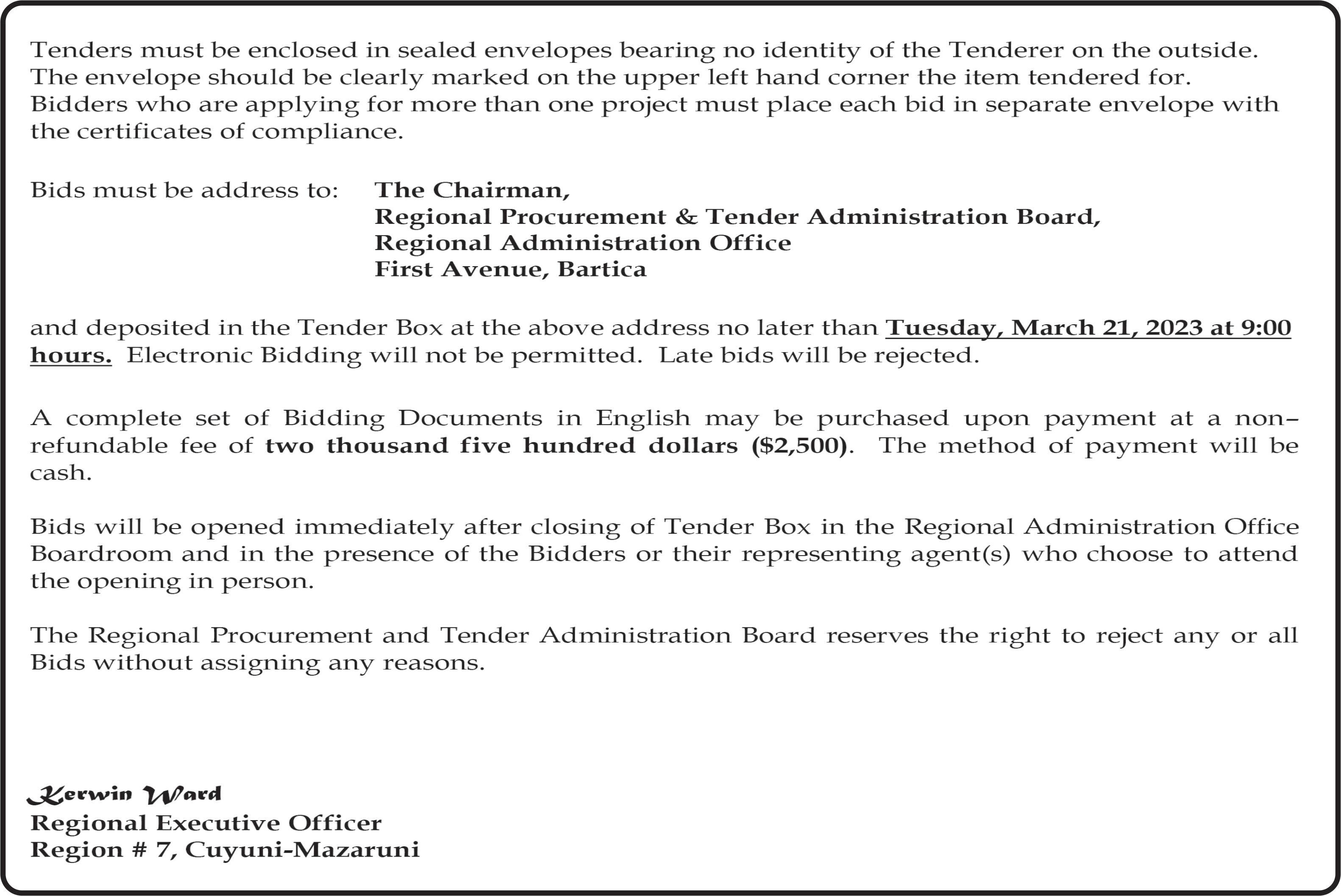



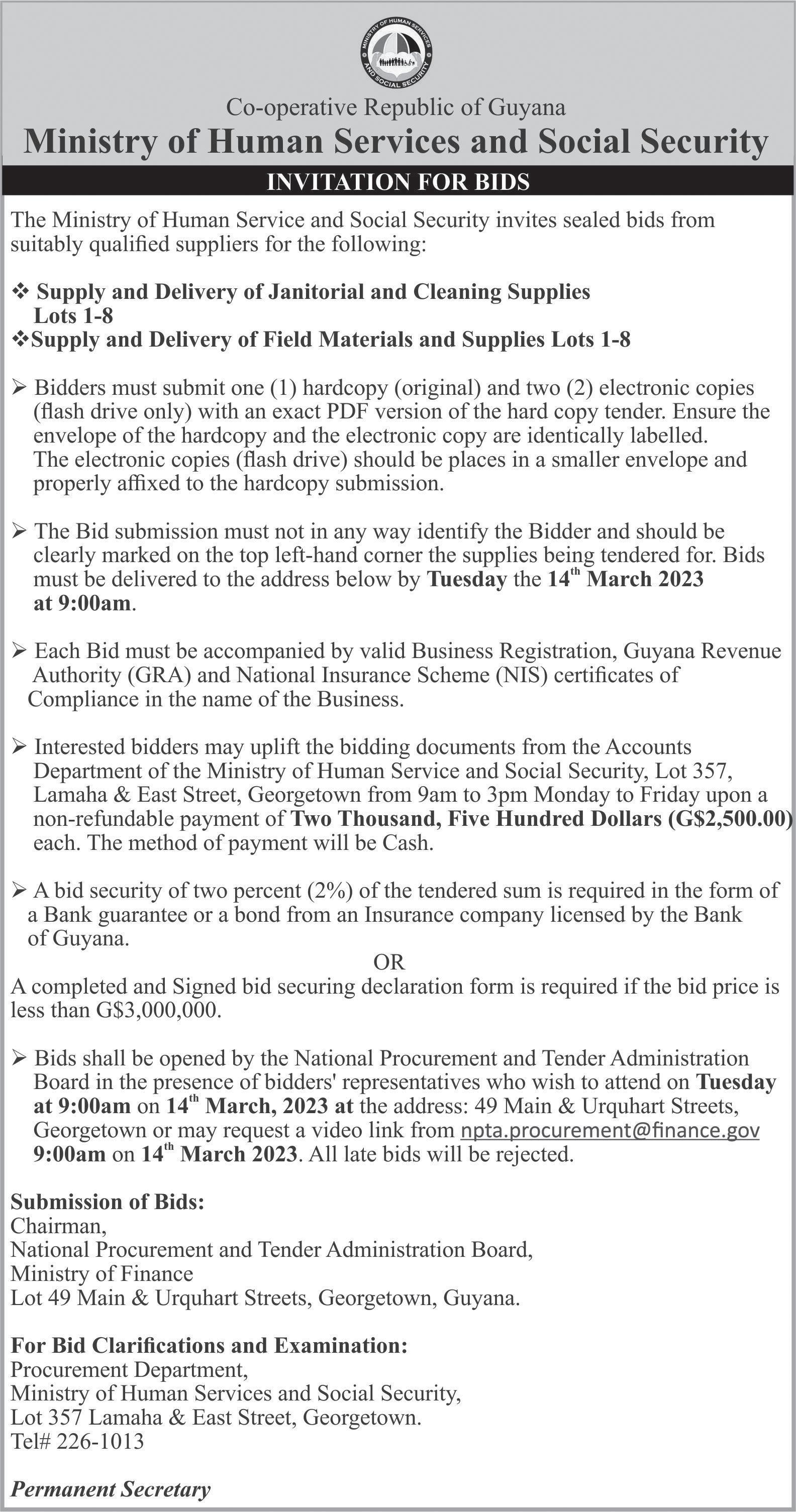






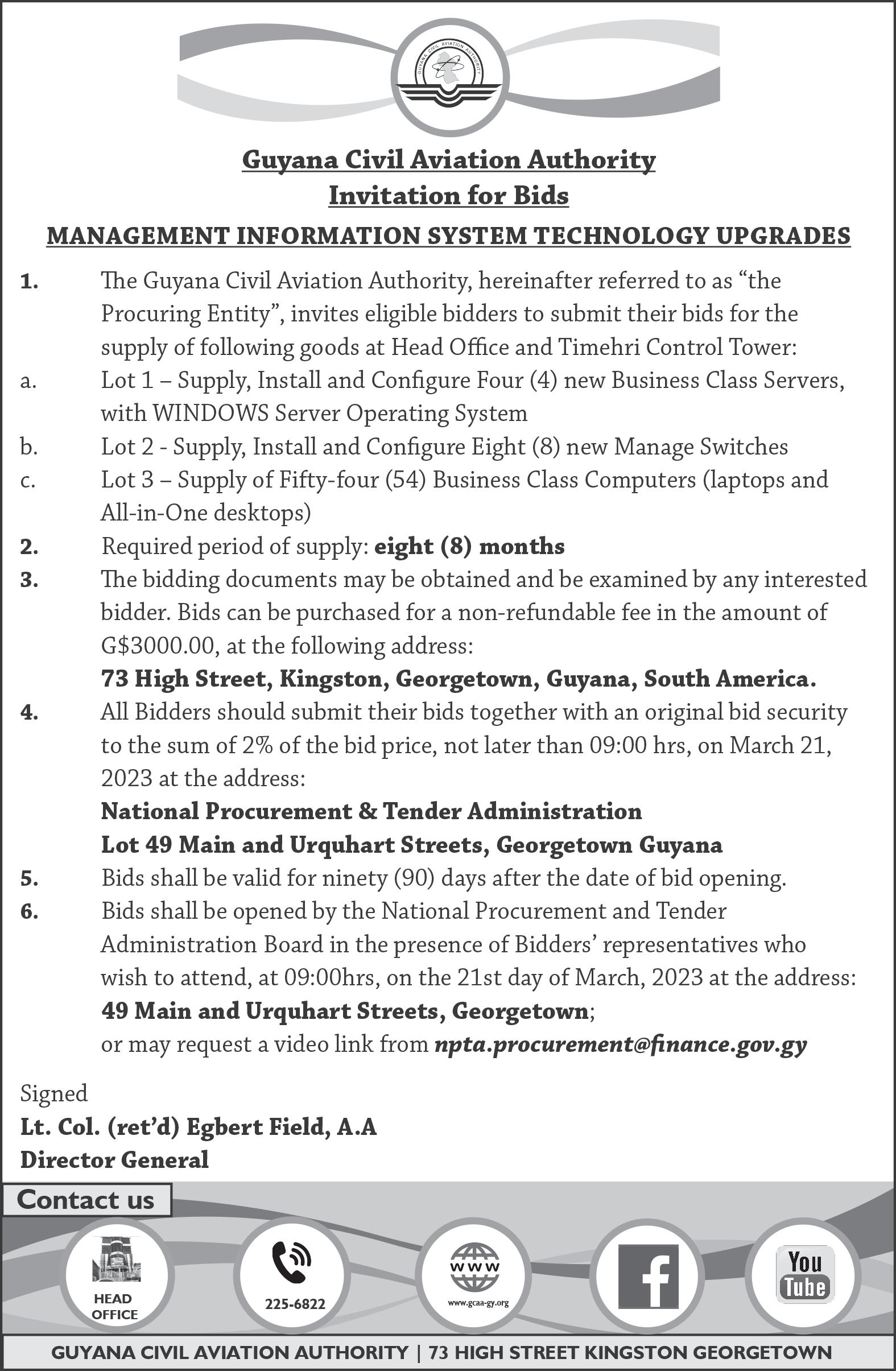


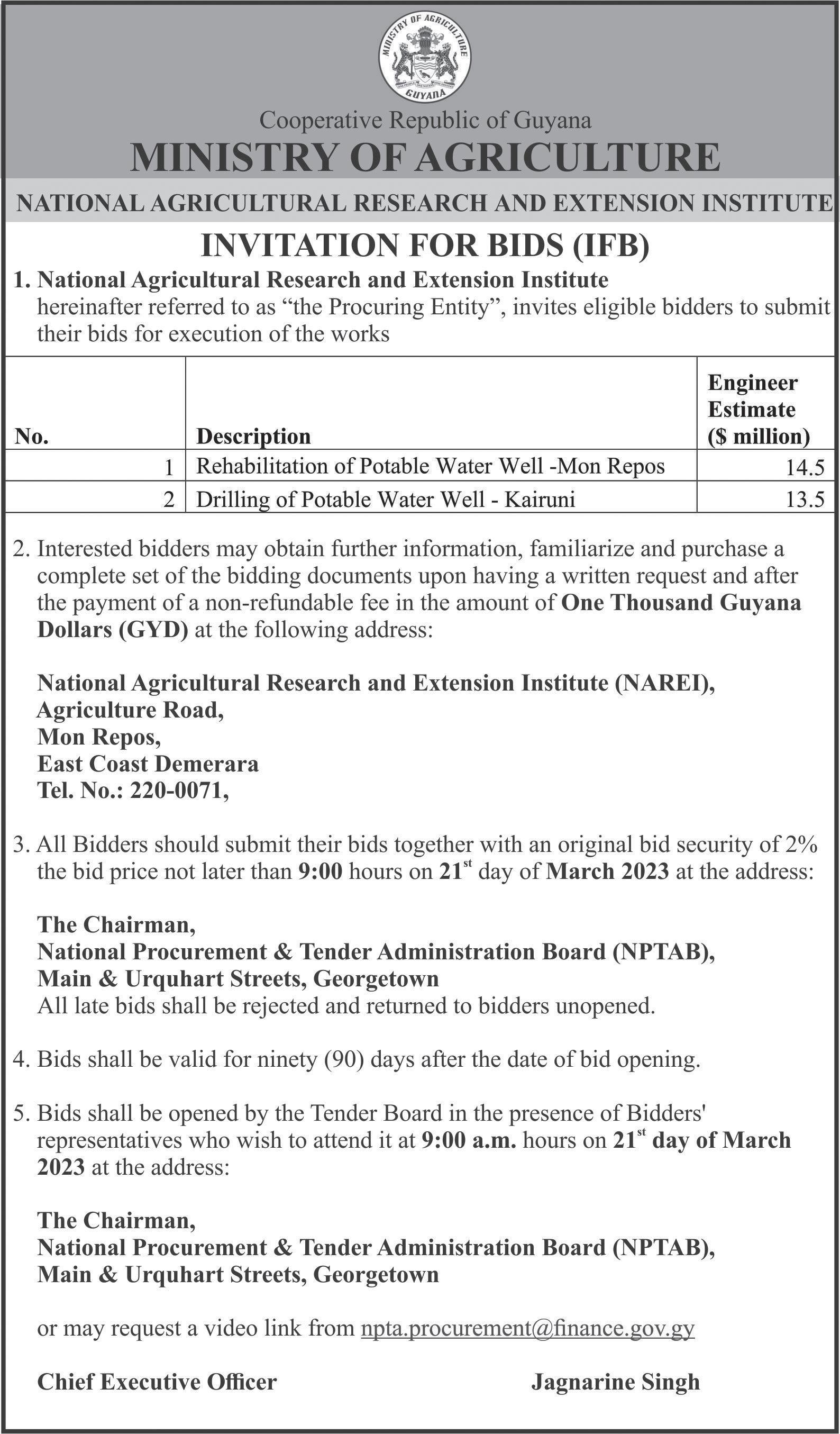















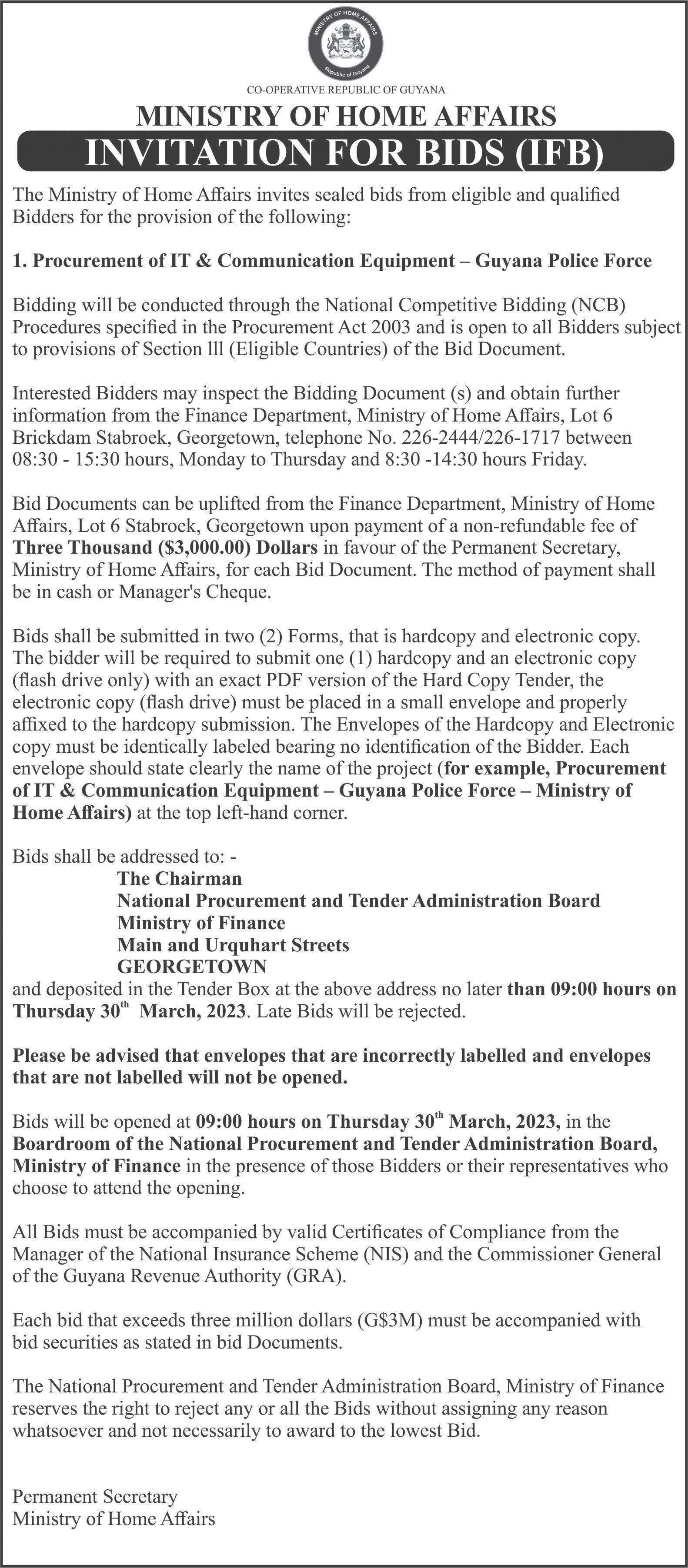

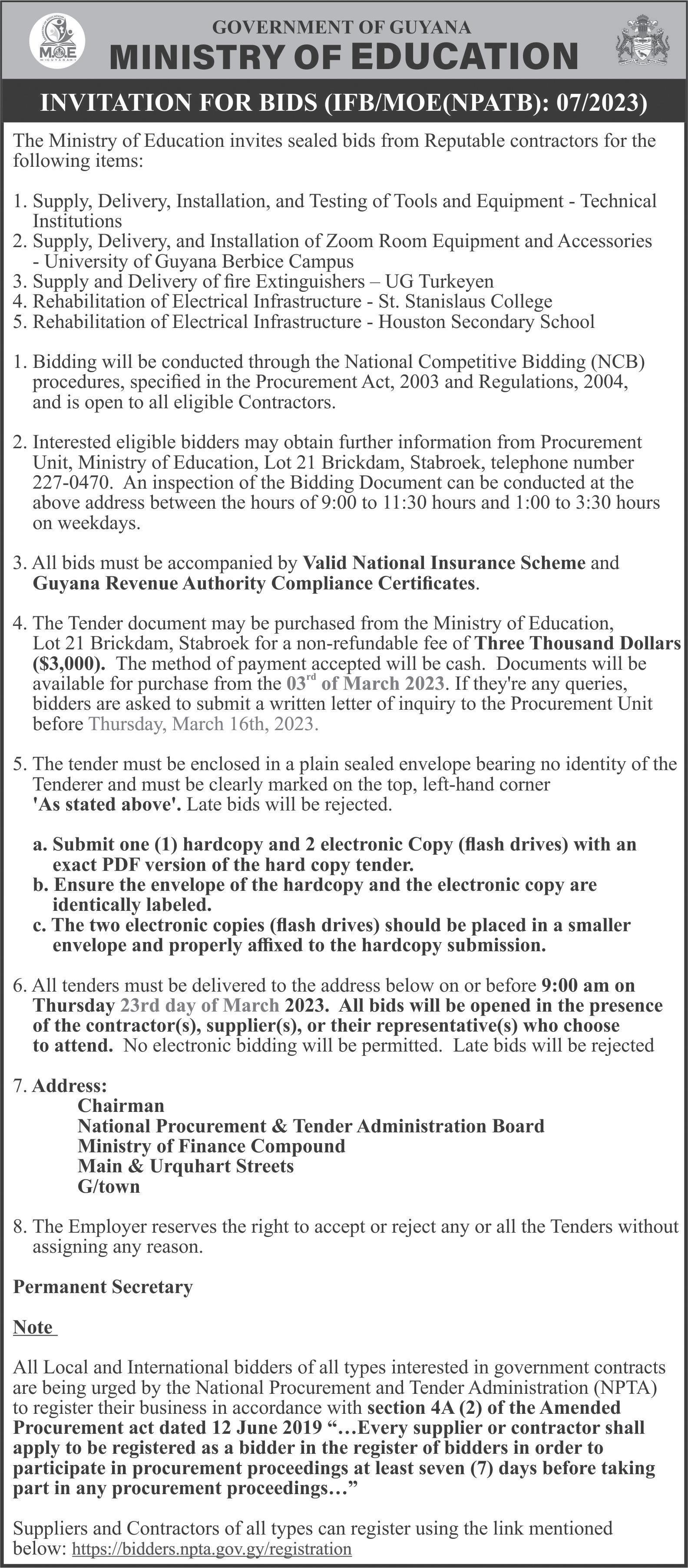
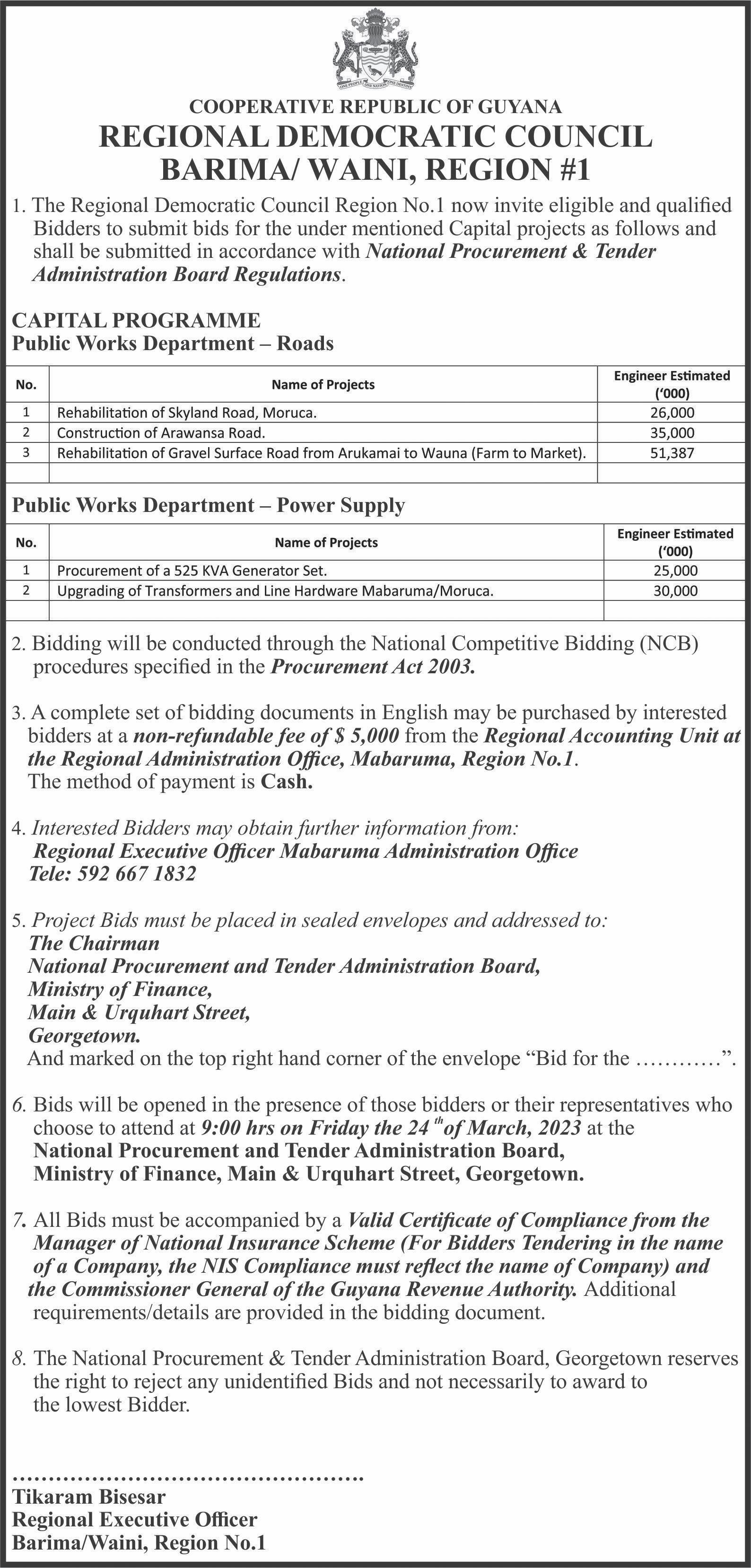
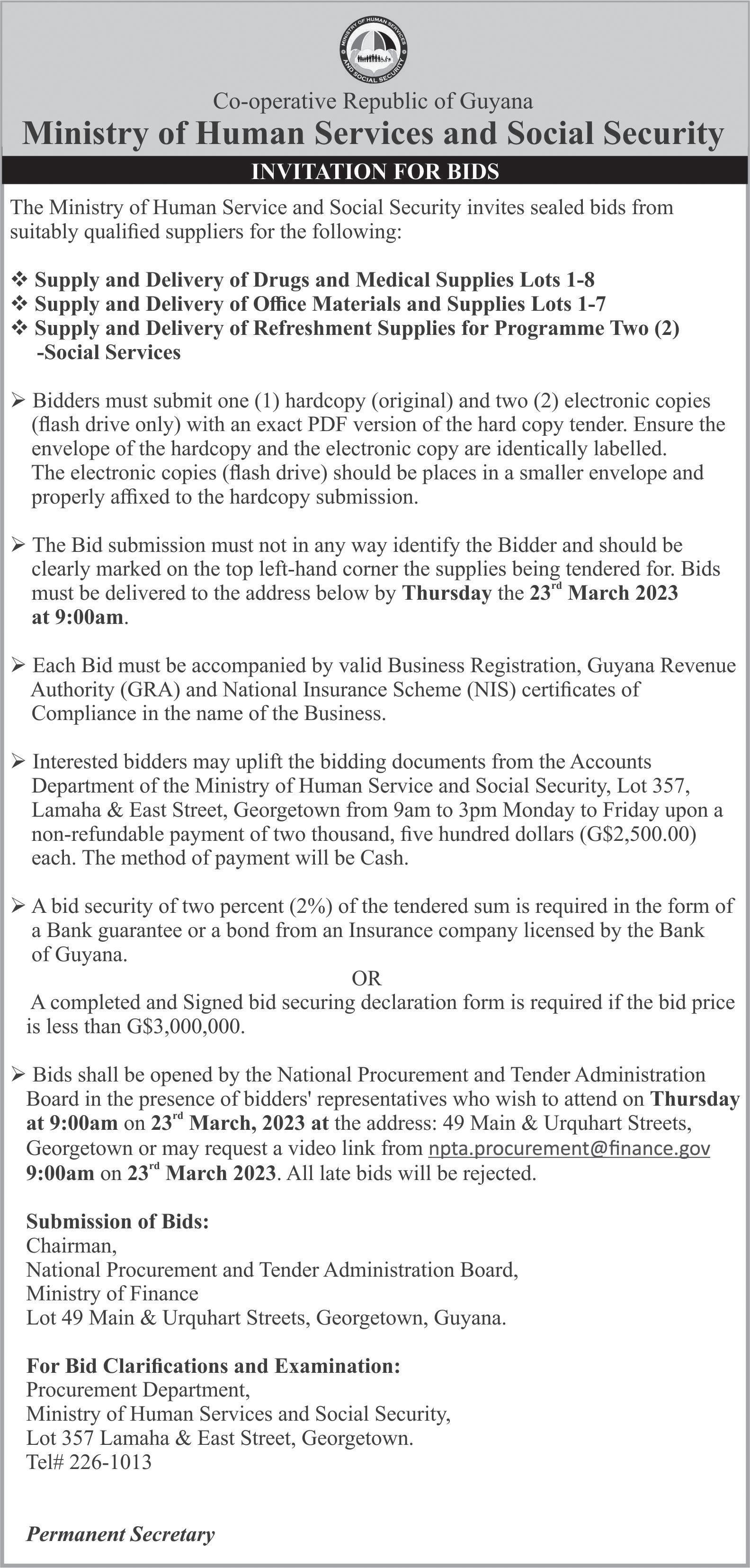


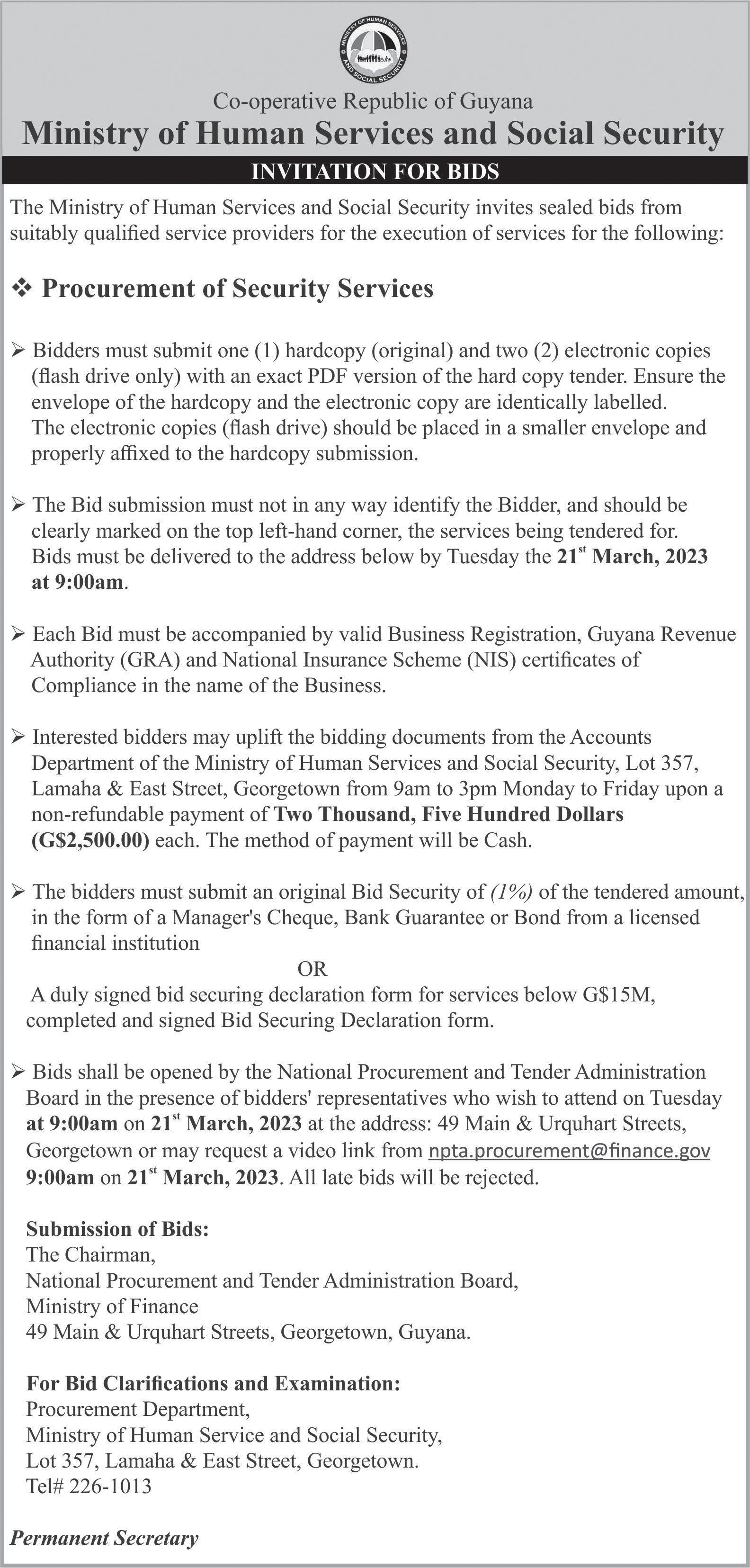

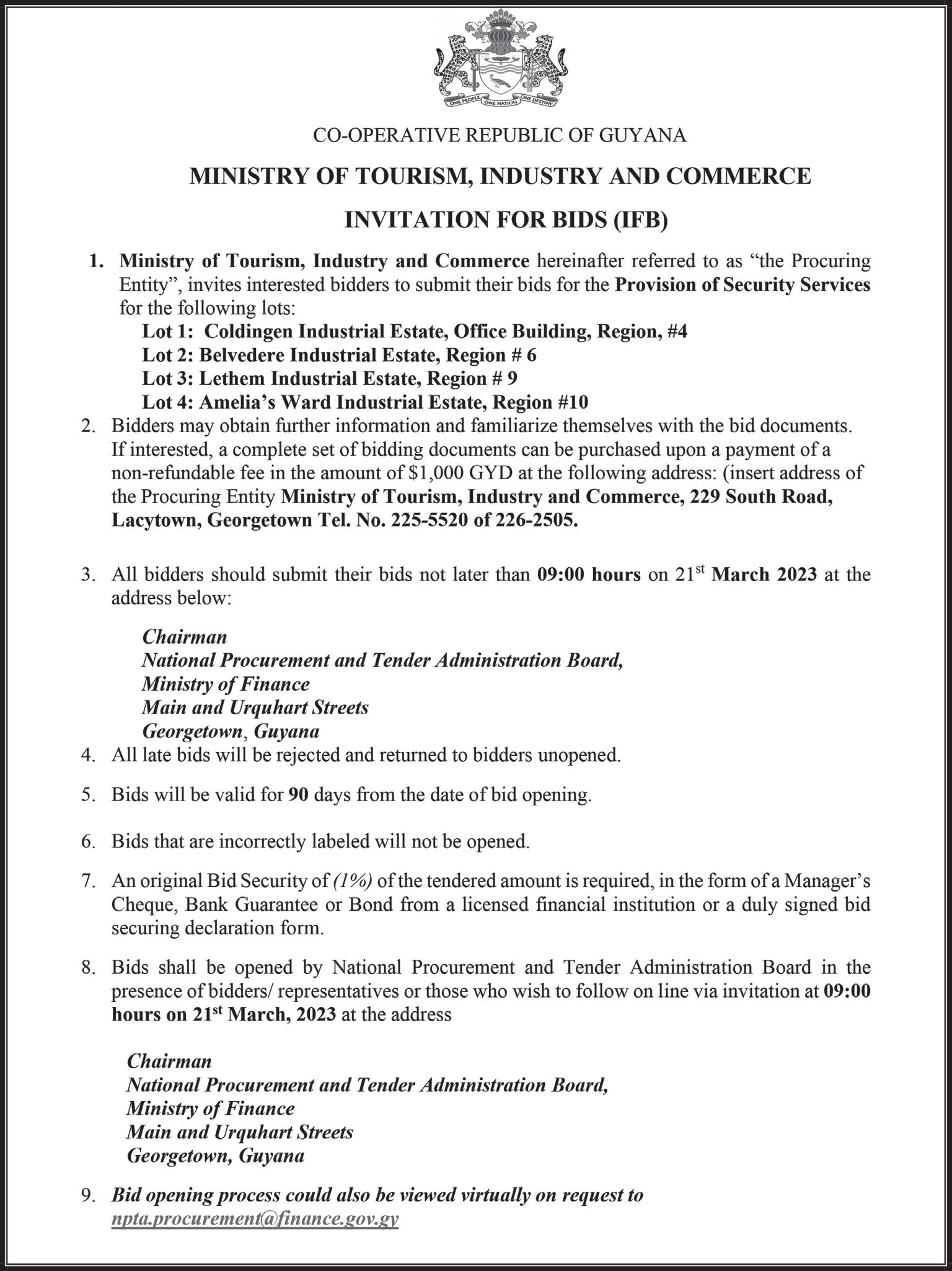


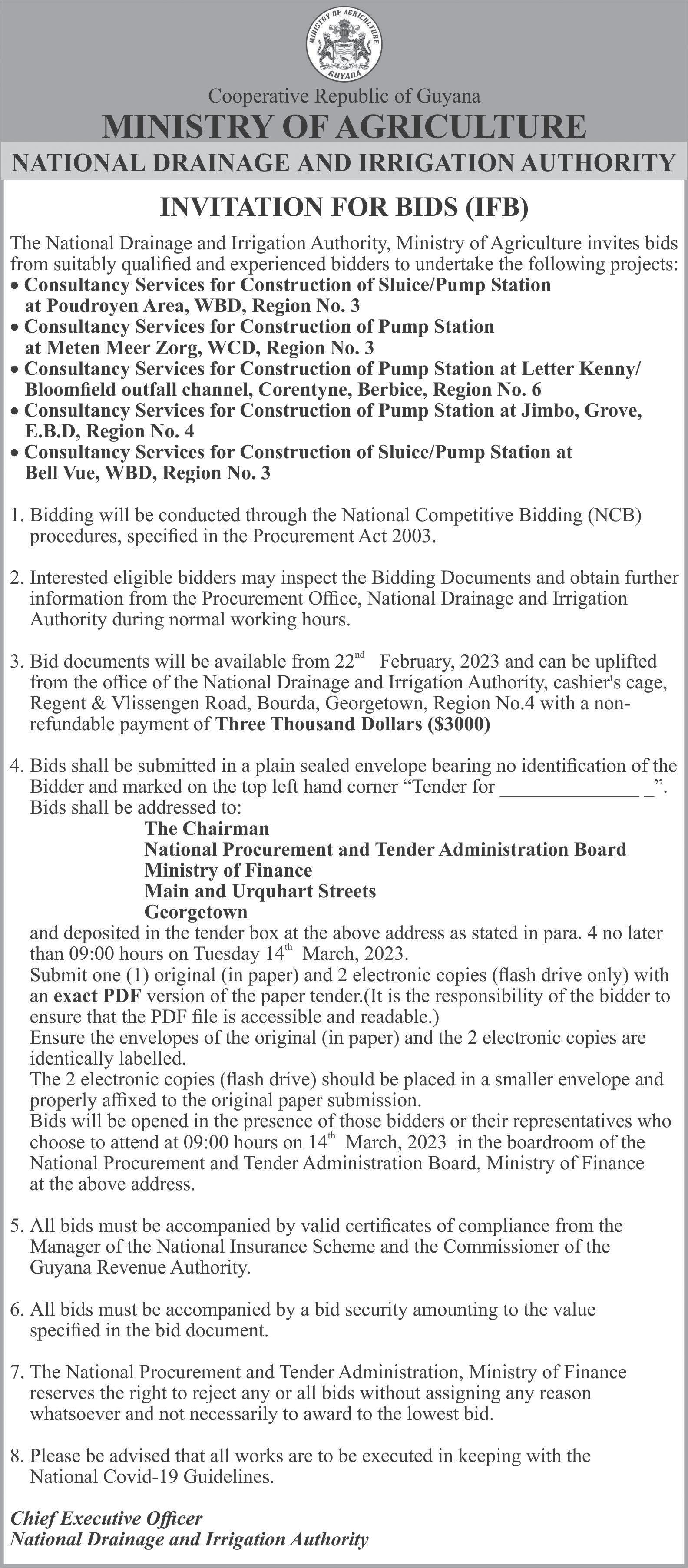

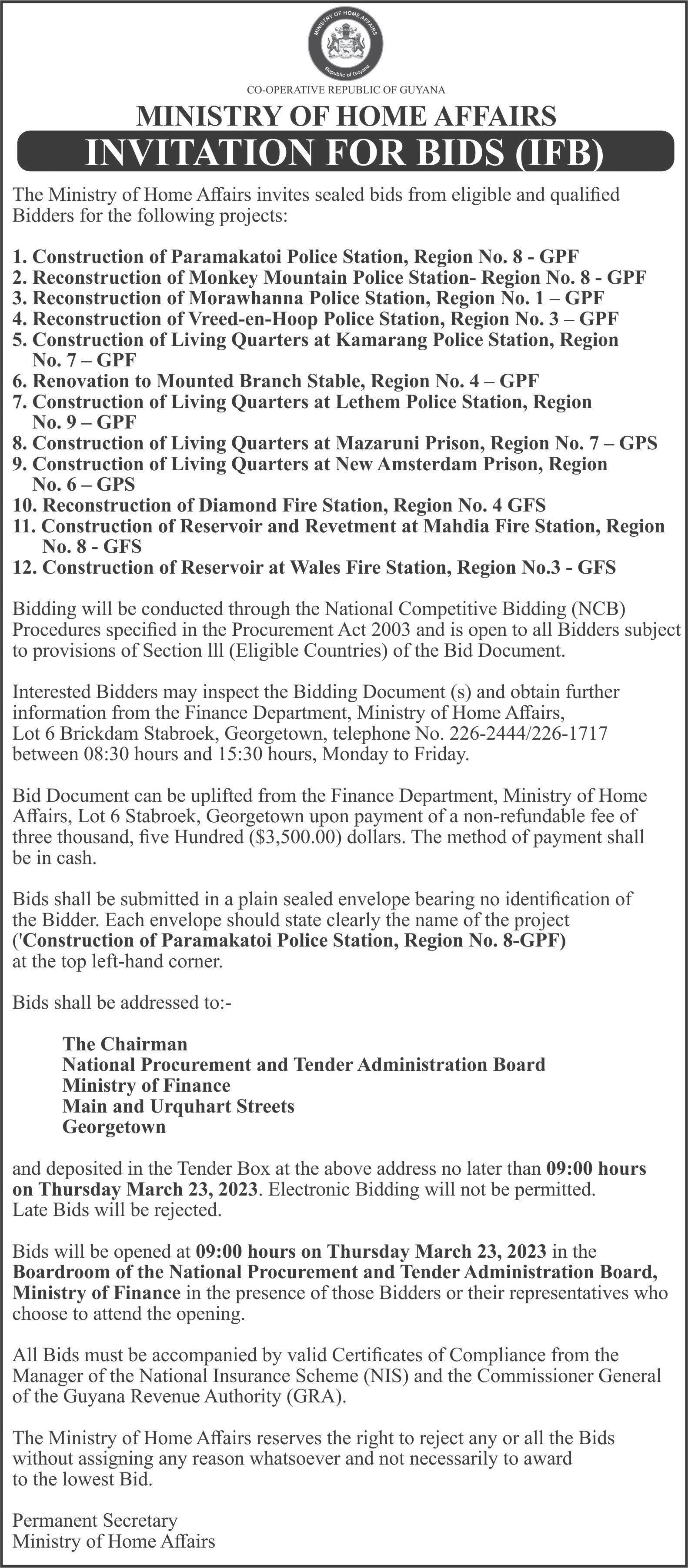


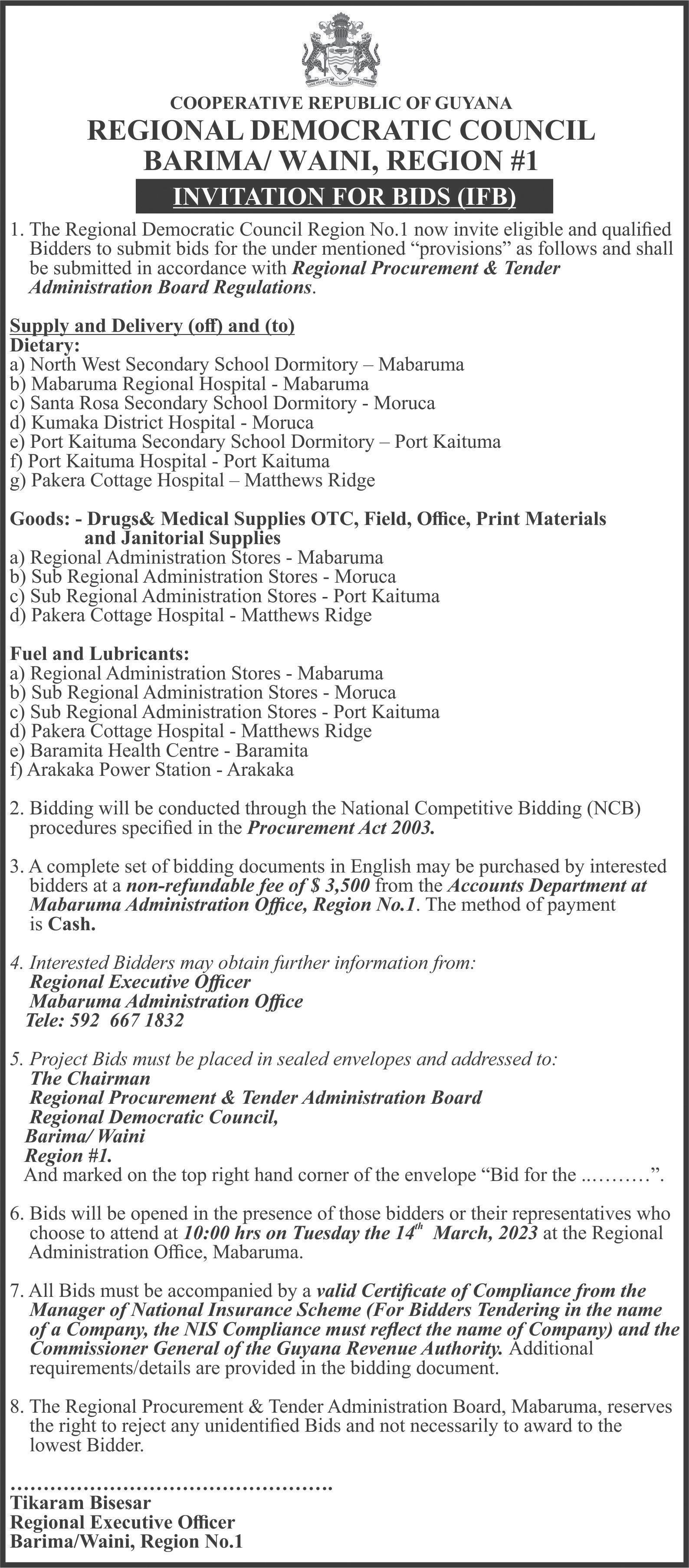


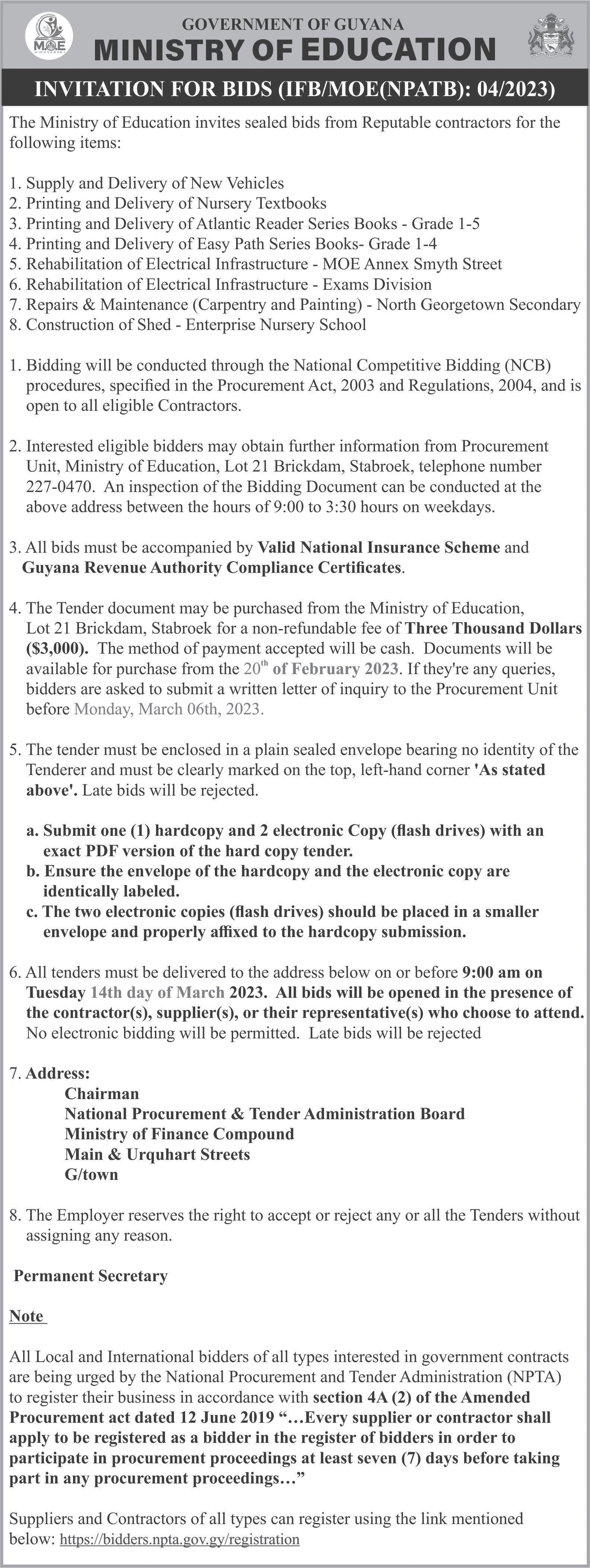
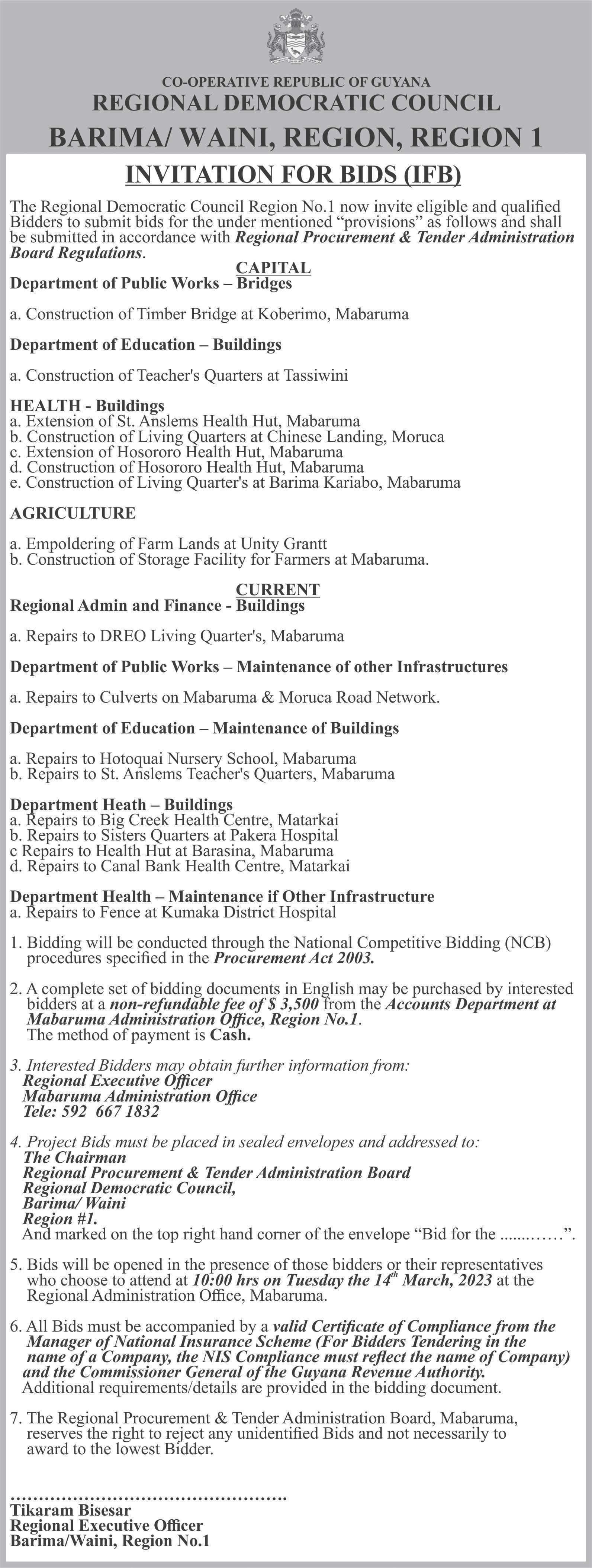

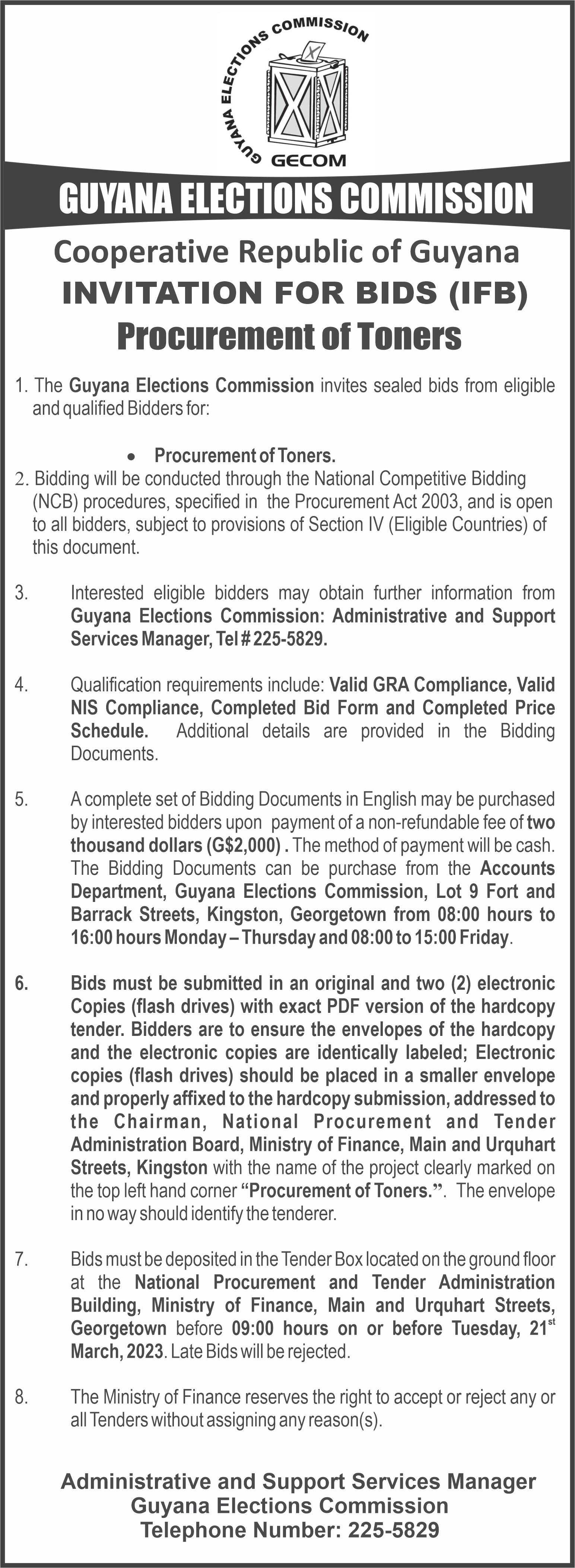

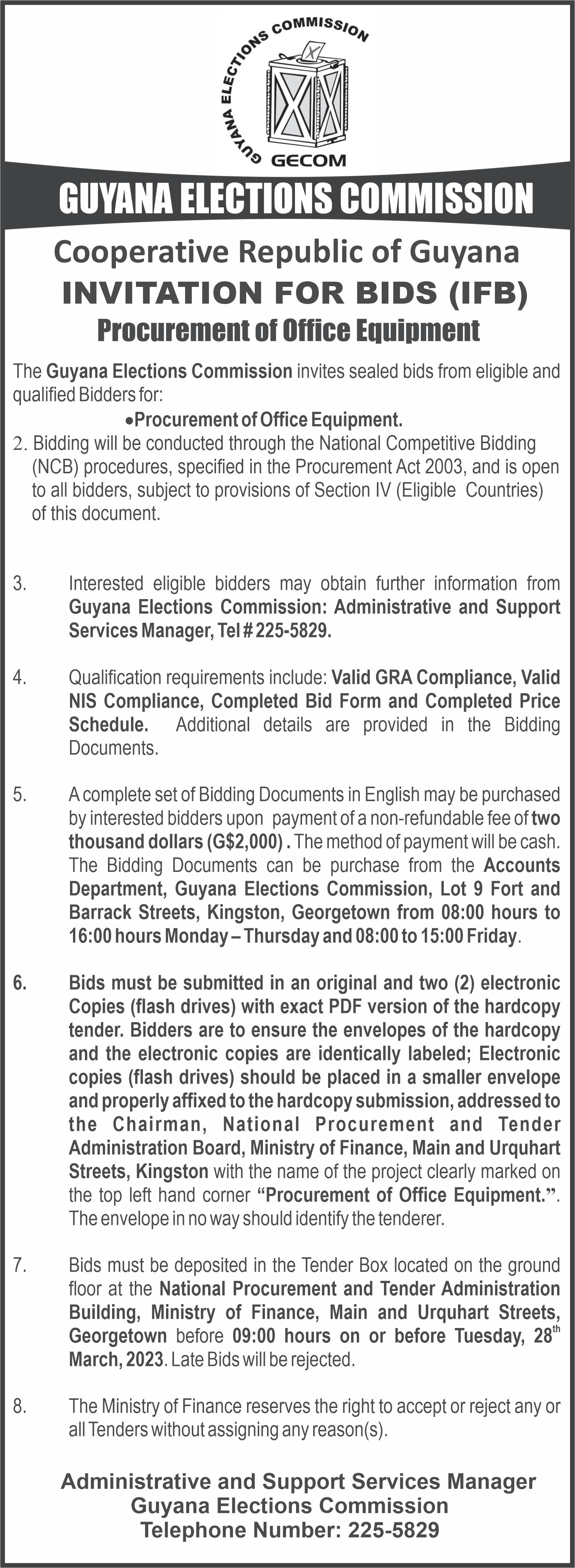
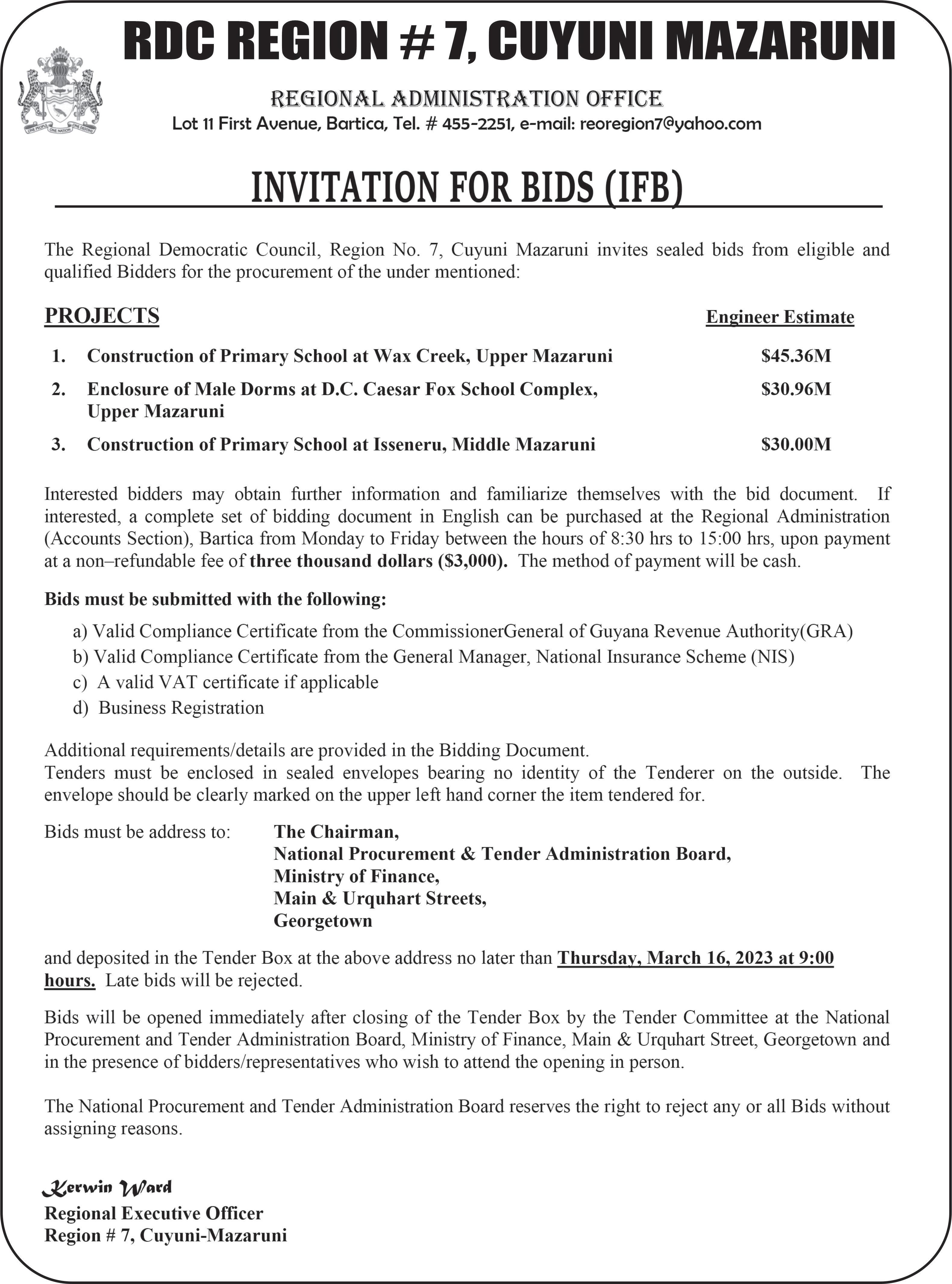
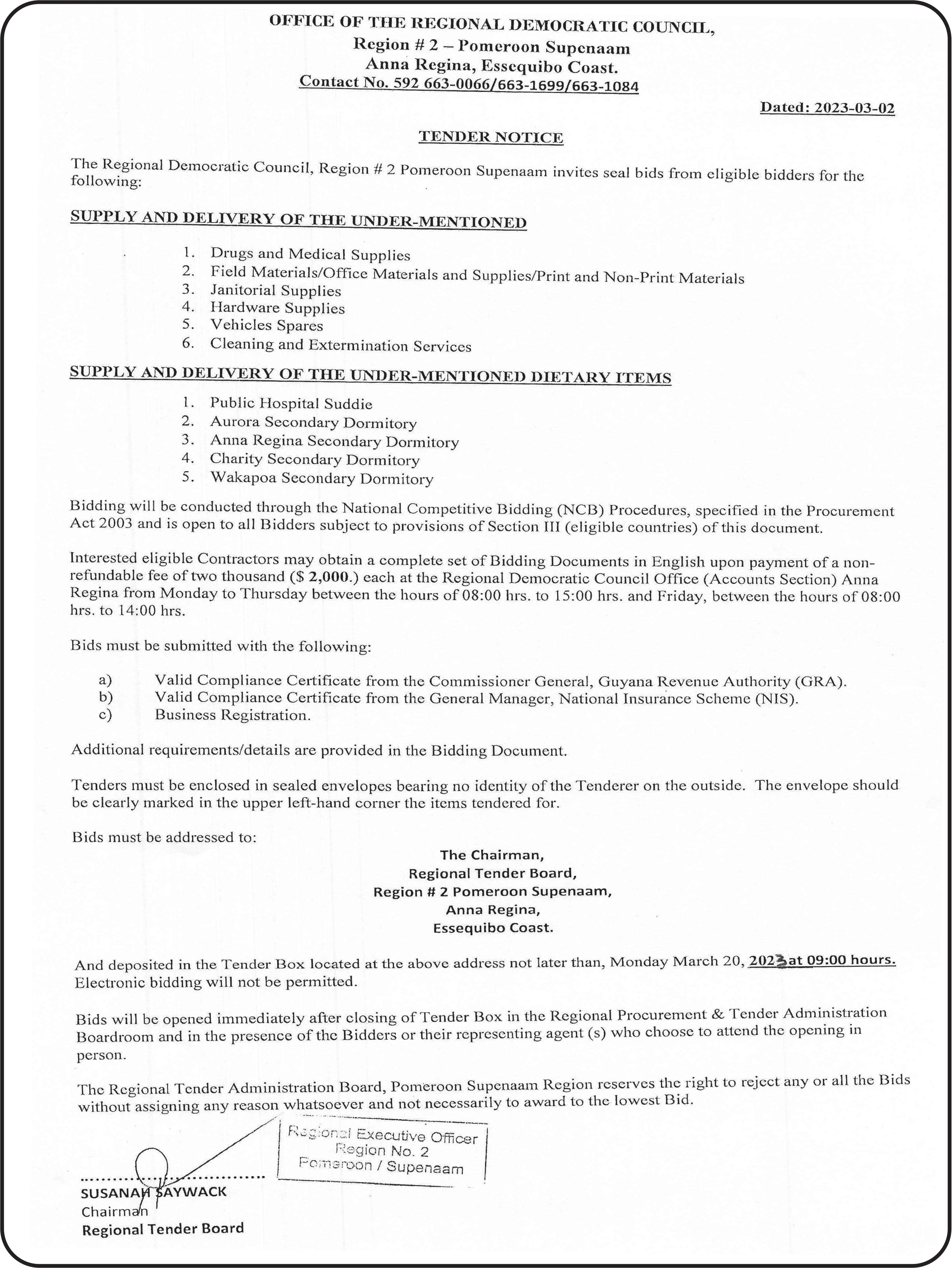
THOUGHT FOR TODAY
Friendship should be more than biting
Time can sever.
T.S. ELIOT (1888-1965) Murder in the Cathedral, pt. 1
Welcome dear friend.
You must have gathered through personal experience, that discussion used by teacher and students or among study-partners has a variety of methods. Also, that its many pluses include helping you to further your thinking, learning, prob -
March 12, 2023
lem-solving, understanding, or literary appreciation. Its forums include the round table, panel-forum and debate. Become a discussion leader with a full general knowledge of the question at hand and get to summarise its main points among other privileges. Be wise.
Love you.
IMPROVING PUNCTUATION
Accurate use of the semi-colon
These sessions deal with proper punctuation of the flow of written words. Of this, one authority stated that the user of written language must be able to halt words, slow their pace by pauses, allow people’s remarks and speeches to be introduced and concluded, engineer interruptions, give emphatic gestures and suggest queries and mysteries.
Today we deal with some uses of the semi-colon (;).
(1) The semi-colon indicates a greater degree of separation than is indicated by the comma. In general, it indicates a compound sentence.

Example:
Radio and television services are broadcast day and night and sets are often left on; newspapers and magazines are constantly within reach; teletext appears in the living room and fax-machines in the work-place; advertisements are devised to affect us consciously and subconsciously whenever we have a spare moment.
(2) The semi-colon is used to separate items in a list that contains commas. Examples:
(a) We have lived in Bay City, Amsterdam; Lakeland, Canada; Frankfort, Kentucky; and Monroe, St. Gabriel Island. (semi-colon used to achieve clarity of meaning)
(b) New appointees are Jason Langford, president; Sandra Smith, vice-president; and Wayne Dover, secretary-treasurer. (semi-colon used to achieve clarity of meaning)
(c) Extras contained in this model include: car
phone, with, or without amplifier; stereo system, with two or four speakers; electrically-operated windows, separate control or master-switch; tinted-glass; stainless-steel exhaust. (semi-colon used in long sentence)
(3) The semi-colon is used to separate clauses having a strong connection with each other that could be broken if they were divided into separate sentences.
Examples:
(a) In an out-of-way place like this, old customs linger on; I have myself witnessed maypole dancing and Halloween rites.
(b) The emigrants were led to believe that cheap rental houses were easy to come by; however, ten months of fruitless searching convinced them that this was not the case.
(c) His principles have never been clear to me; therefore I cannot vote for him.
Copy the following sentences. Supply semi-colons and commas where they are needed.
1. Although he possesses all the other requisites for the job he is not dependable I am afraid that we must discard his application.

2. He searched unceasingly for the man who possessed the secret document: through the resorts and villas of the Mediterranean where the independently wealthy may indulge in idleness and leisure in the jungles of Africa where the torrid breath of disease and pestilence brought him close to the door of death and in the frozen wastes of the Arctic where no man had been known to survive.
3. I have not heard the radio and television programmes you mentioned before therefore I cannot criticize them.
Comprehending the passage
People often think of the bee as a busy insect, but one of the busiest of all animals is the hummingbird. If human beings tried to match the hummingbird’s way of life, we would burn up to four hundred times as much energy. If we tried to match the amount of sugar it eats, we would eat as much as three hundred pounds of sugar a day.
The hummingbird is a perfect flying machine. Its wings are attached to its shoulders in such a way that they spin almost like the propellers of a helicopter. This movement of the wings, as well as its powerful muscles, allows the bird to hang suspended in mid-air, fly backwards, dart sideways and rise straight upwards at great speeds.
The hummingbird is fearless. Its needle-like bill driven at about ninety-five kilometres an hour, can be a valuable weapon. It will attack cats and dogs. It will attack hawks, crows, and eagles. No matter how good a fighter the other bird is, the hummingbird never loses.
1. Choose the most suitable title for the passage.
(A) A fearless creature (B) The Smallest Bird in History
(C) The Fastest Bird (D) An Amazing Little Bird
(2) Why do you think a hummingbird is able to win fights against bigger birds?
(A) It has powerful wings. (B) It has sharp propellers.
(C) It eats tons of sugar.
(D) It has advantage of size, swiftness, and flying ability.
(3) Why does the hummingbird eat so much food?
(A) It finds food in abundance.
(B) It has nothing much else to do.
(C) It loves eating much food.
(D) Its very active life demands much food.
(4) What is the main idea of the third paragraph?
(5) What kind of genre (writing) has the writer used in the passage?
(A) narrative (B) explanatory
(C) descriptive (D) persuasive
FROM PAGE IX

of a particular house in Cinderella City is quite intriguing. The house’s unusual design is quite nice and ‘out of the box’ and appeals to one.
It is a wooden cottage-style house with a little verandah on the top flat and a verandah on the lower flat, making it a unique edifice that isn’t too small or large in size.
The house in question is owned by Oral De Young, a welder by trade and he is the father of one who along with his brother-in-law, constructed the house from scratch.



De Young told the Pepperpot Magazine that three years ago he saw a photograph on Facebook of a house, and he instantly fell in love with it and told himself that is the house he wants.
The young man related that he had no house plan and went along with just a photo and it came out well and he also made his fence which complements the house.
The house is located on McPherson Lane, Cinderella City.
“Often people passing through would stop and ask if they can take photos of the house and I would agree and they would give compliments and so. It is nothing strange to have a nice little house that people like,” he said.
